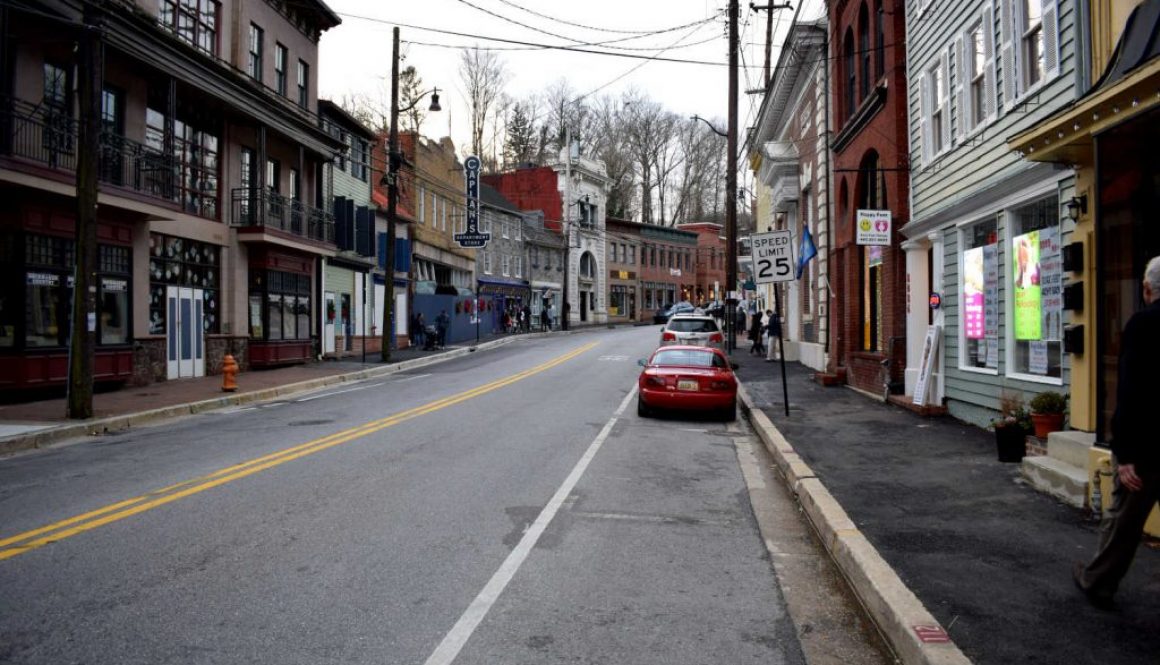Ellicott City: Exploring Small Town Maryland
We visited Ellicott City, Maryland in early January. We are based in Washington DC, and the city is located only a 40 minutes drive away on the road toward Baltimore.
What a better way to spend the weekend than visit some small towns near the city we live in.
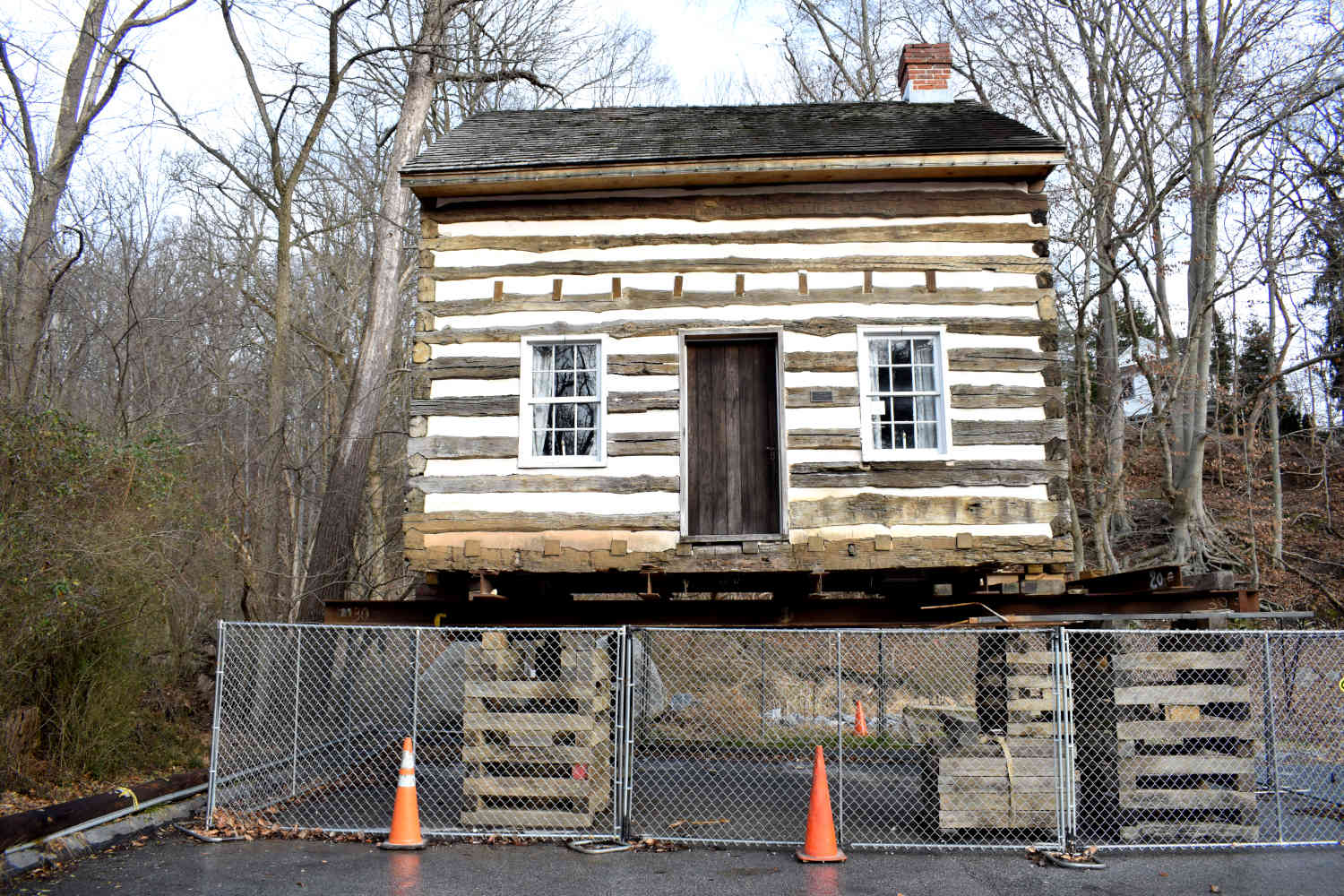 When we got there, the first thing we noticed was this house in a parking lot being transported to a new location.
When we got there, the first thing we noticed was this house in a parking lot being transported to a new location.
Turns out, this is the Thomas Isaac log cabin. Named after a 19th-century owner, the cabin was believed to have been built around 1780 by an early Ellicott’s Mills settler.
After Ellicott City was hit with severe flooding in 2016 and 2018, the city decided to move the cabin away from Main Street while post-flood repairs continue in the town’s center.
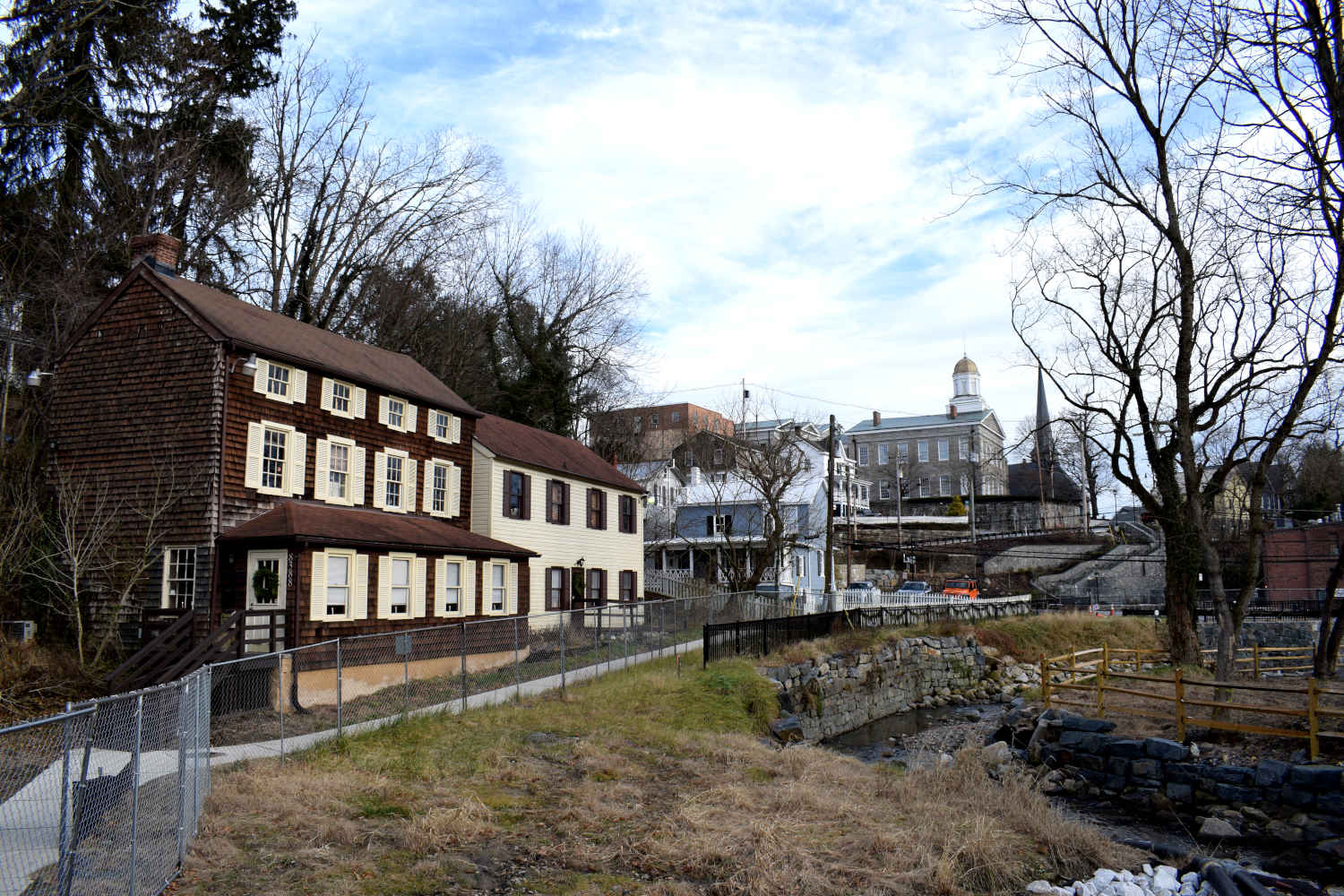 Up ahead we saw the town pan out before us. It is a small American town that you can find across the United States. The type of town you would find a Ray Bradbury novel set in. Small town America at its finest.
Up ahead we saw the town pan out before us. It is a small American town that you can find across the United States. The type of town you would find a Ray Bradbury novel set in. Small town America at its finest.
The fence on the right turns out to be a temporary measure that was added there because the city recently suffered severe floods that damaged of the center.
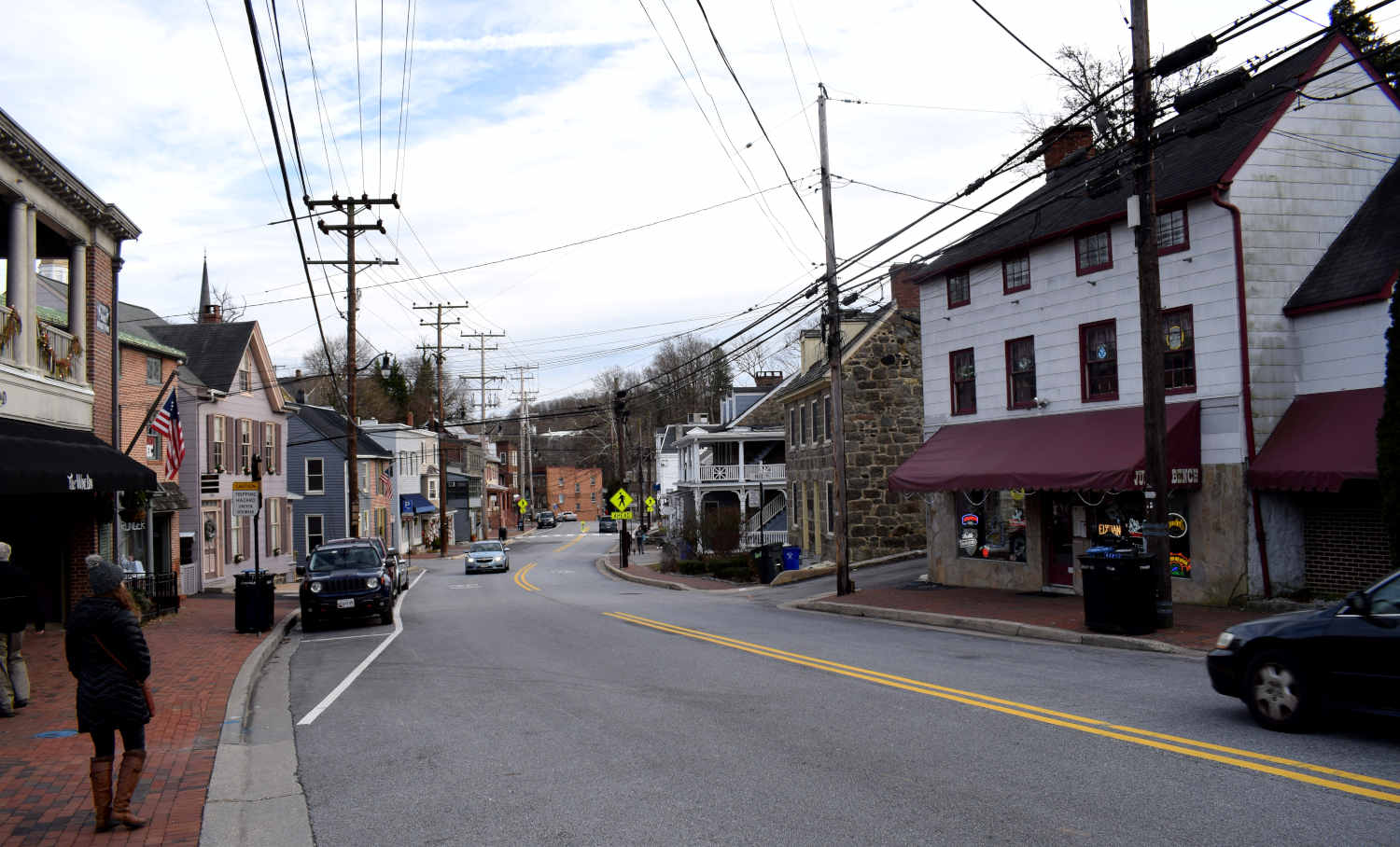 We began walking toward the center of town and the traditional American houses stood their in all their beauty and simplicity. This is the real America that not enough people visit, and that is unfortunately dying.
We began walking toward the center of town and the traditional American houses stood their in all their beauty and simplicity. This is the real America that not enough people visit, and that is unfortunately dying.
Young people are leaving to work in bigger towns and small cities like Ellicott City are emptying out.
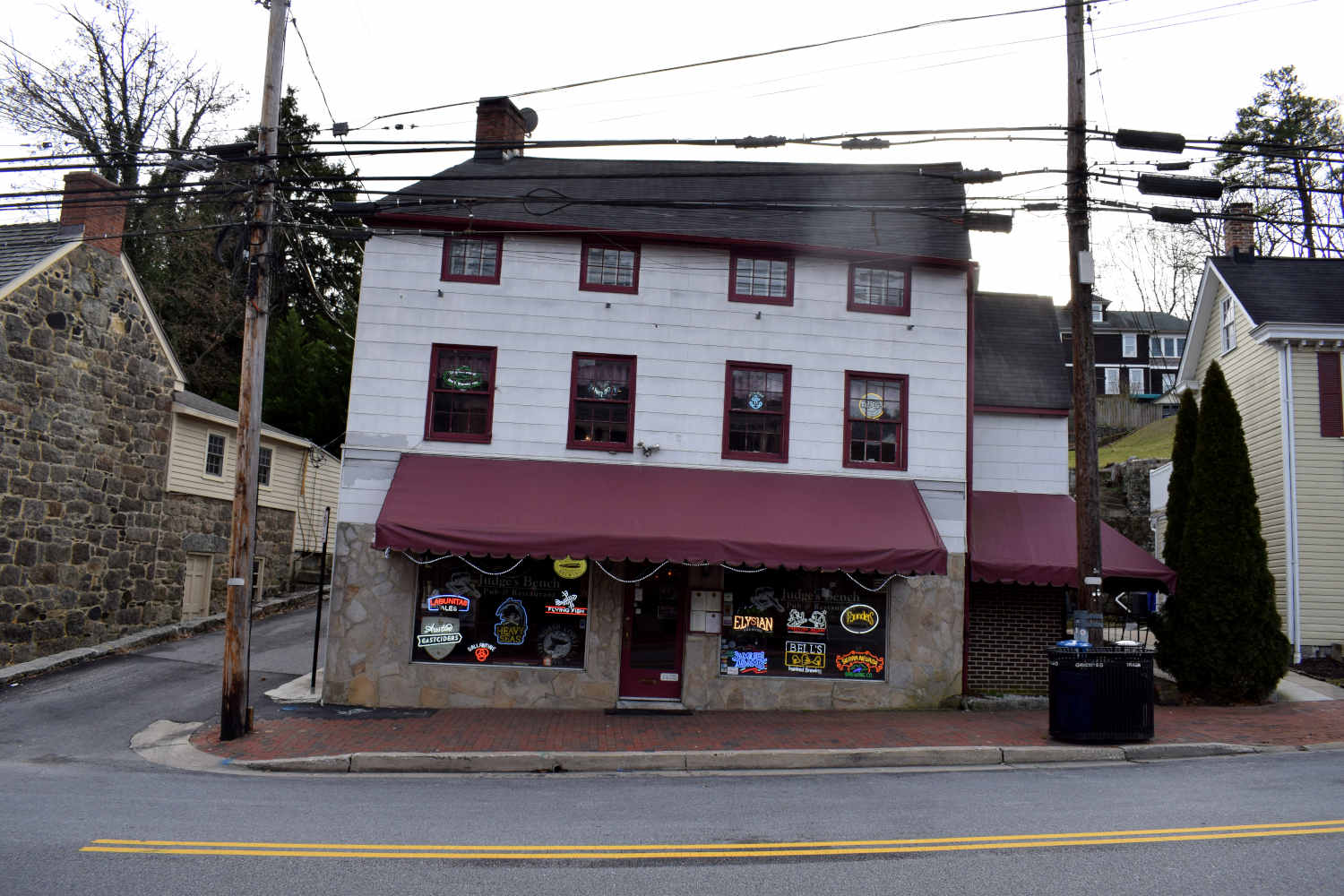 A typical American dive bar.
A typical American dive bar.
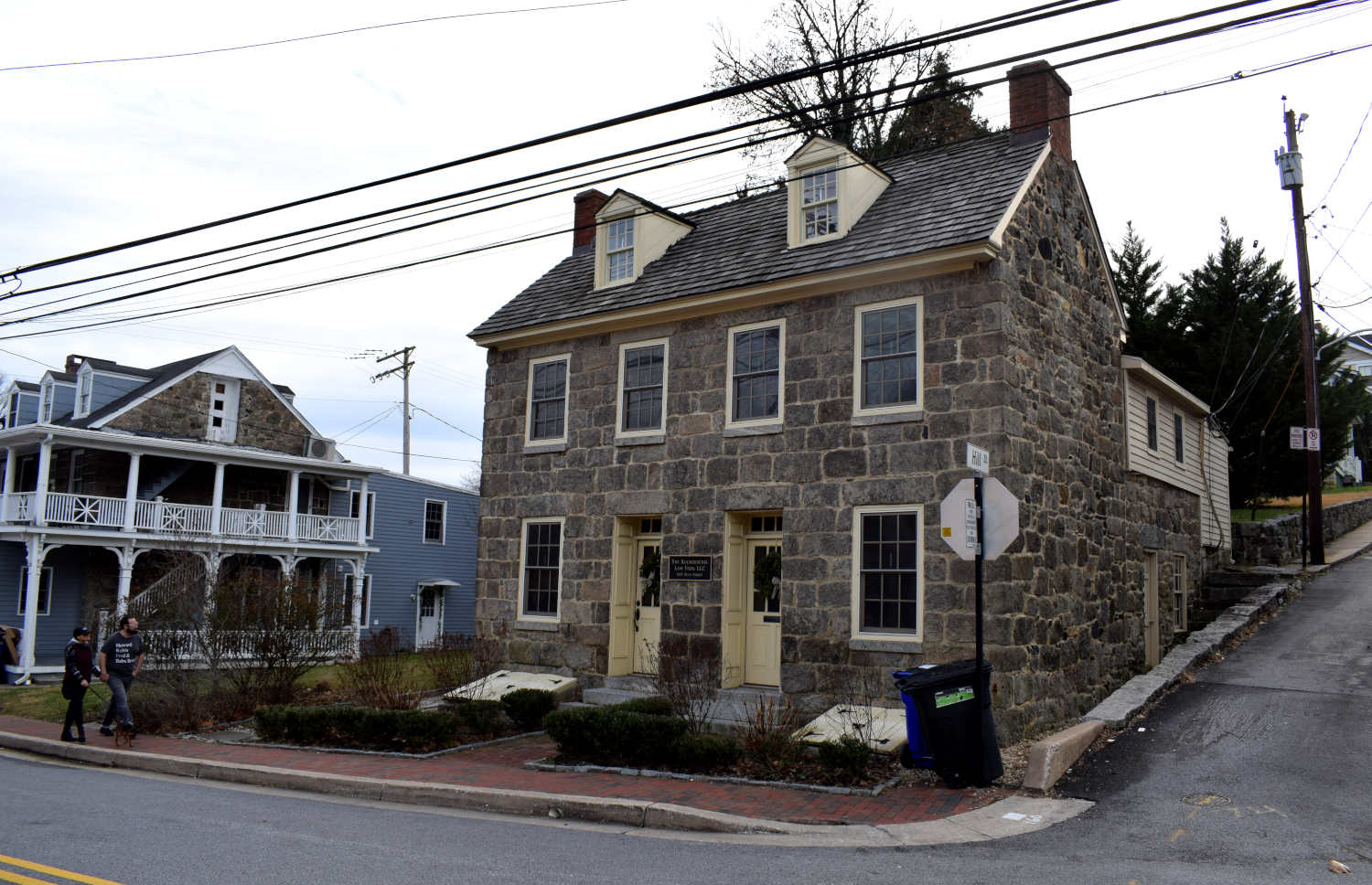 An old American home. Thank god developers have not come to Ellicott City yet to tear down these houses.
An old American home. Thank god developers have not come to Ellicott City yet to tear down these houses.
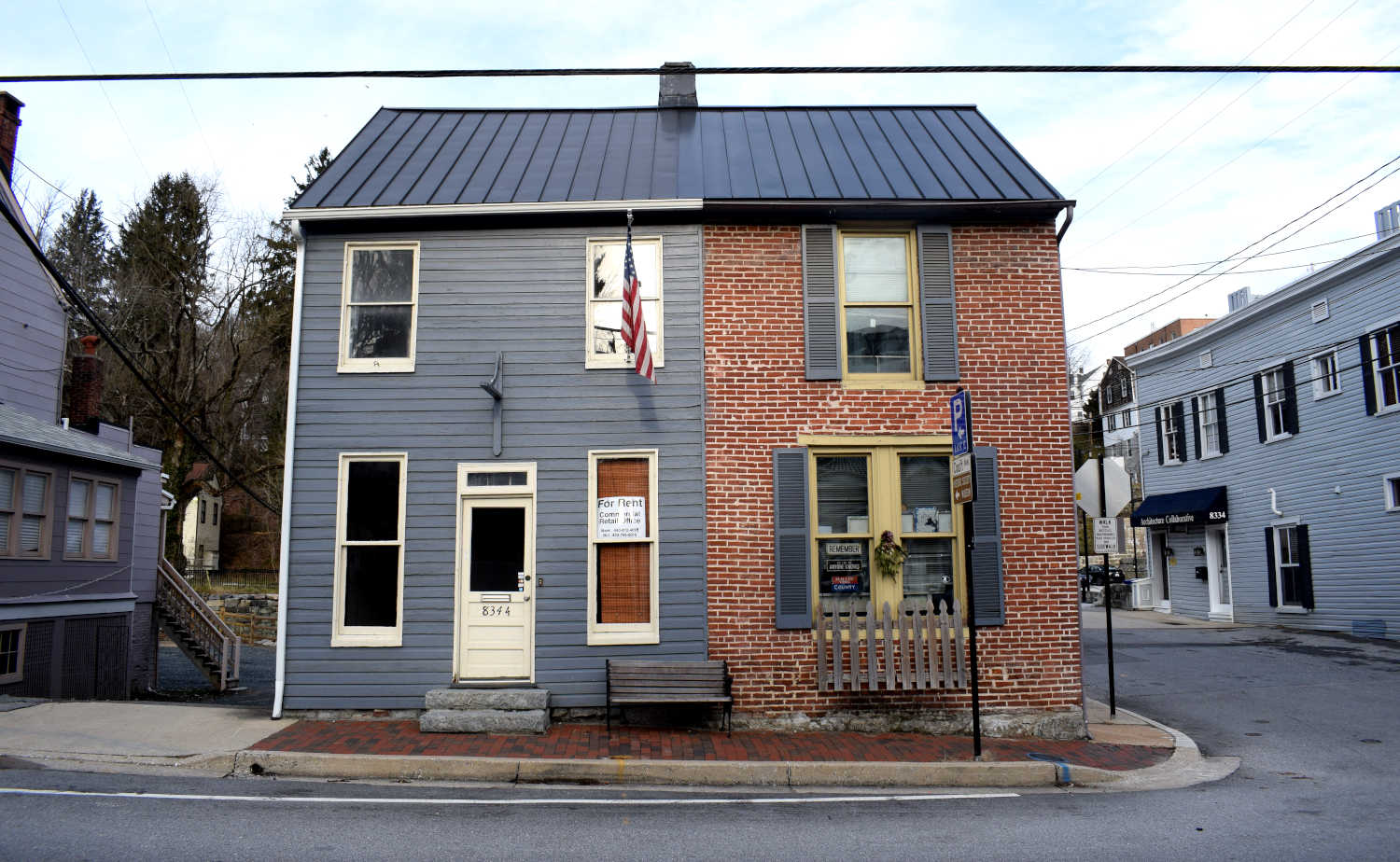 Another typical American home.
Another typical American home.
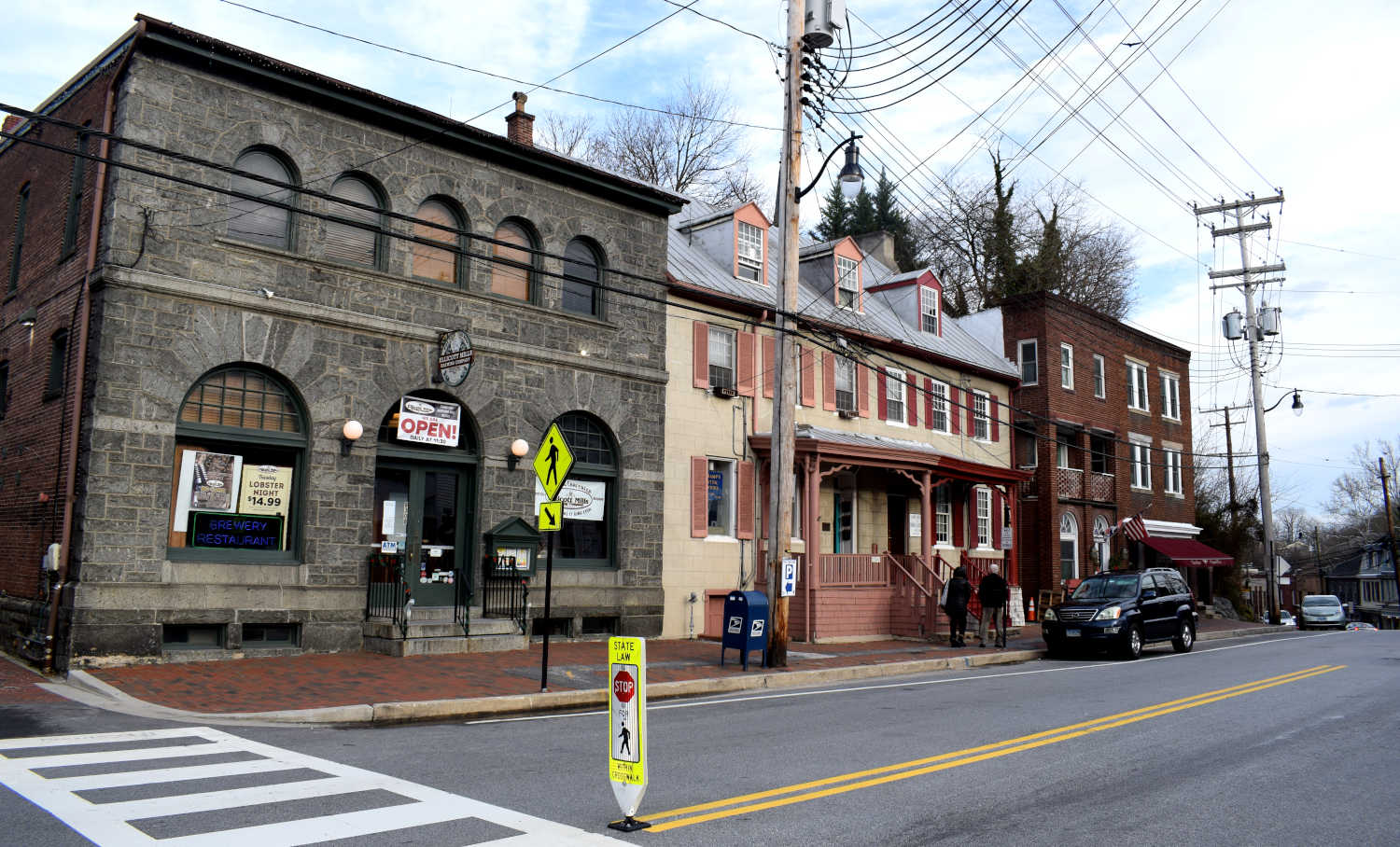 As we walked toward the city center the buildings began to vary.
As we walked toward the city center the buildings began to vary.
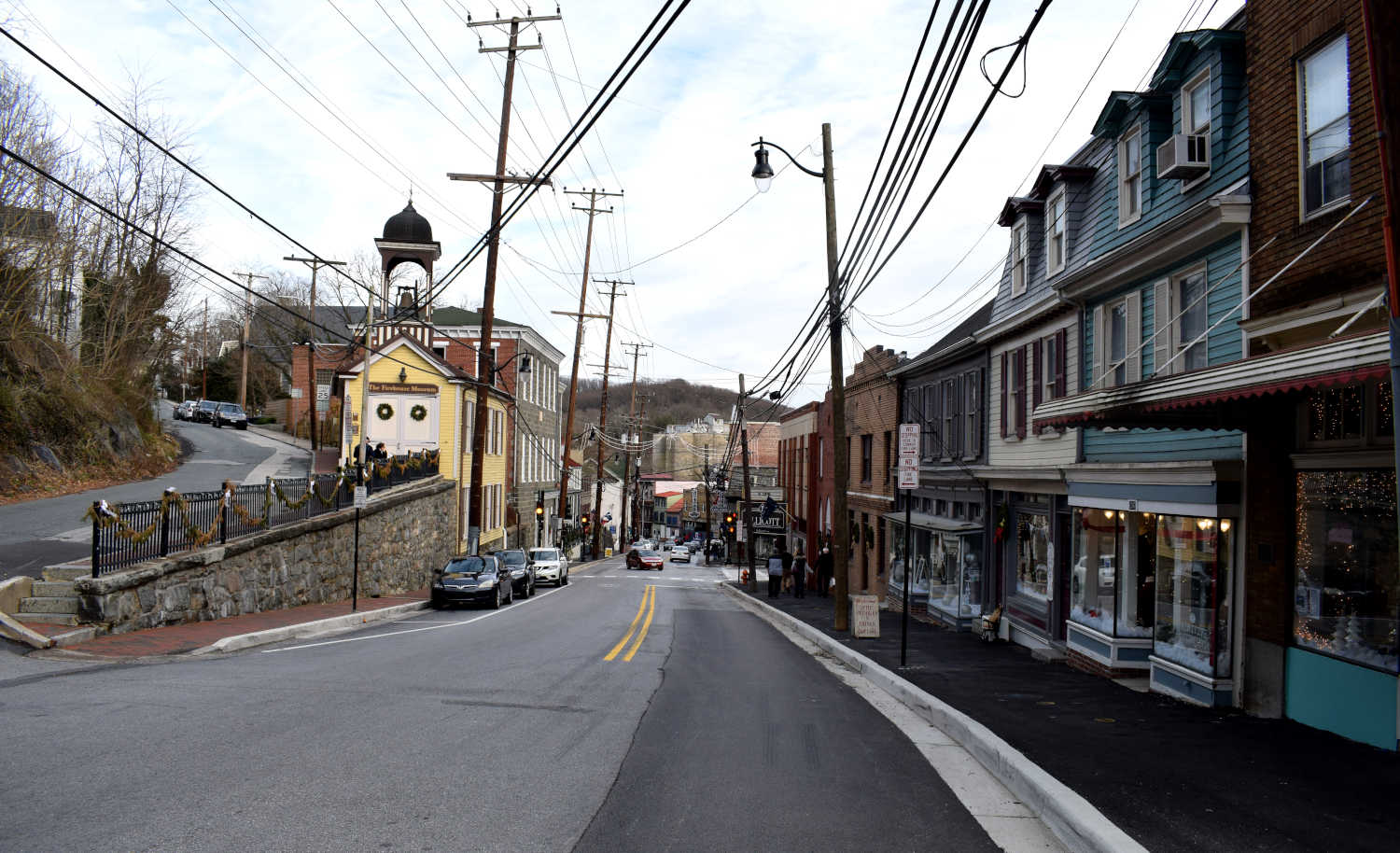 The center of Ellicott City. The town is located on a hill with a steep drop into the city center. The yellow building on the left is the Firehouse Museum and on the right you have traditional houses with small shops located inside selling a range of goods.
The center of Ellicott City. The town is located on a hill with a steep drop into the city center. The yellow building on the left is the Firehouse Museum and on the right you have traditional houses with small shops located inside selling a range of goods.
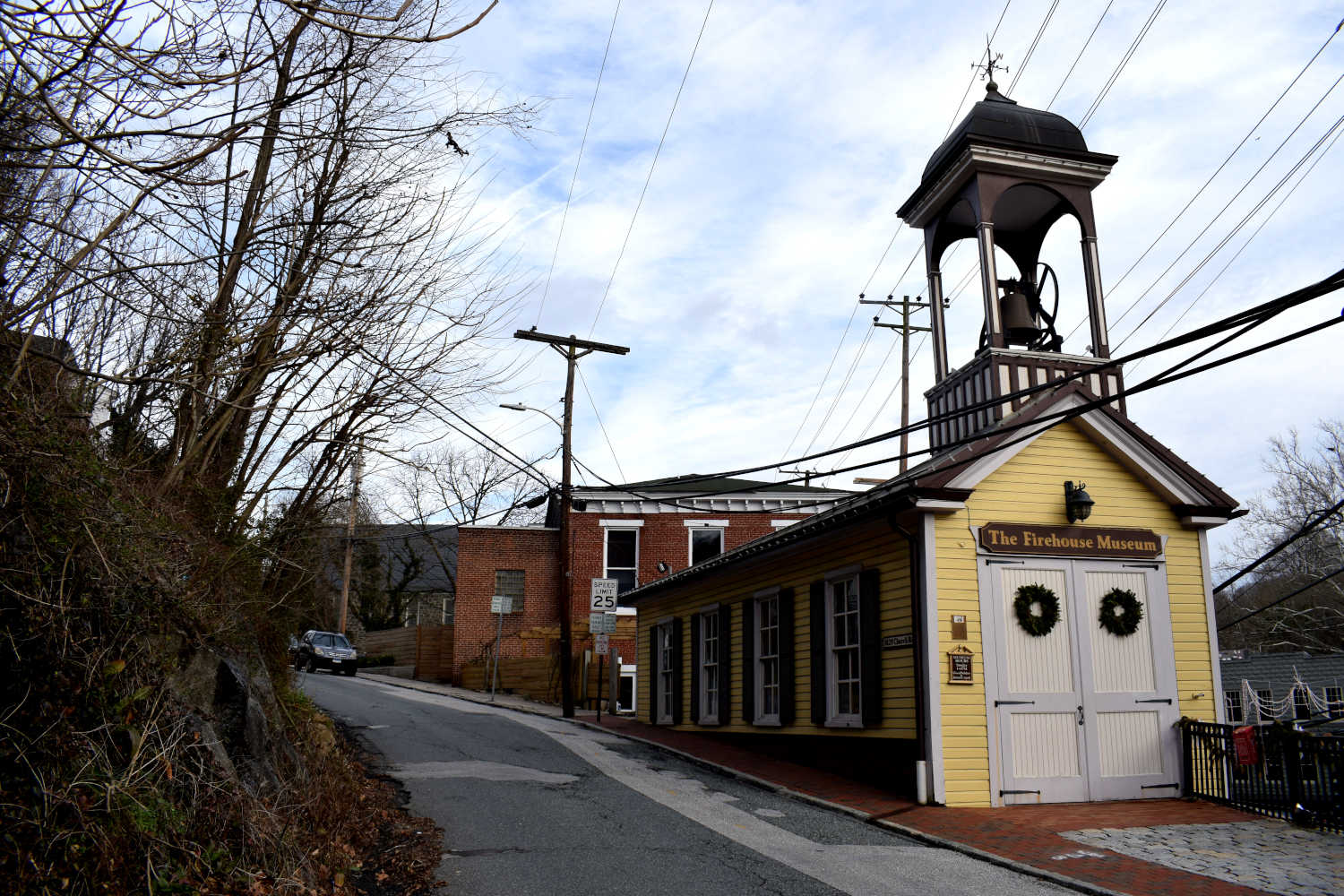
The Firehouse Museum. What a beautiful building. I like the bell on top, it must be over 100 years old.
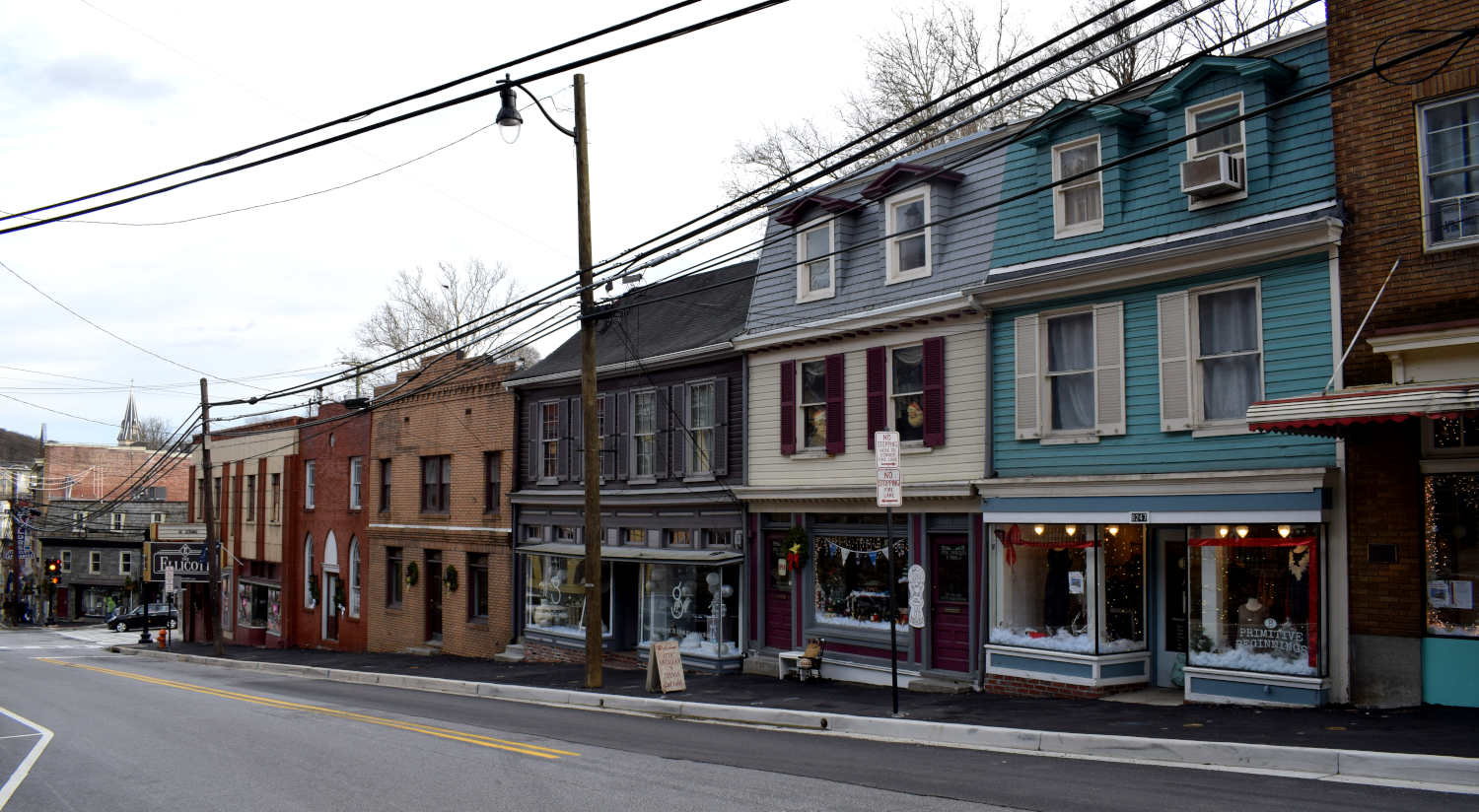
Ellicott City row houses.
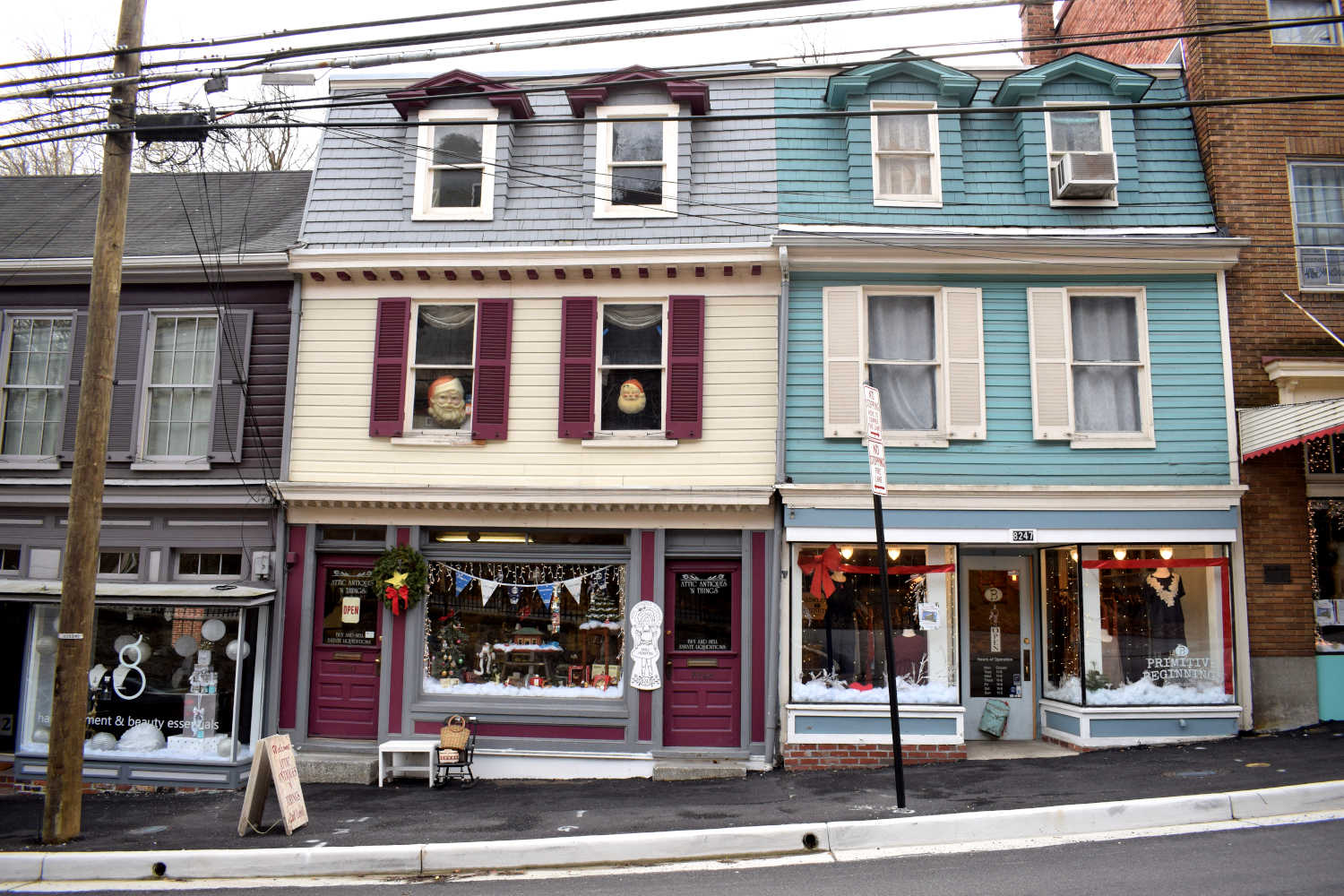
Each of these houses play host to a small shop inside that sells different goods that are perfect for Christmas gifts.
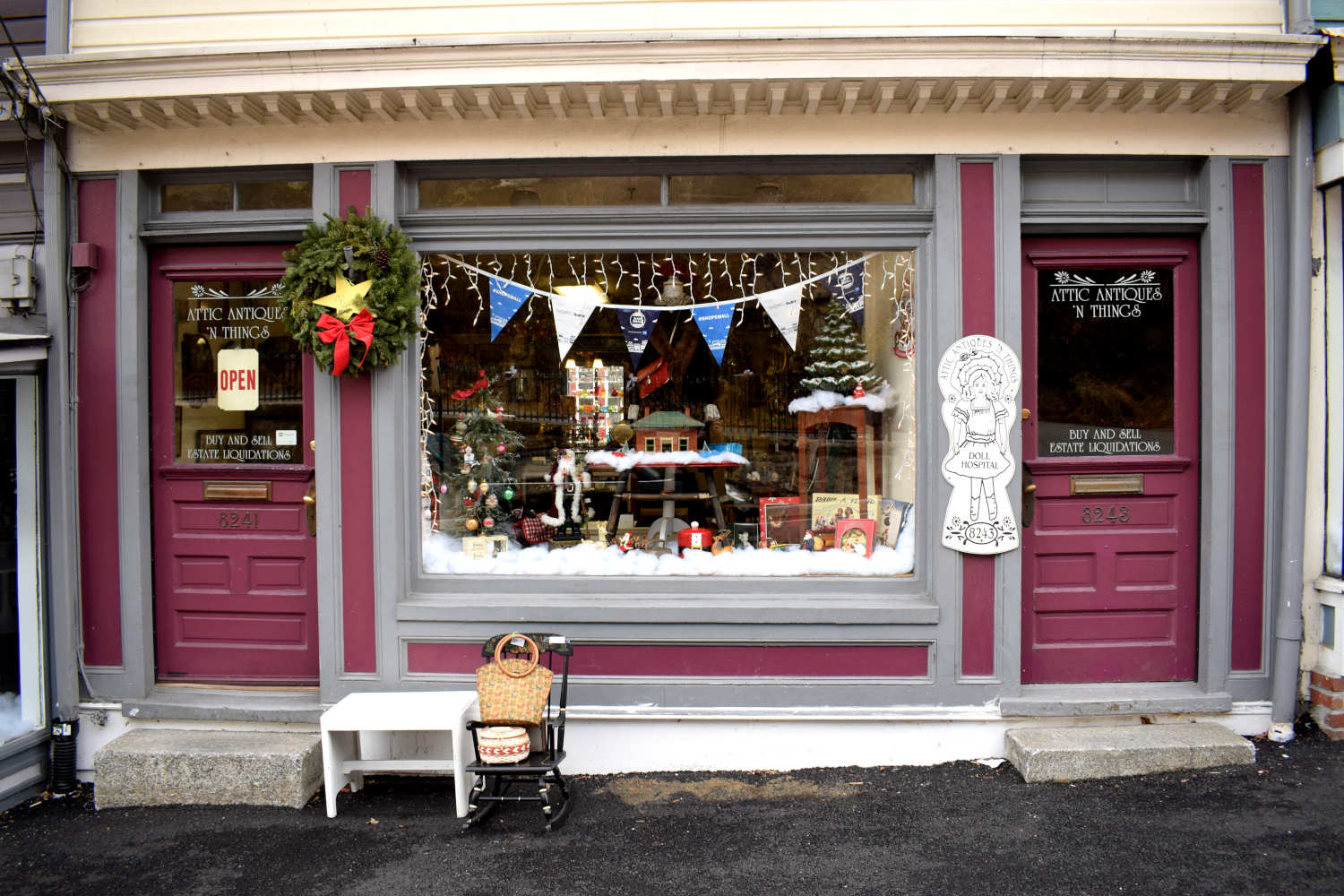 The storefronts to these businesses.
The storefronts to these businesses.
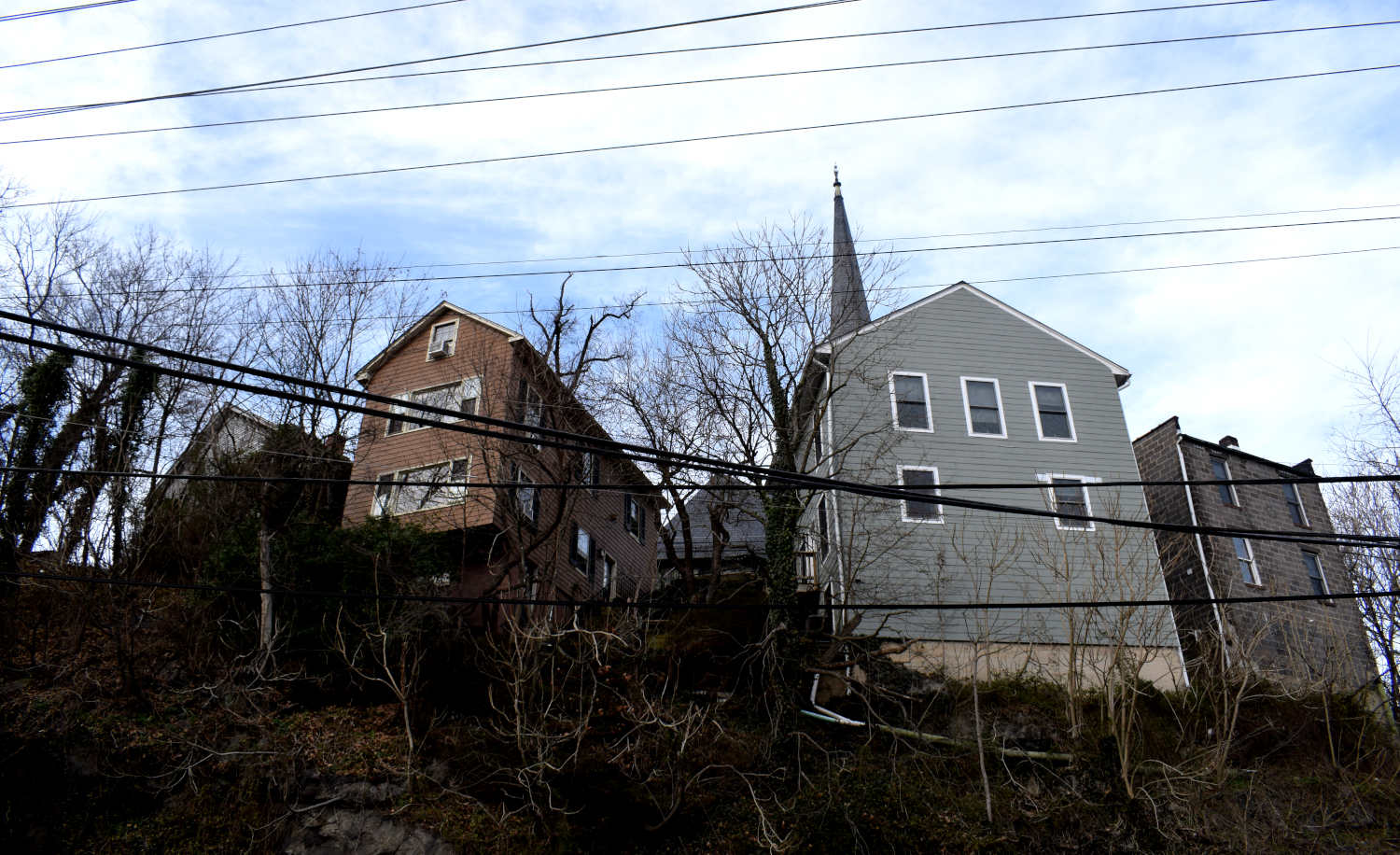
These houses on the hill looked like they were about ready to fall off. In the background you can see Ellicott City’s church which towers over the rest of the land.
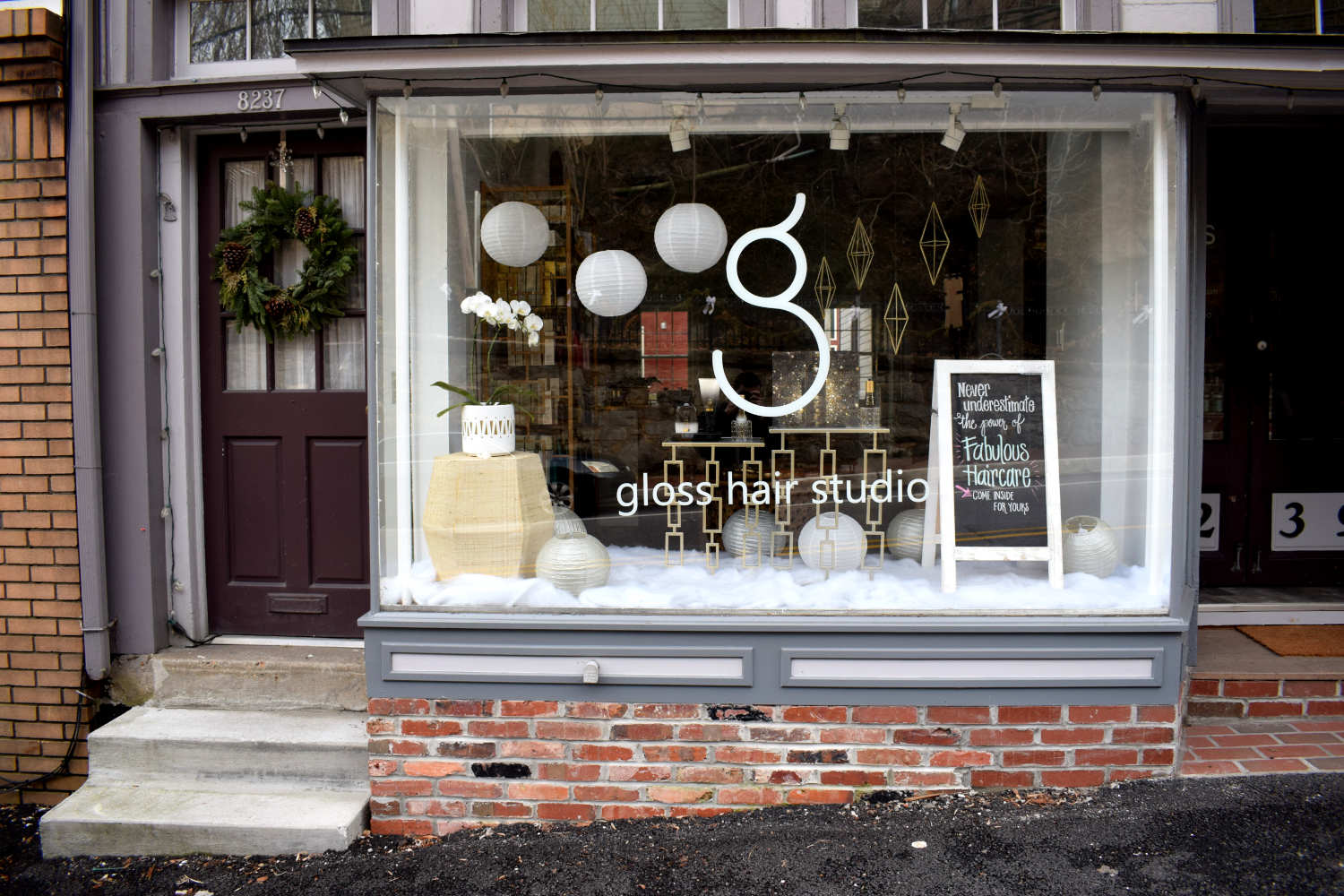 Another storefront.
Another storefront.
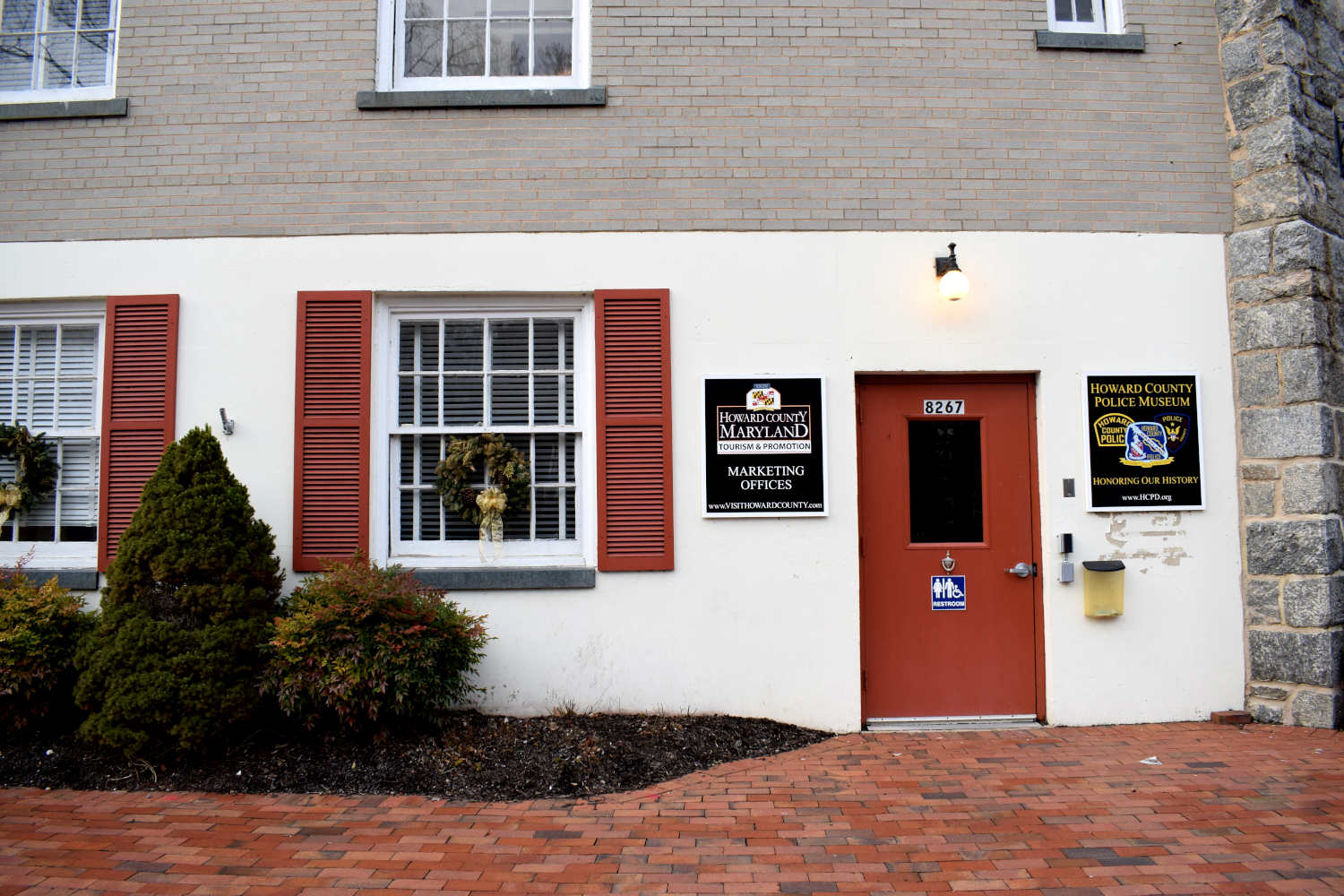 The Howard County Marketing Office. I think that every city should have one of these. This one was in the center with all of the plans for Ellicott City in the upcoming year on display, including plans to promote the city to tourists.
The Howard County Marketing Office. I think that every city should have one of these. This one was in the center with all of the plans for Ellicott City in the upcoming year on display, including plans to promote the city to tourists.
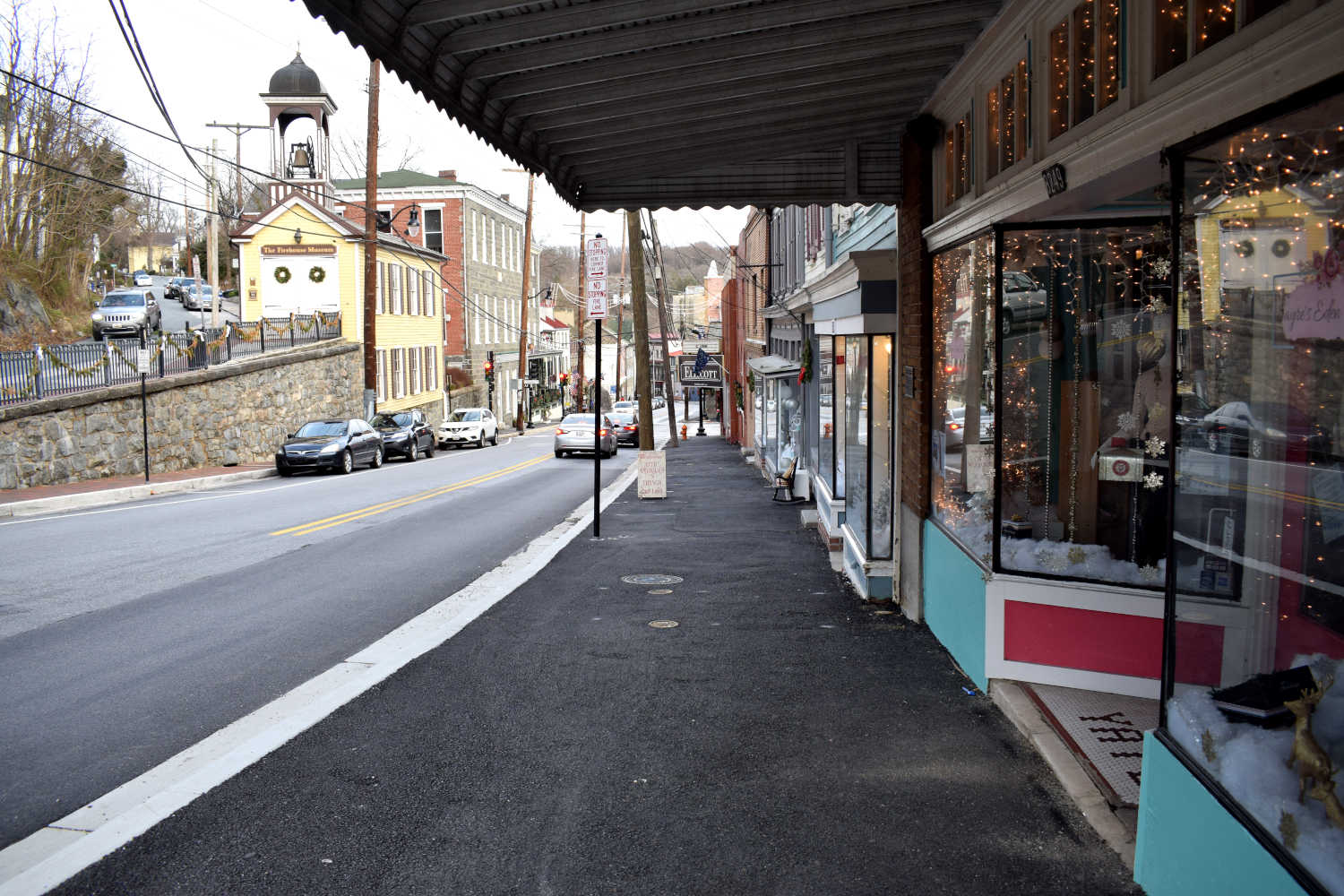 It’s such a joy to walk down streets like this with window shopping on the side. These kind of stores are struggling because of Amazon and the rise of online shopping. It’s our duty to support them if we don’t want them to die out.
It’s such a joy to walk down streets like this with window shopping on the side. These kind of stores are struggling because of Amazon and the rise of online shopping. It’s our duty to support them if we don’t want them to die out.
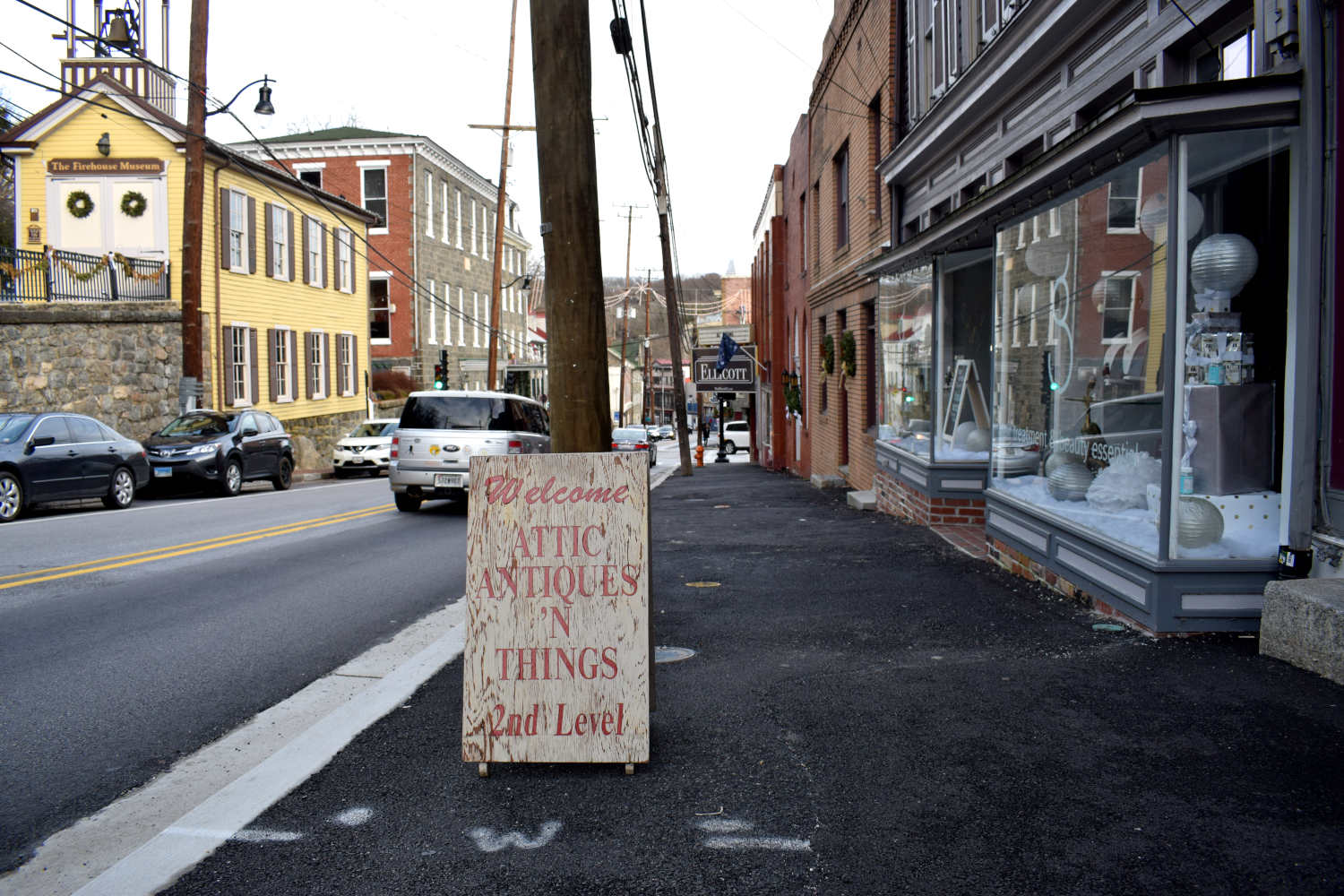 A sign for an antique shop.
A sign for an antique shop.
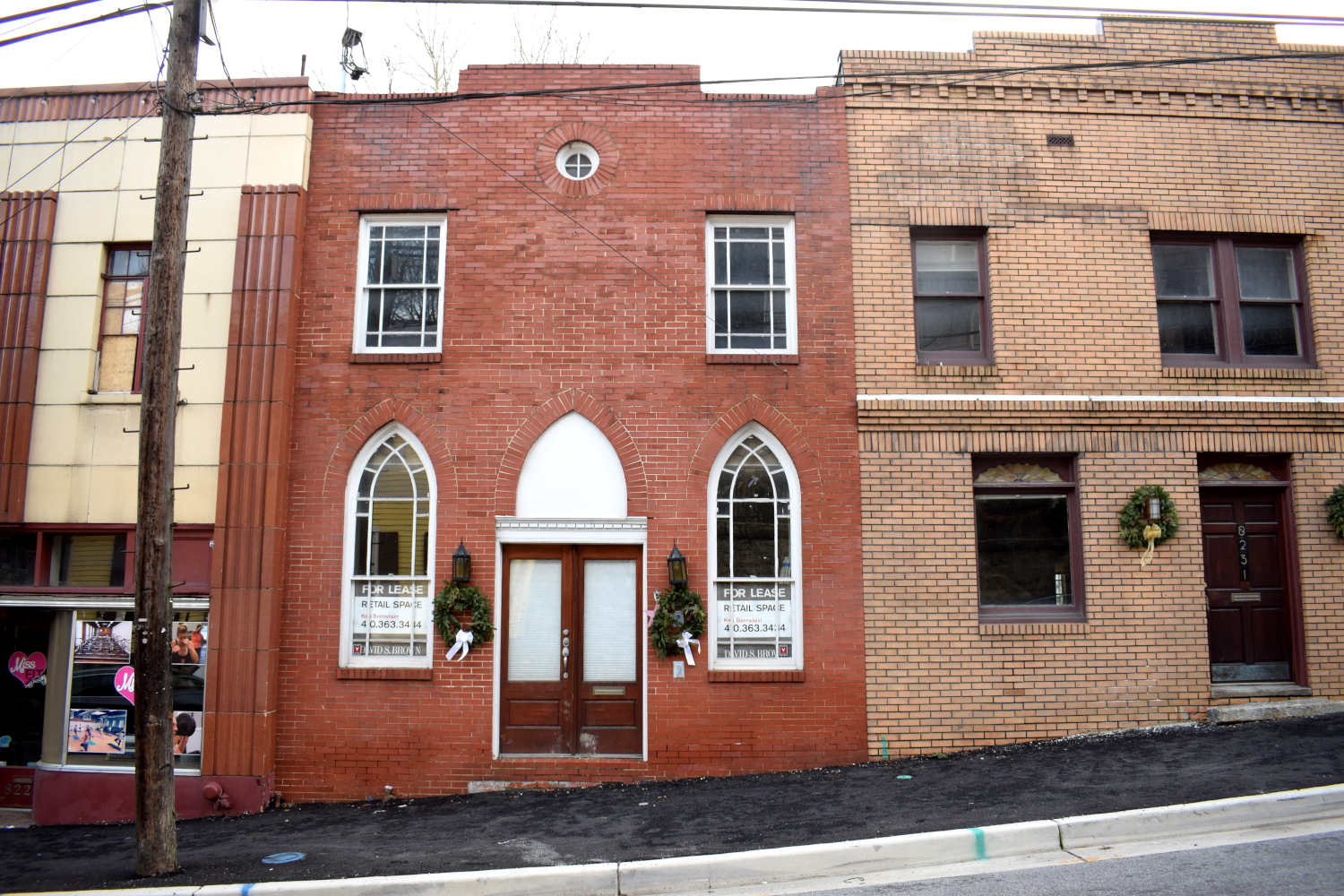 I like the brick buildings. A lot of retail space was available.
I like the brick buildings. A lot of retail space was available.
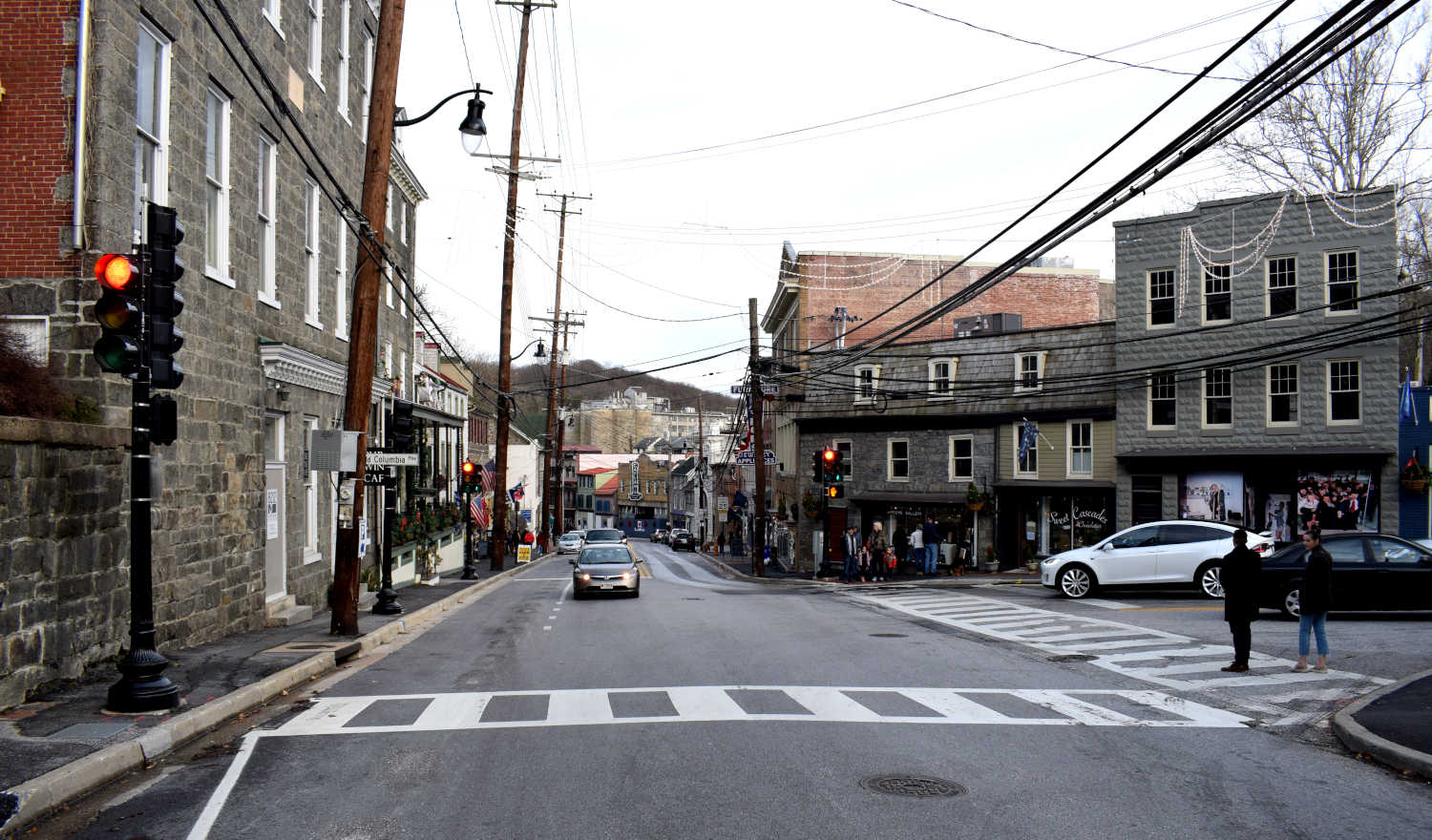 Now let’s address what would make Ellicott City better. Like a lot of American cities, Ellicott City has no pedestrian street. Here we are in the center of the city and it is essentially just one big road open for traffic.
Now let’s address what would make Ellicott City better. Like a lot of American cities, Ellicott City has no pedestrian street. Here we are in the center of the city and it is essentially just one big road open for traffic.
In my opinion, this would be a perfect area for the city to start its pedestrian street from. By turning the center of Ellicott City into a pedestrian zone, the city would get a vibrant town center without people having to constantly worry about crossing the street. Foot traffic in stores would go up, and in all likelihood, tourist visits to the city would go up too.
Ellicott City can copy the example of Cumberland, Maryland, which turned its center into a pedestrian street and created a proper center that most American cities should have if they ever want to ween themselves off of the car.
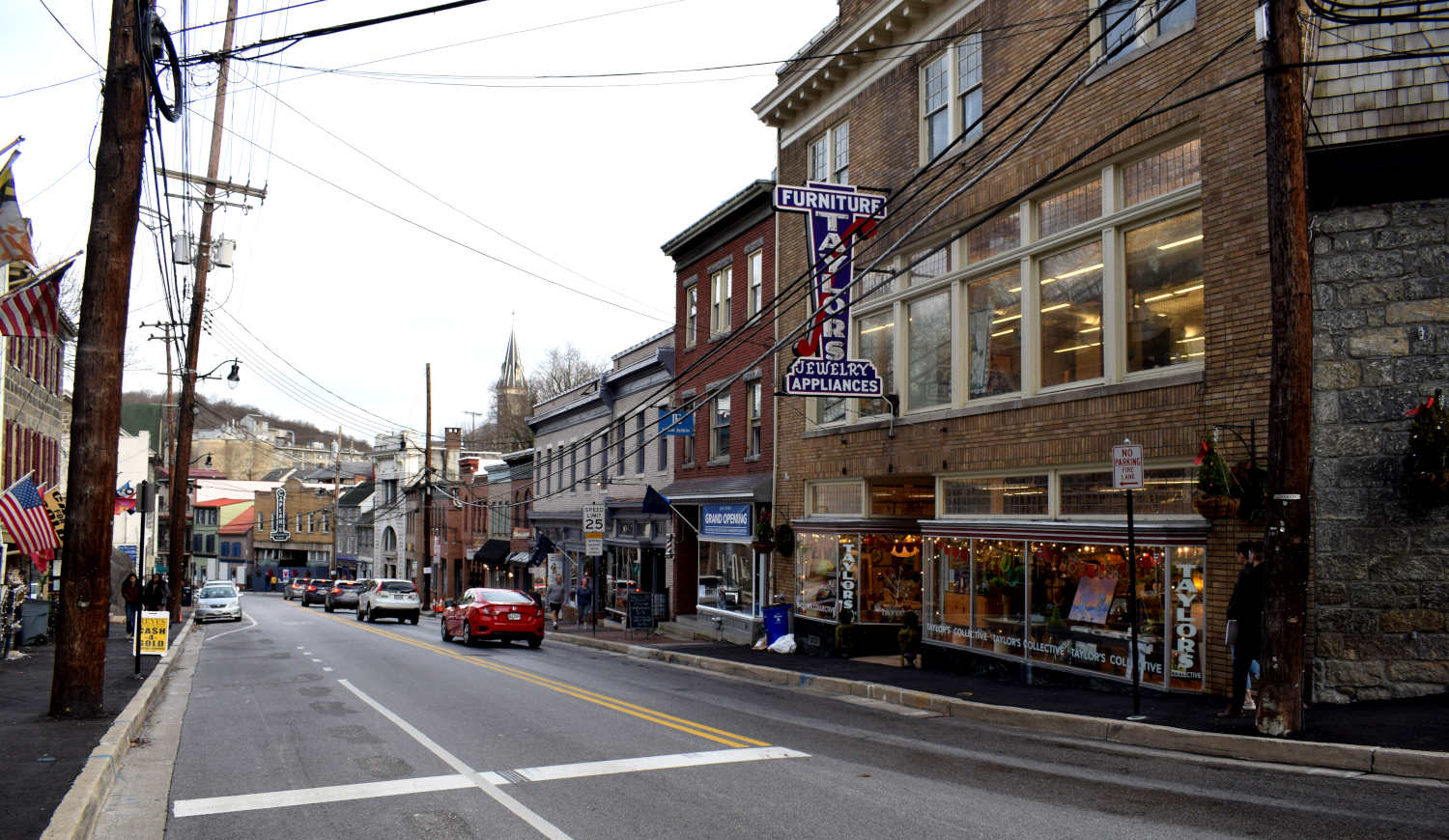 The buildings here are absolutely beautiful. Think of how cool this street would be with outdoor cares for seating, bike lanes, benches and foot traffic. Instead all we here is a city where people are confined to the sidewalks while the majority of the street is set aside for cars.
The buildings here are absolutely beautiful. Think of how cool this street would be with outdoor cares for seating, bike lanes, benches and foot traffic. Instead all we here is a city where people are confined to the sidewalks while the majority of the street is set aside for cars.
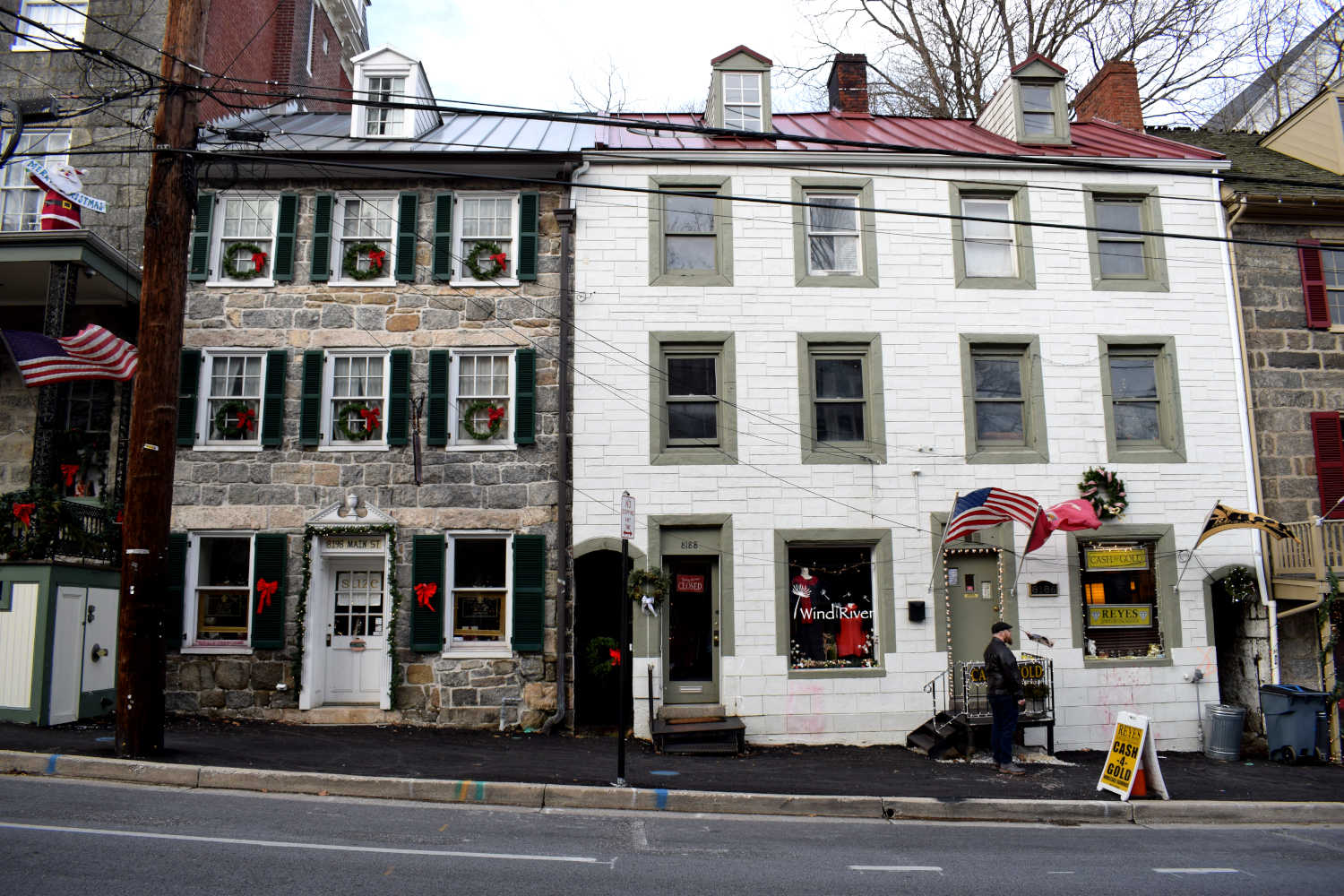
More beautiful buildings. I like how the houses are stacked up against each other, and then are all built in slightly different styles. Also props to the house on the left with all the Christmas reefs.
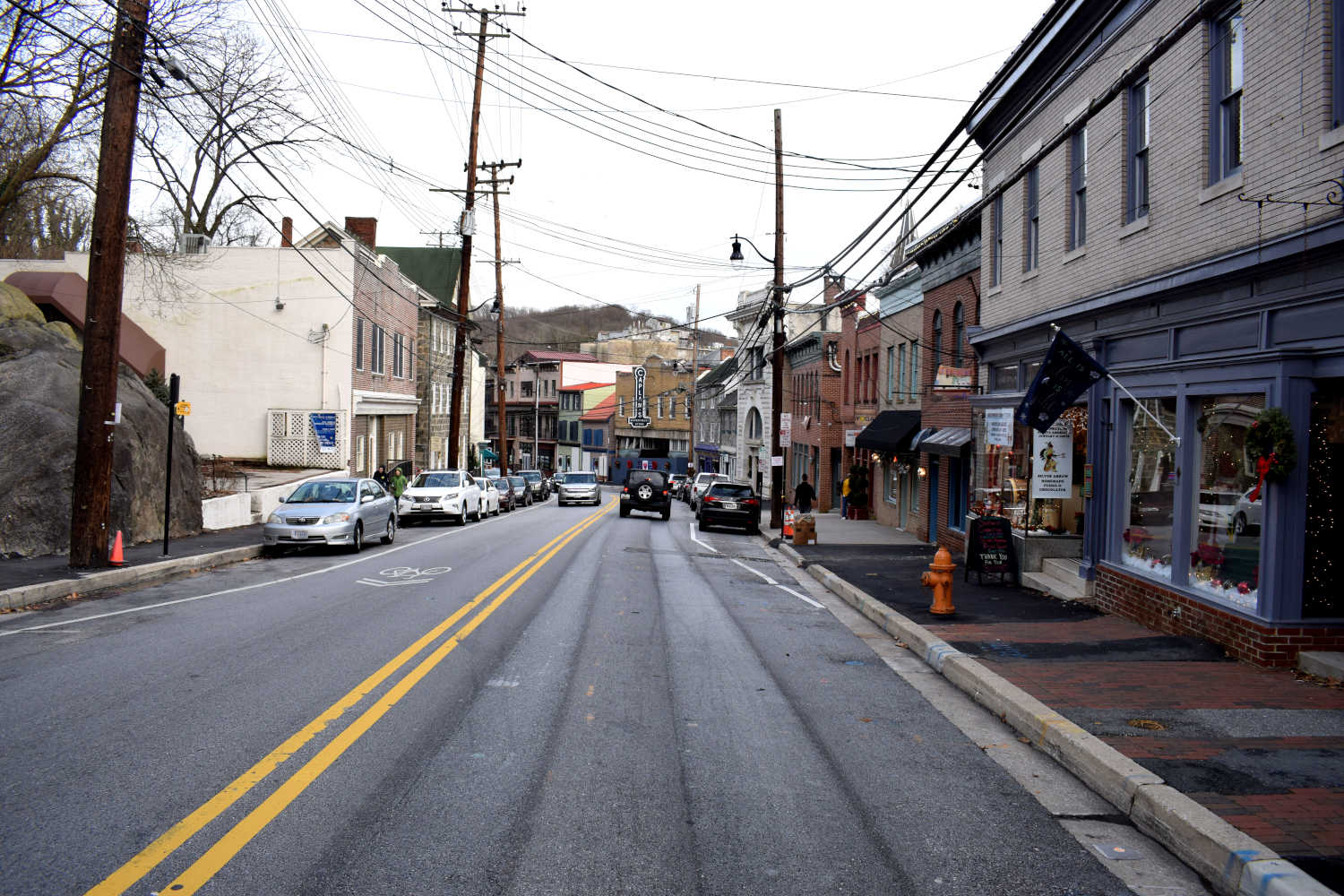 Walking further down the center. This street needs to be pedestrianized.
Walking further down the center. This street needs to be pedestrianized.
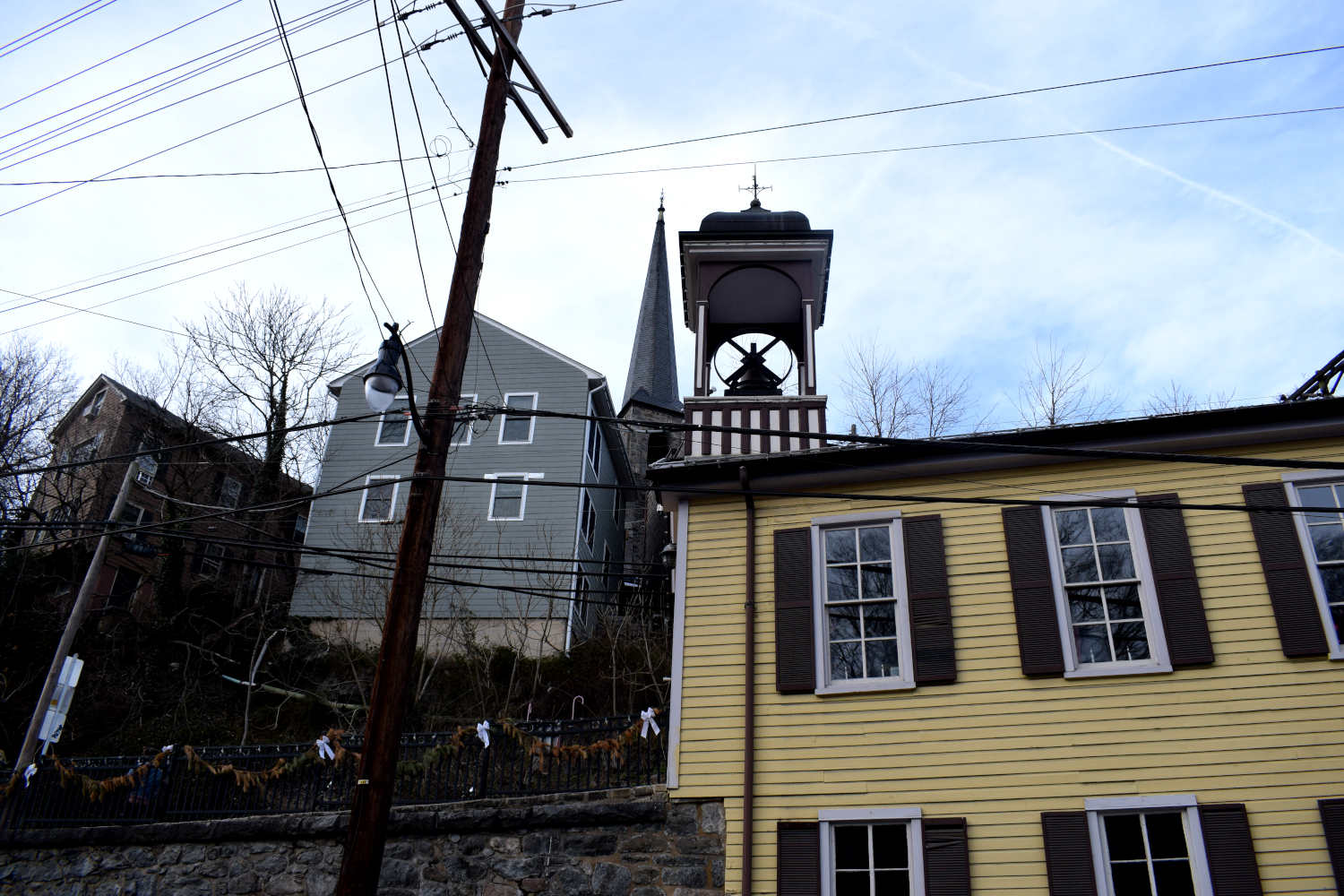
The Firehouse Museum and the Ellicott City church, looking up at them.
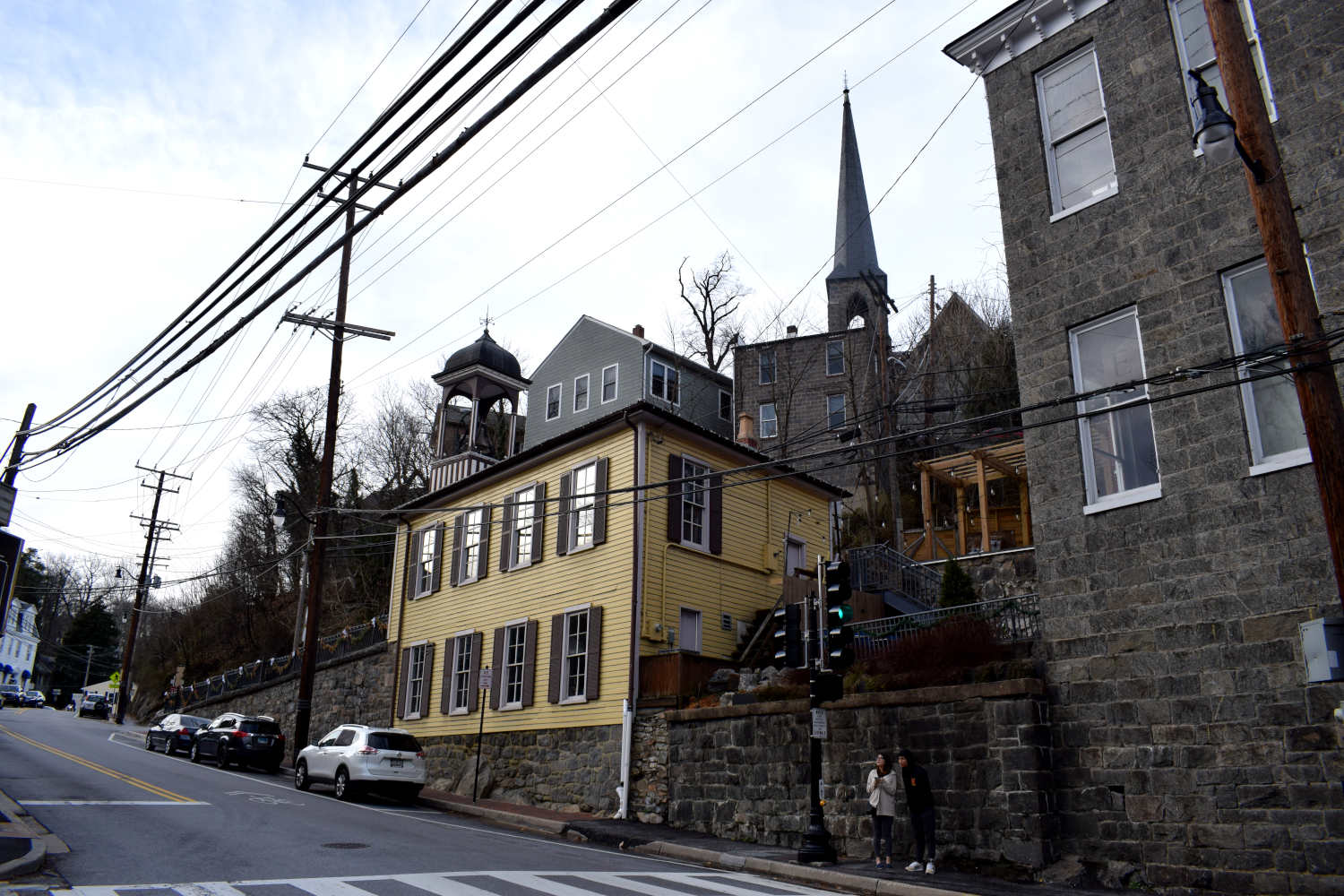
Another look in the other direction. The Firehouse Museum is a good example of how you can take a very small simple building and turn it into a museum to preserve a portion of the city’s history.
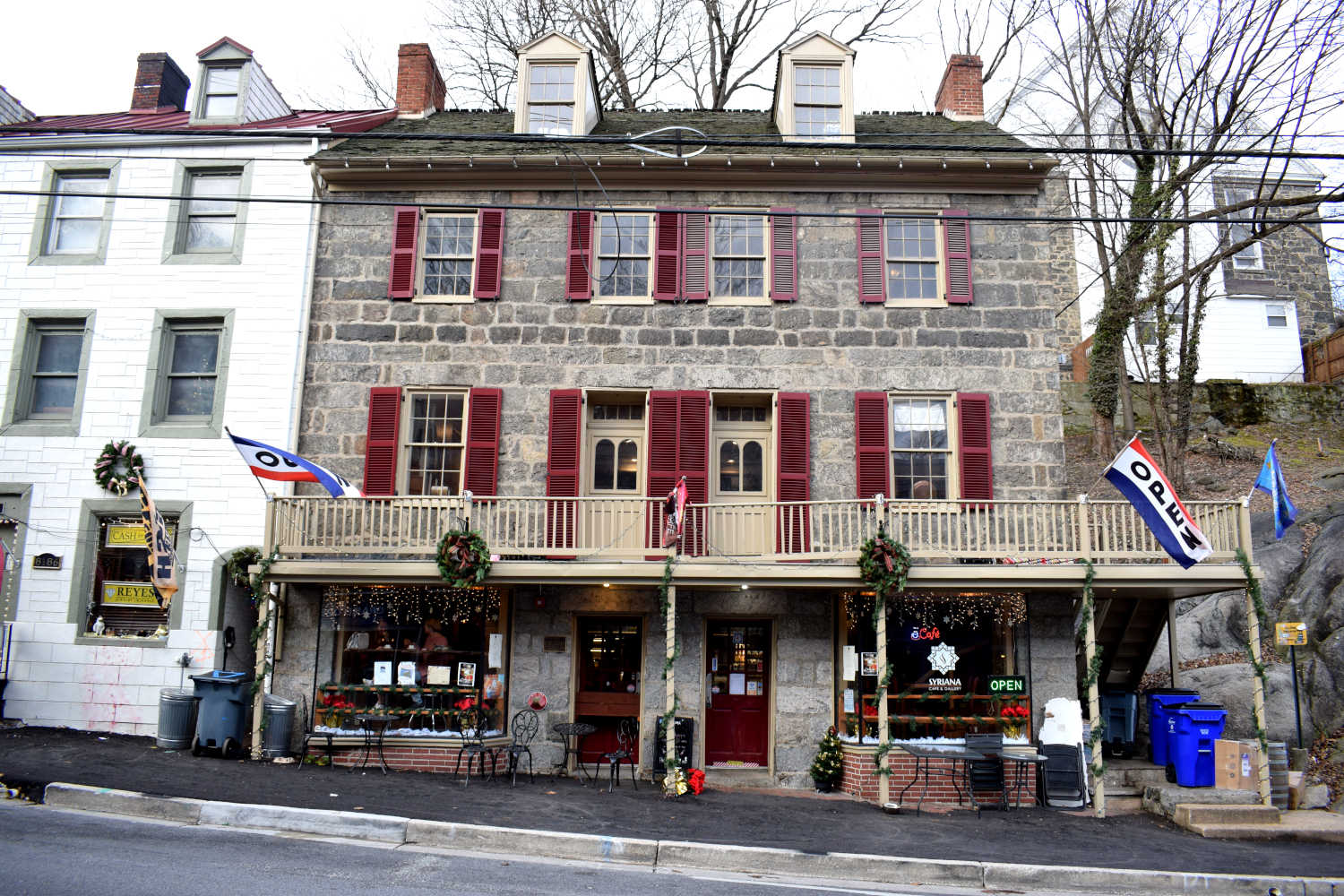
A beautiful stone building and front porch. On the first floor was a really good café with some outdoor seating and tables.
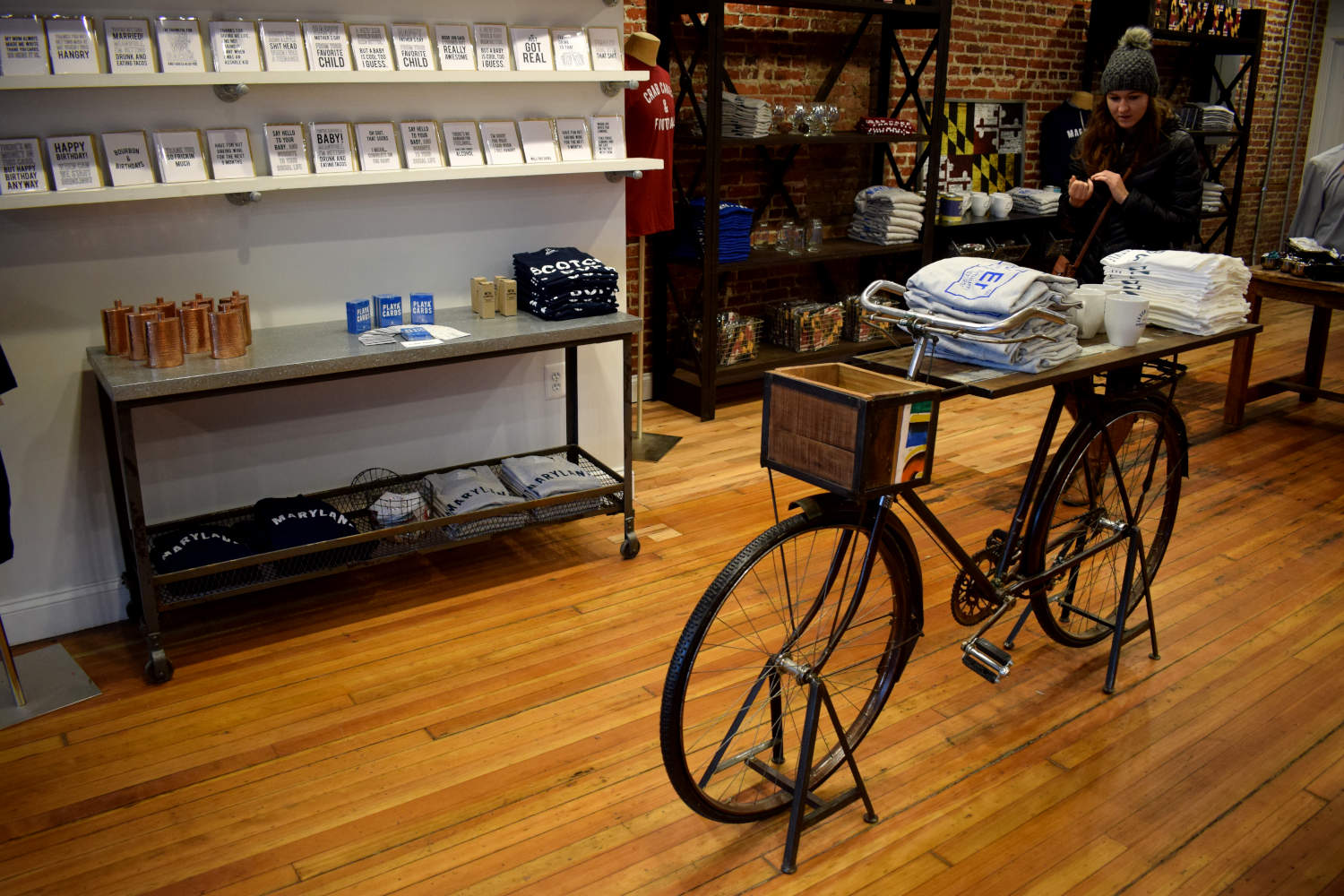
The stores in Ellicott City seemed to specialize in selling awesome stuff. Virtually every store we walked into had some cool items to sell. For example, this table made out of a bike.
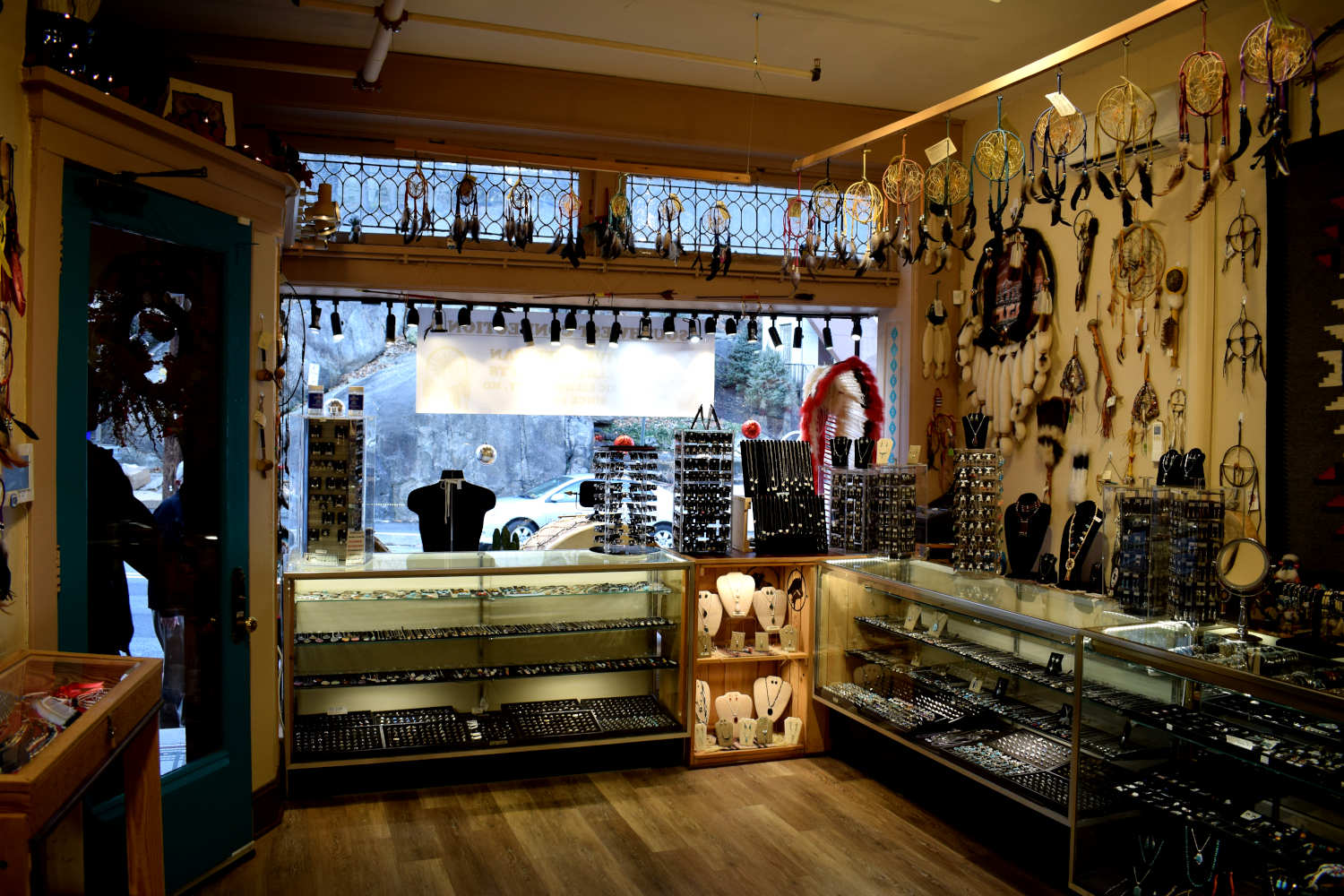
Or this store with a bunch of cool Native American stuff.
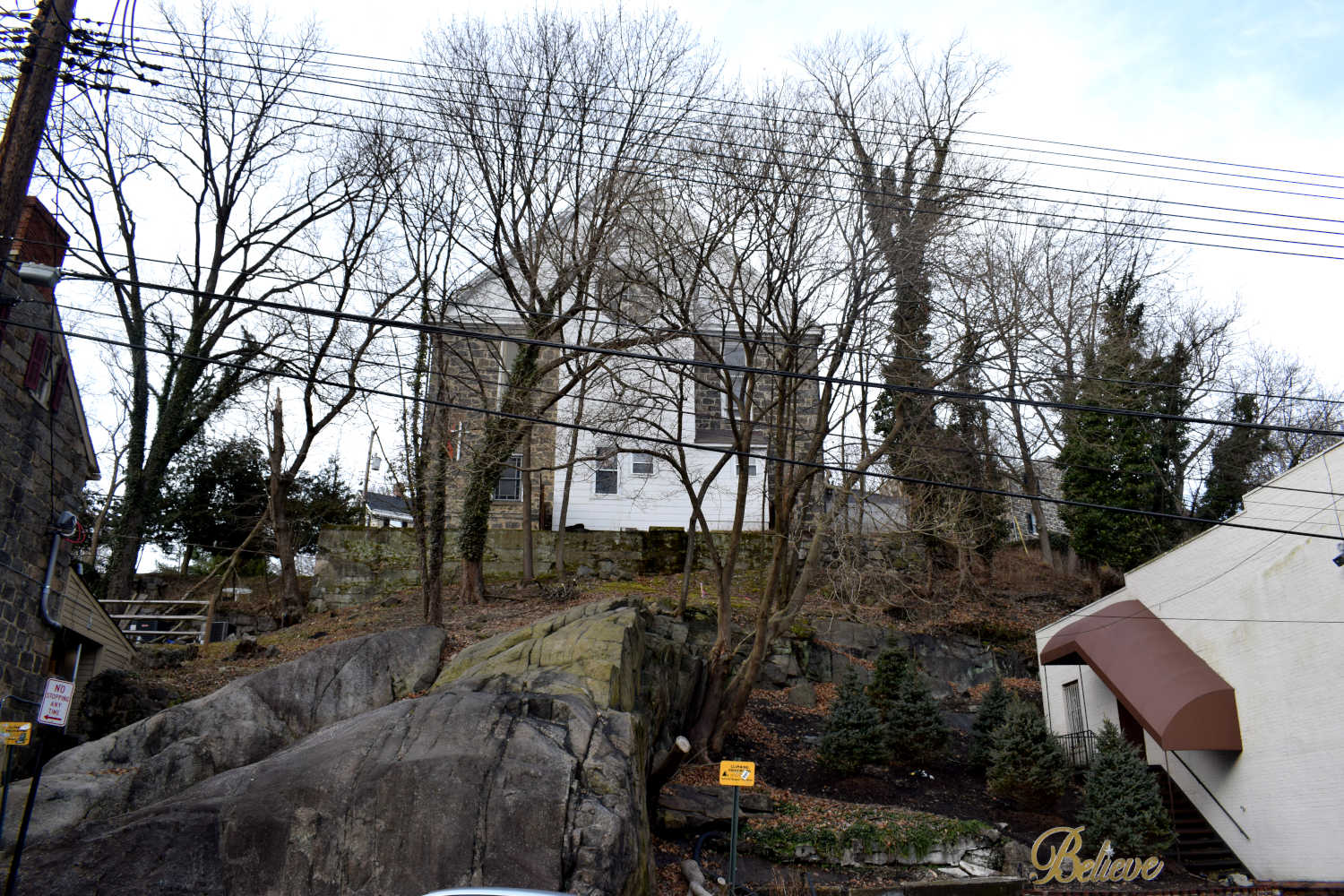
Ellicott City’s main church.
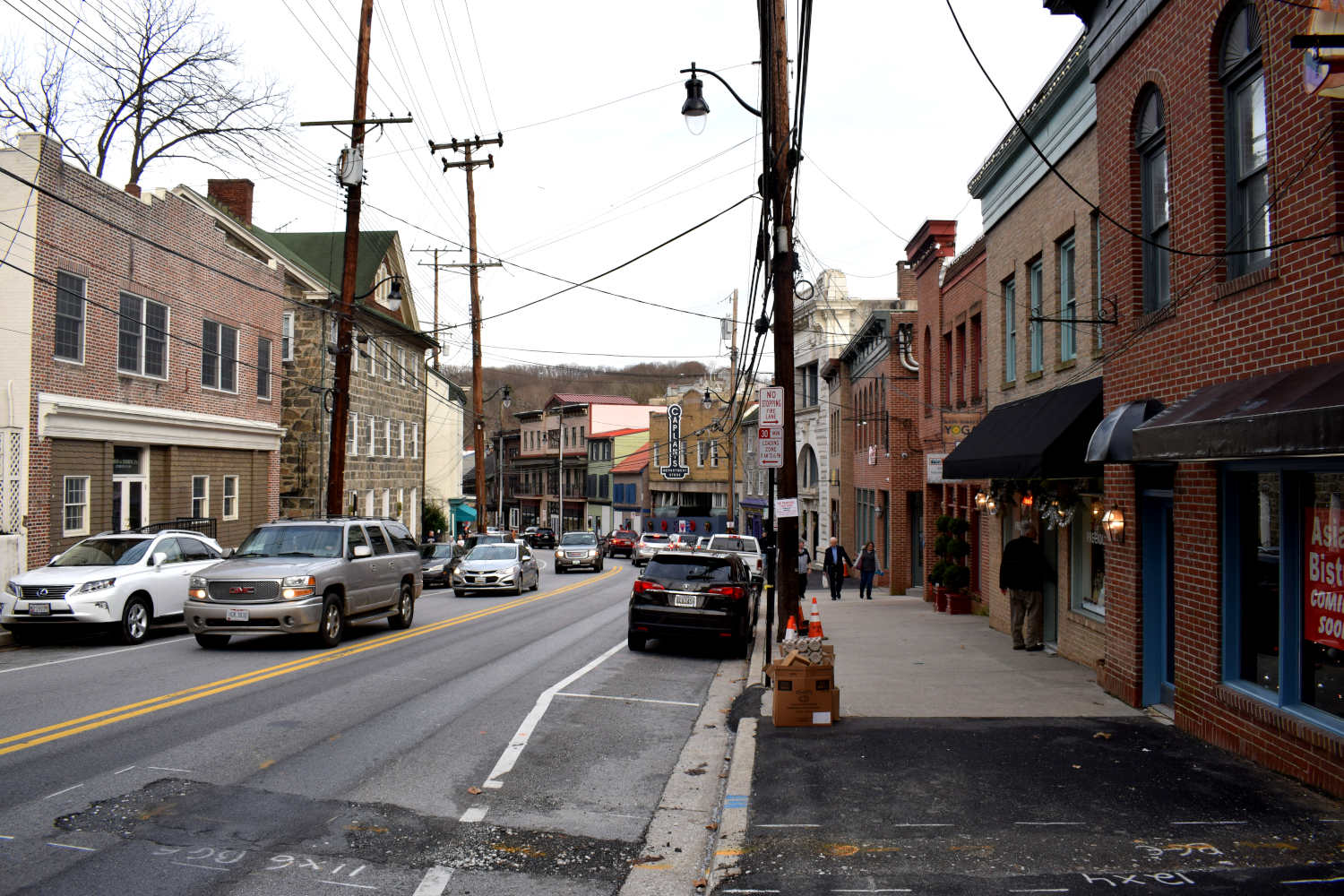
Most of Ellicott City winds down and follows this main road At the bottom of the hill the city levels out and it is easier to walk.
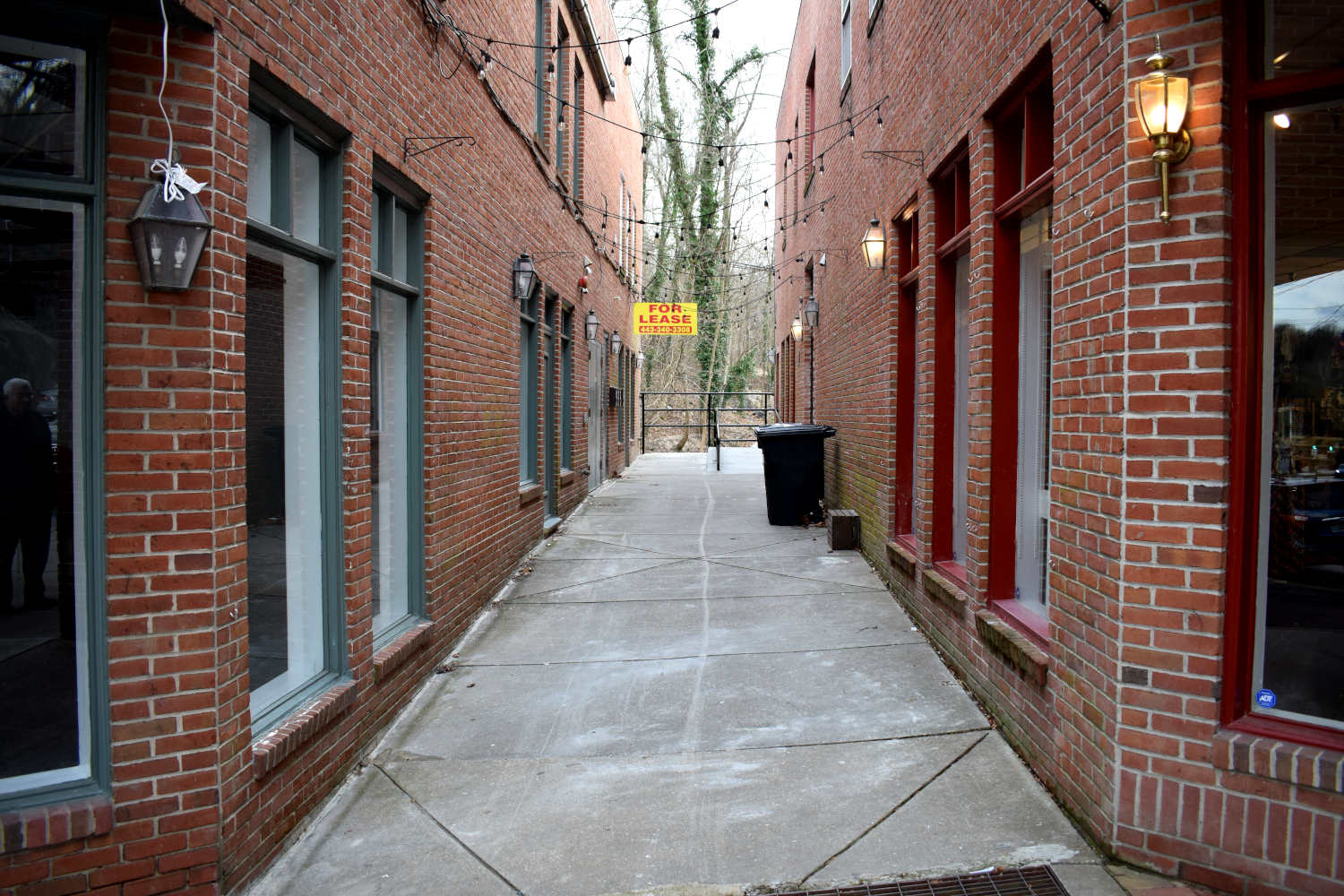
There were also some narrow streets where you could add street side cafes. Of course, we visited at the start of January when everything was cold and nobody was outside, but in the summer this would be a perfect street to set up some outdoor seating on.
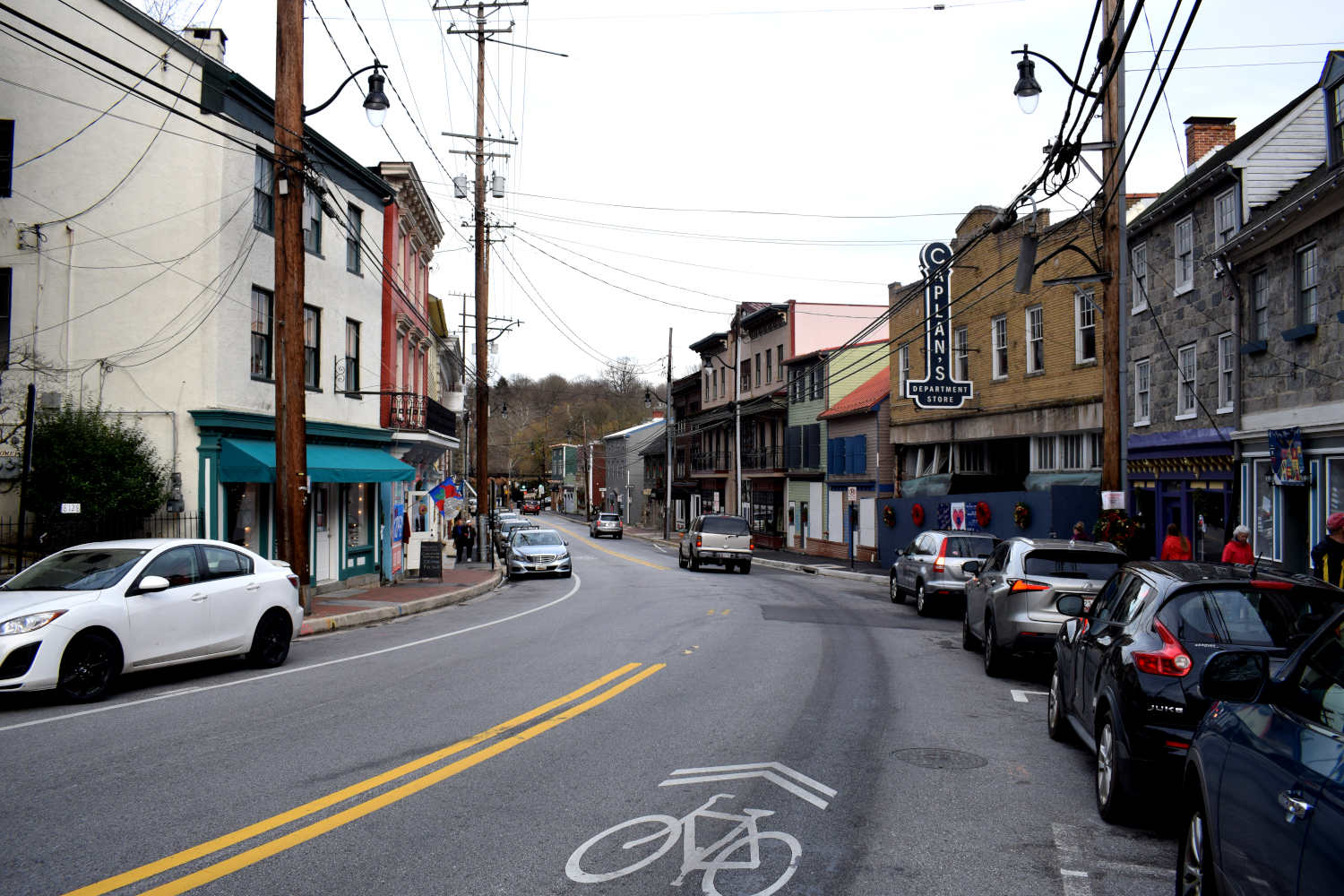
When we got to the bottom of the hill Ellicott City’s center evened out and it was easier to walk. But it still felt like the center was really car prone. They have signed for bikes, but very few people riding bikes. Perhaps because the city is dominated by cars.
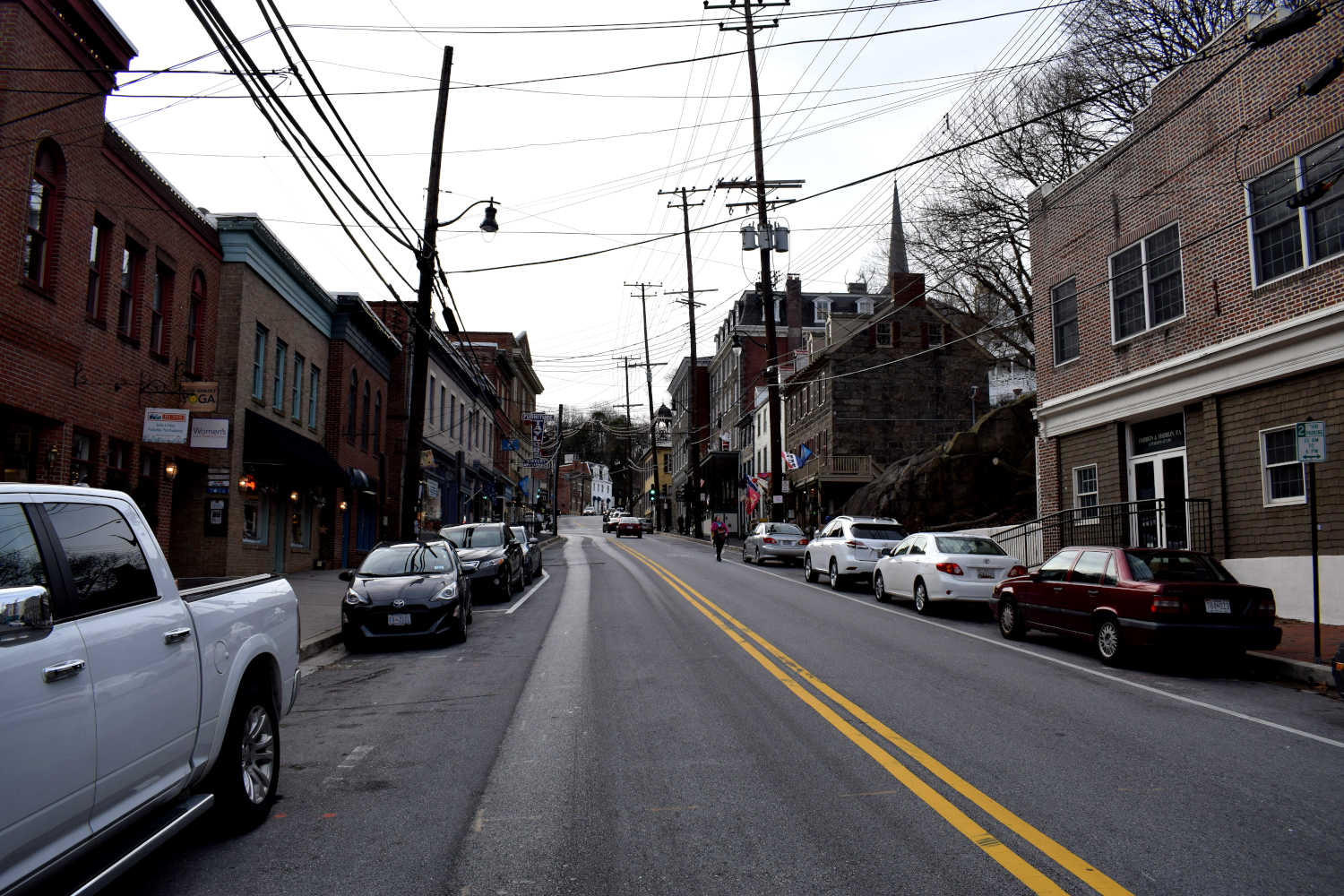
Of course, developing a robust biking culture in Ellicott City is difficult because of the hilly terrain, but that doesn’t mean it can’t be done.
Imagine this street without any cars, it would be beautiful.
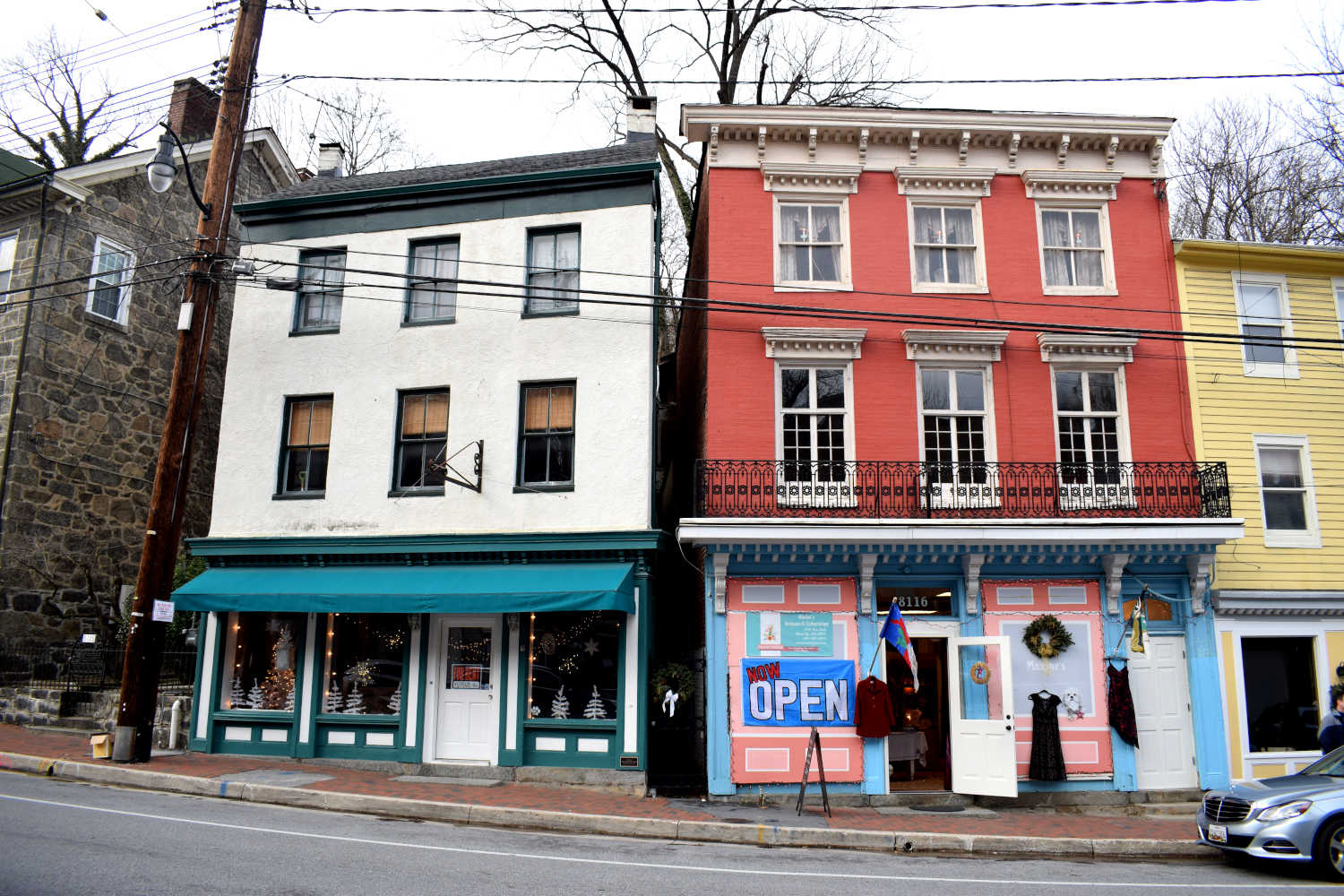
More beautiful old architecture. Cities in the United States need to make every effort in preserving such architectural beauties.
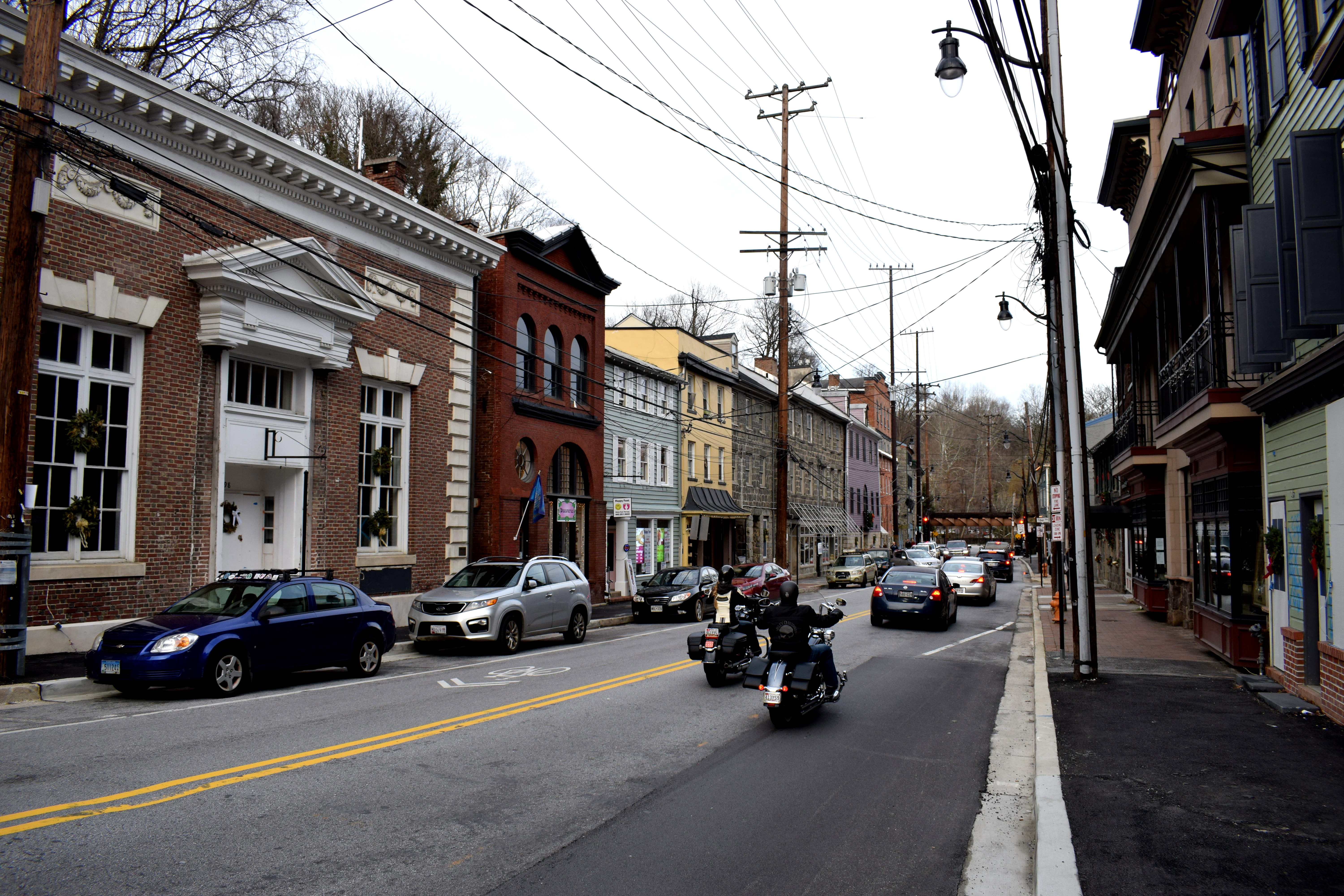
Simply stunning. Here we are in the heart of Ellicott City. The city is just begging for a pedestrian street here.
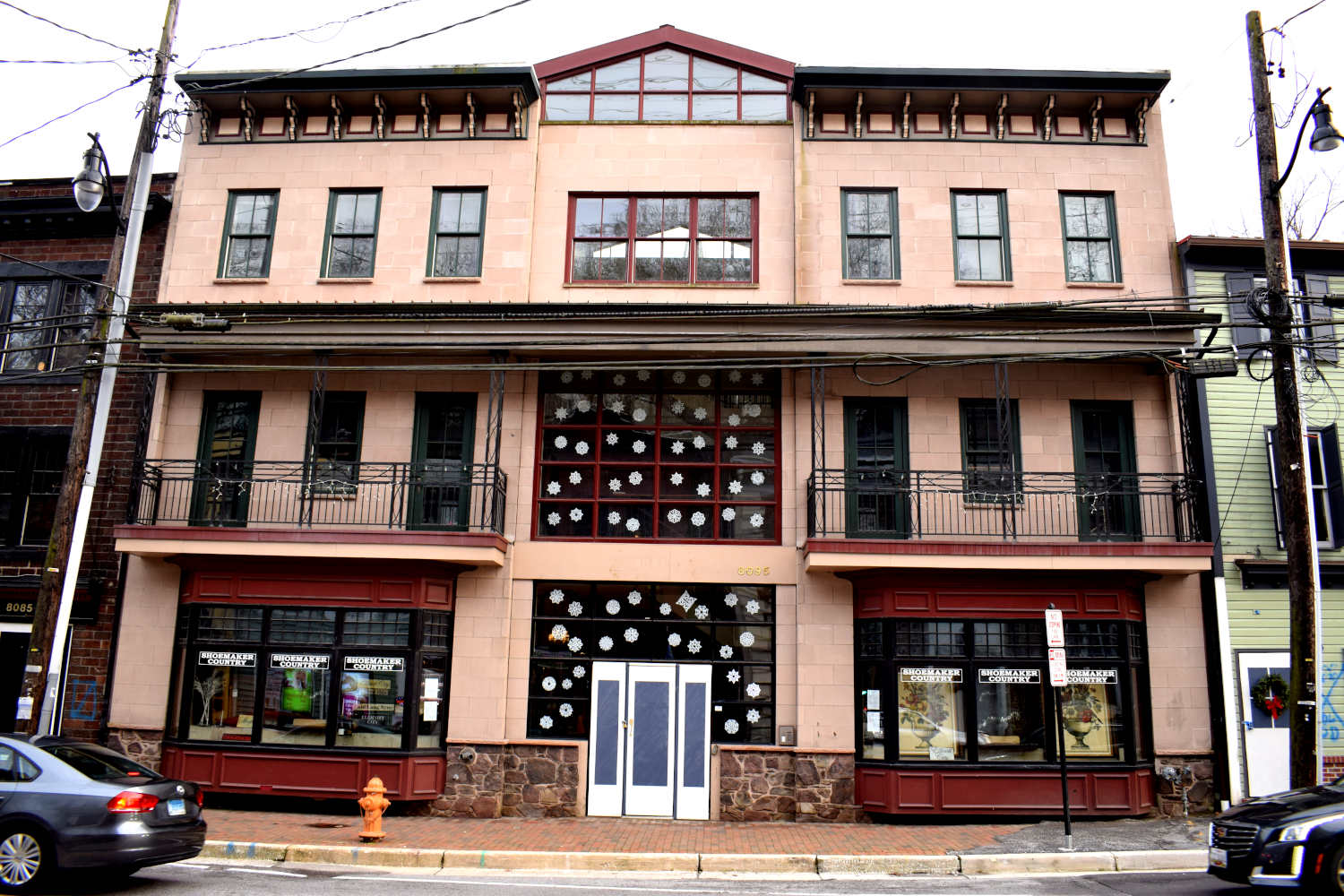
This house is wonderful.
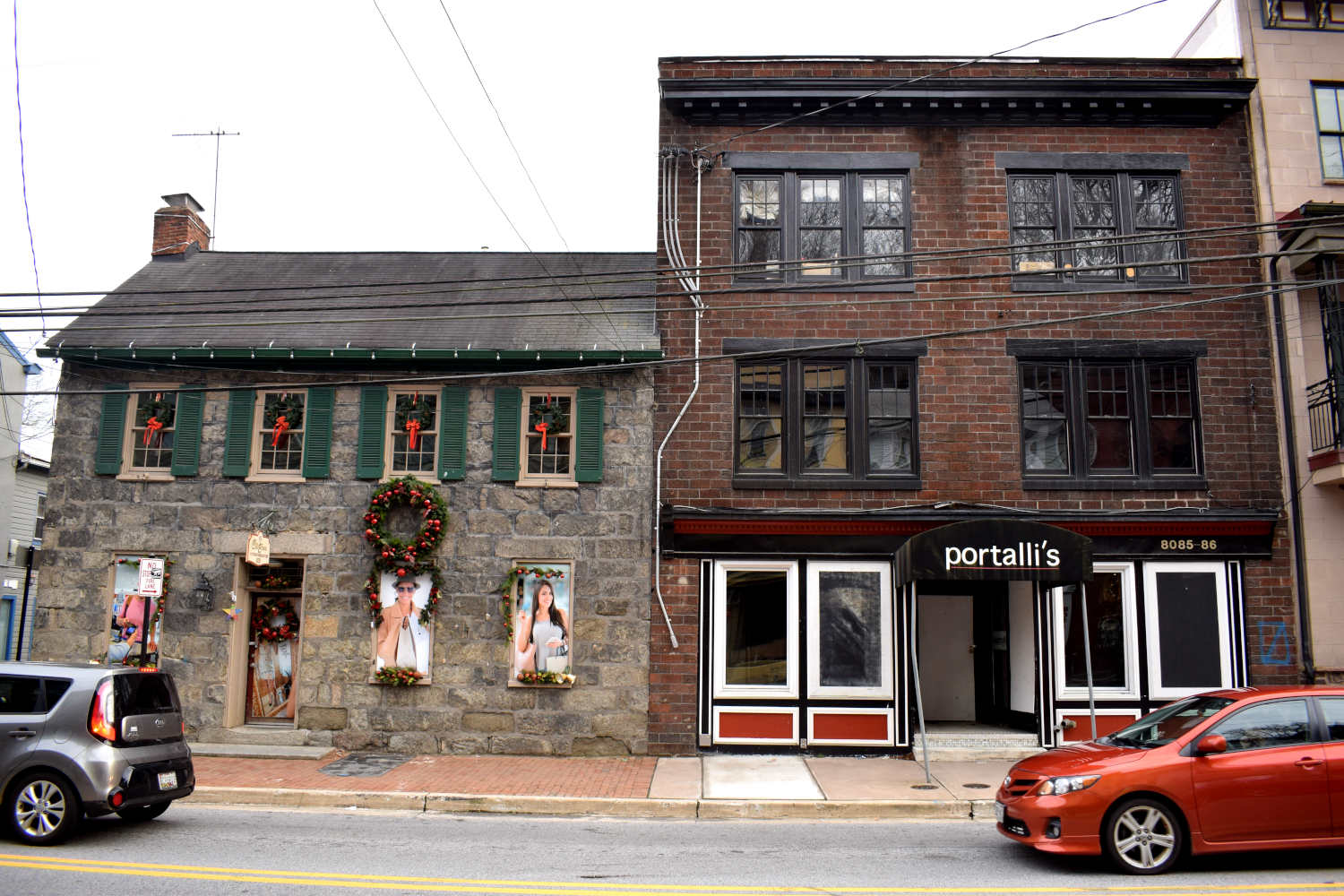
There is something about buildings constructed from brick and stone that gives them value. When I look at these two buildings, I can see and feel the history steeping out of them. We love Europe because the historic centers of their cities have been preserved to this day. We wouldn’t think of tearing down those small one or two story buildings in Europe’s major cities because they are a testament to the history of these nations, that they have lived and belonged to this area for centuries.
But in the United States, these kind of historic buildings are being massively torn down all over the country. Especially in cities where gentrification is ongoing and where the local city decides to build elite modern apartments by tearing down old buildings like these. That is not good, that is what will destroy America’s cities.
In Ellicott City, at least we can get a sense of what that early America felt like, and it is because these kind of buildings are there and they are left standing.
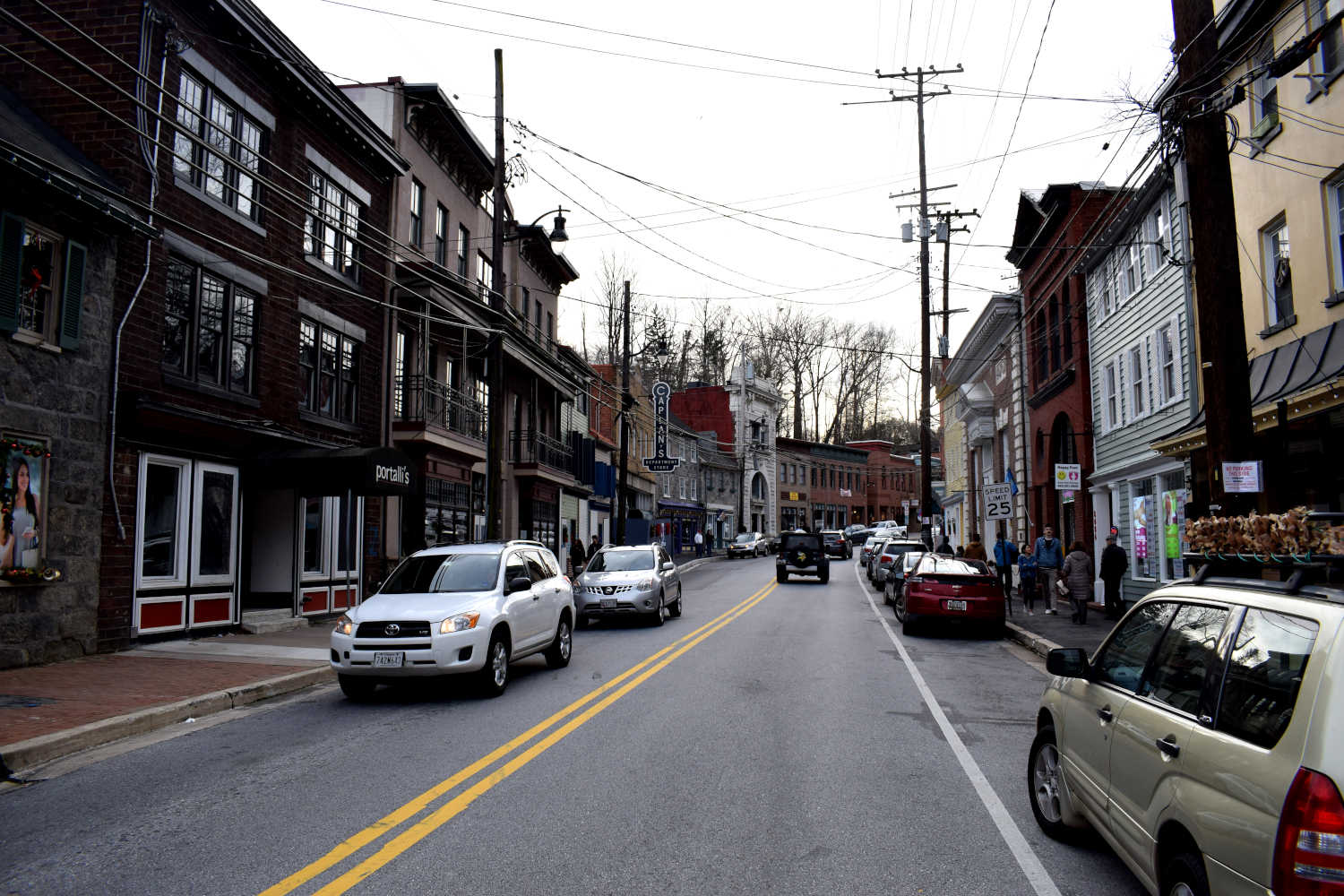
Simply stunning. If you took away the cars and added trams, you could be in any other country in Europe.
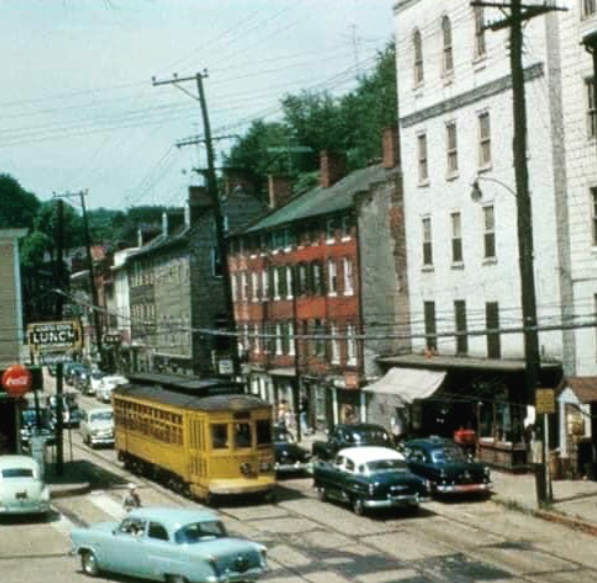
If you think this is all just wishful thinking on my part think again. Here is what Ellicott City looked like all the way up until the mid 20th century. You had a tram running in the center of Main Street.
In fact, you had trams in almost all of America’s cities. They called them streetcars, but for all purposes they were trams. America was in fact a very European kind of country up until WWII.
Unfortunately after WWII the country came up with a disastrous plan to promote car ownership and home ownership for the country’s white people. Through propaganda, they convinced the wealthy elite in American cities that luxury and prosperity meant owning a house on the outskirt of the city and driving into the city everyday for work.
In the process, trams were destroyed, roads were widened, and the European nature of America’s cities disappeared.
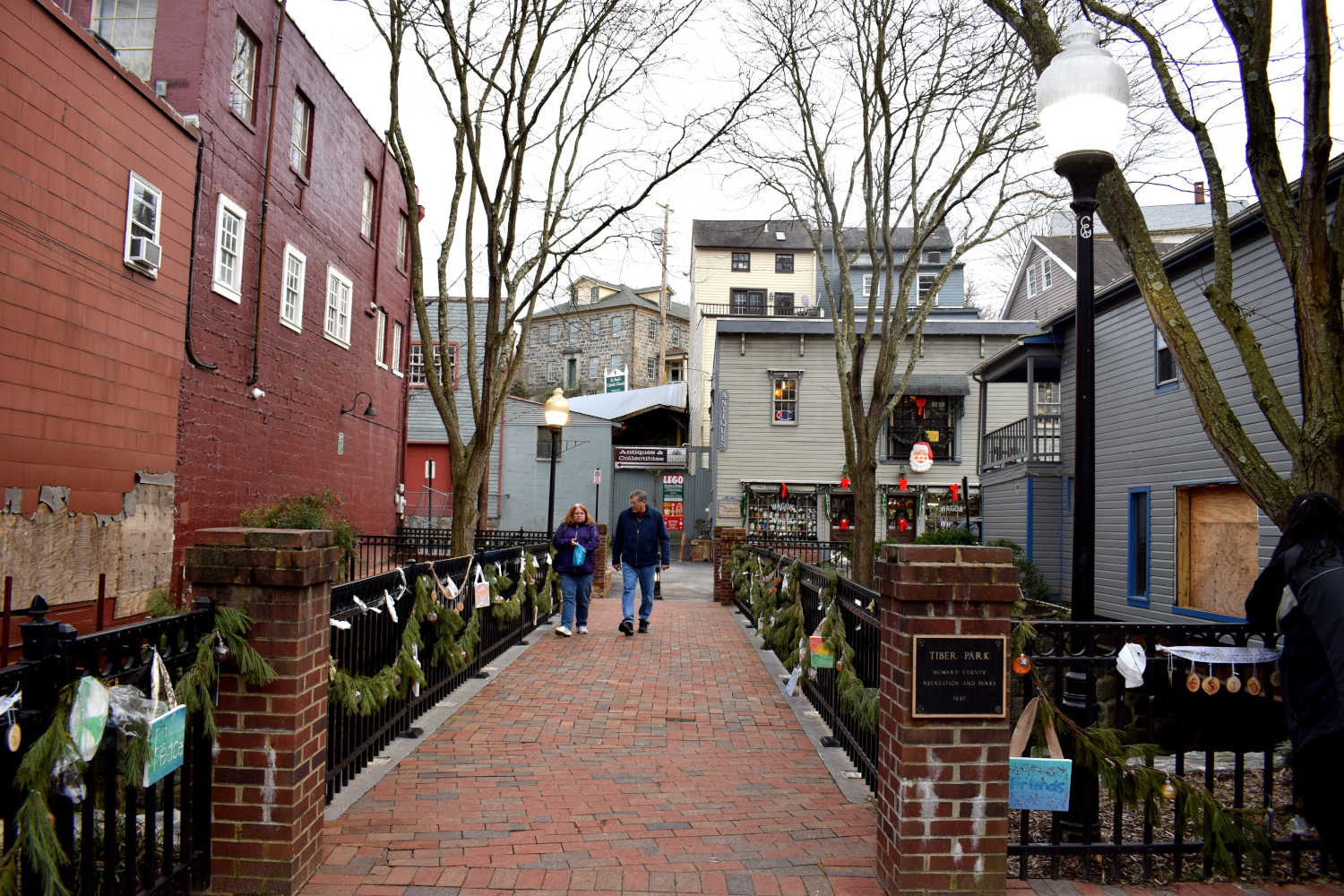
In part of the city you still have pedestrian only areas, like this historic small bridge over the canal that stands over the city.
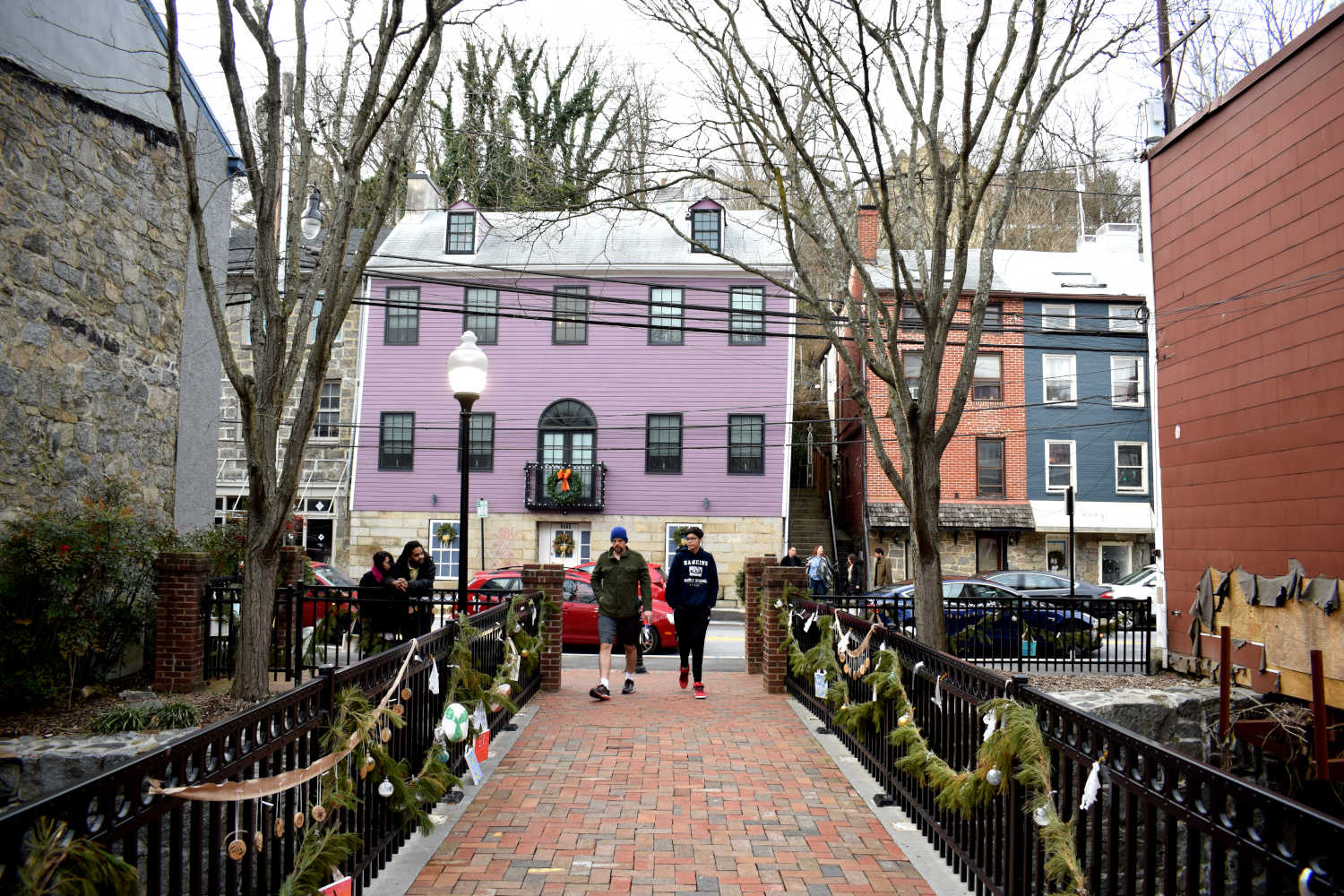
The view of the bridge in the other direction. Just look at how beautiful those historic houses are.
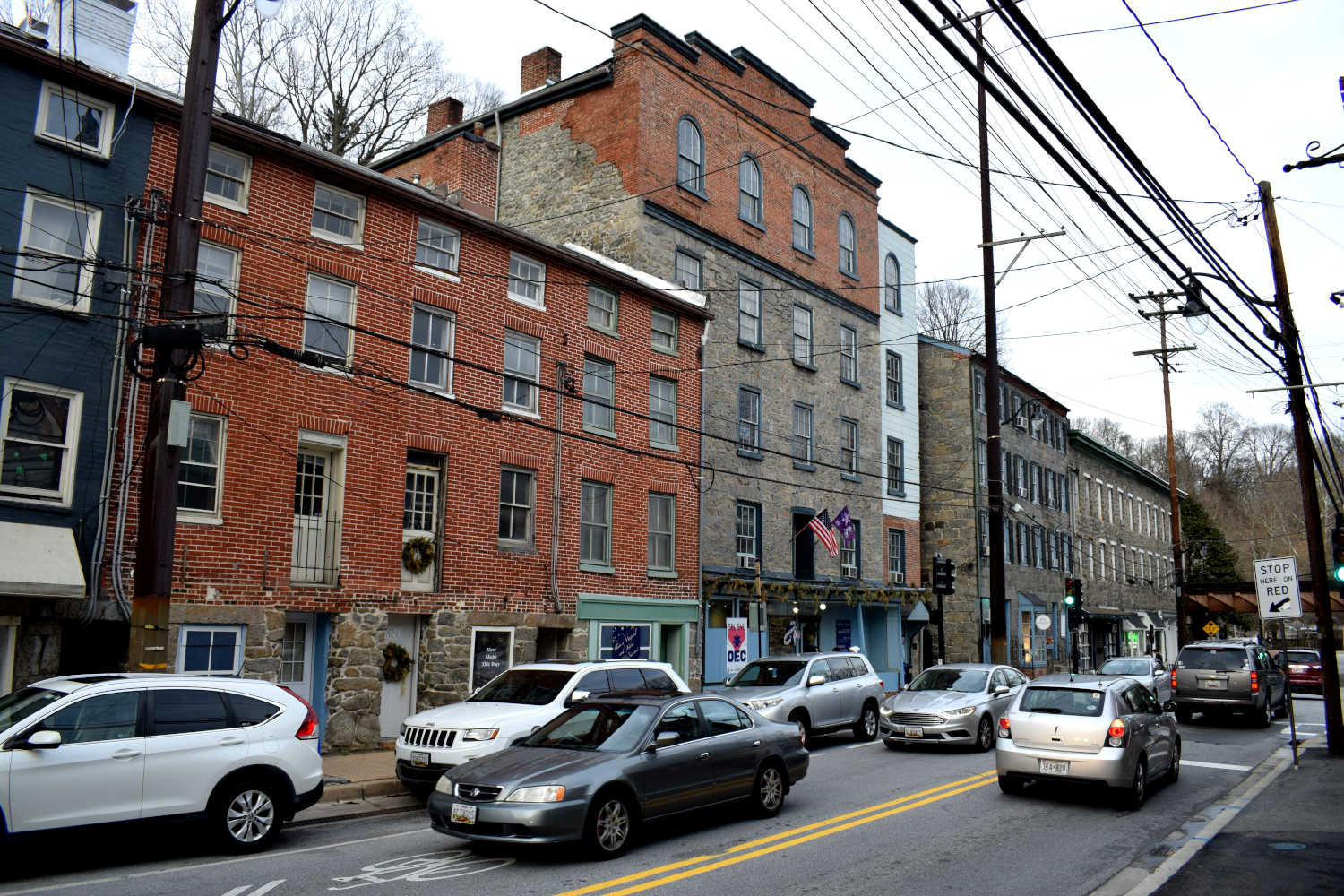
Amazing architecture ruined by cars. Why do you need the center of Ellicott City, the most beautiful part of this historic American city to be constantly stuck in a traffic jam. Why not turn this into a pedestrian street?
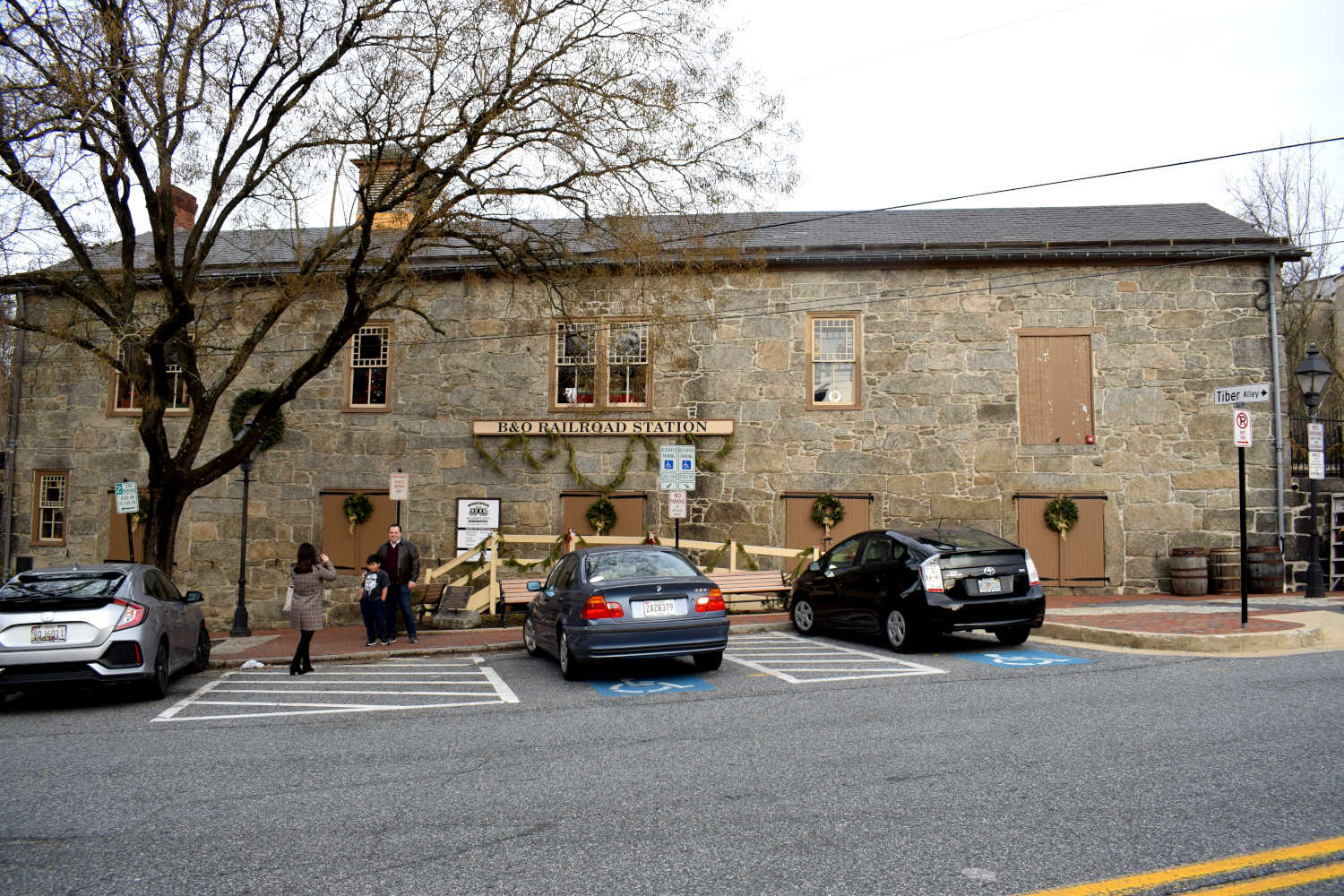
At the bottom of the street is the B&O Railroad Station, one of the oldest railroad stations in the United States that preserved its historic form.
In countless other countries railroad stations have been torn down and modernized. It happens all the time in Russia unfortunately. Here is an example of what a real railroad station should look like.
It should be historic and preserve the look of the city. Why? Because a railroad station is the first impression of a city. A city with an old railroad station that is connected in the city center means you have a city that preserves its history.
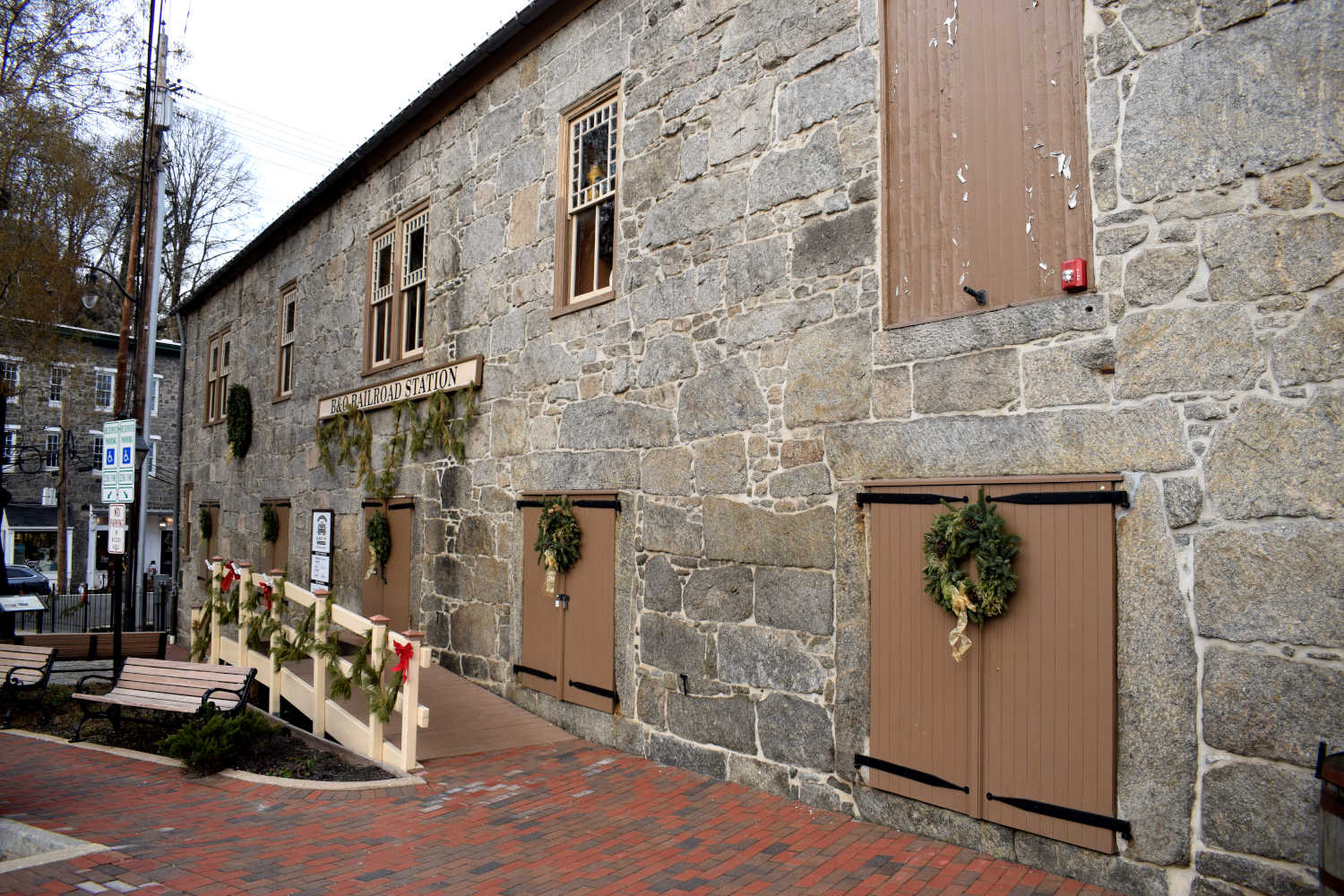
Ellicott City’s train station is the oldest remaining passenger train station in the United States. It was built in 1830 by the Baltimore and Ohio Railway and served as one of the main stops between Baltimore on the way toward the Ohio River Valley and off to the Midwest.
Instead of tearing down train stations, cities need to preserve their old train stations. We don’t need modern buildings at the expense of old buildings. We need to preserve our history.
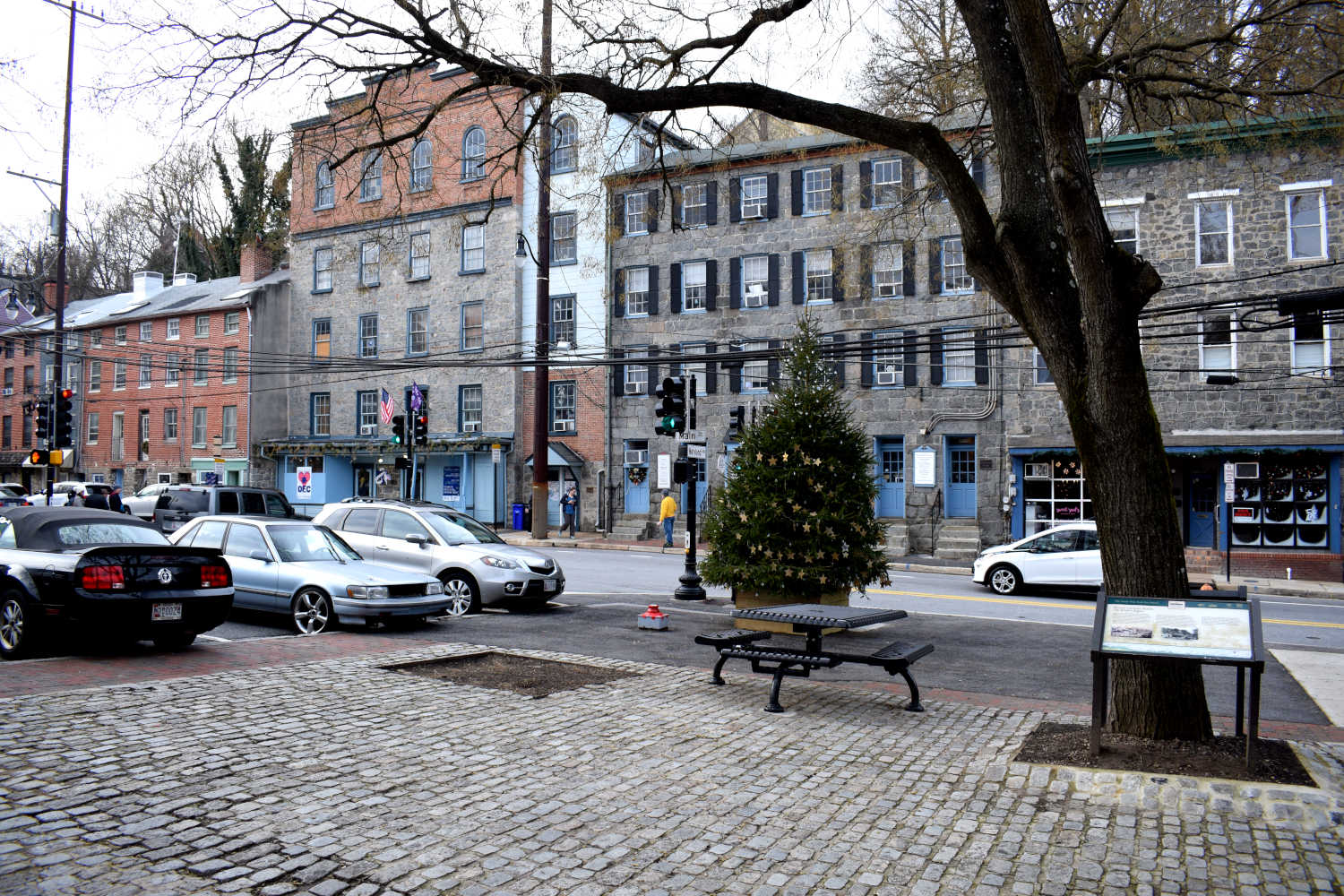
Here is the view of Ellicott City that opens up as you exit the train station. Take away the cars, add in a central plaza and a fountain and a tramp and you get the center of any European city. This should be the goal of Ellicott City.
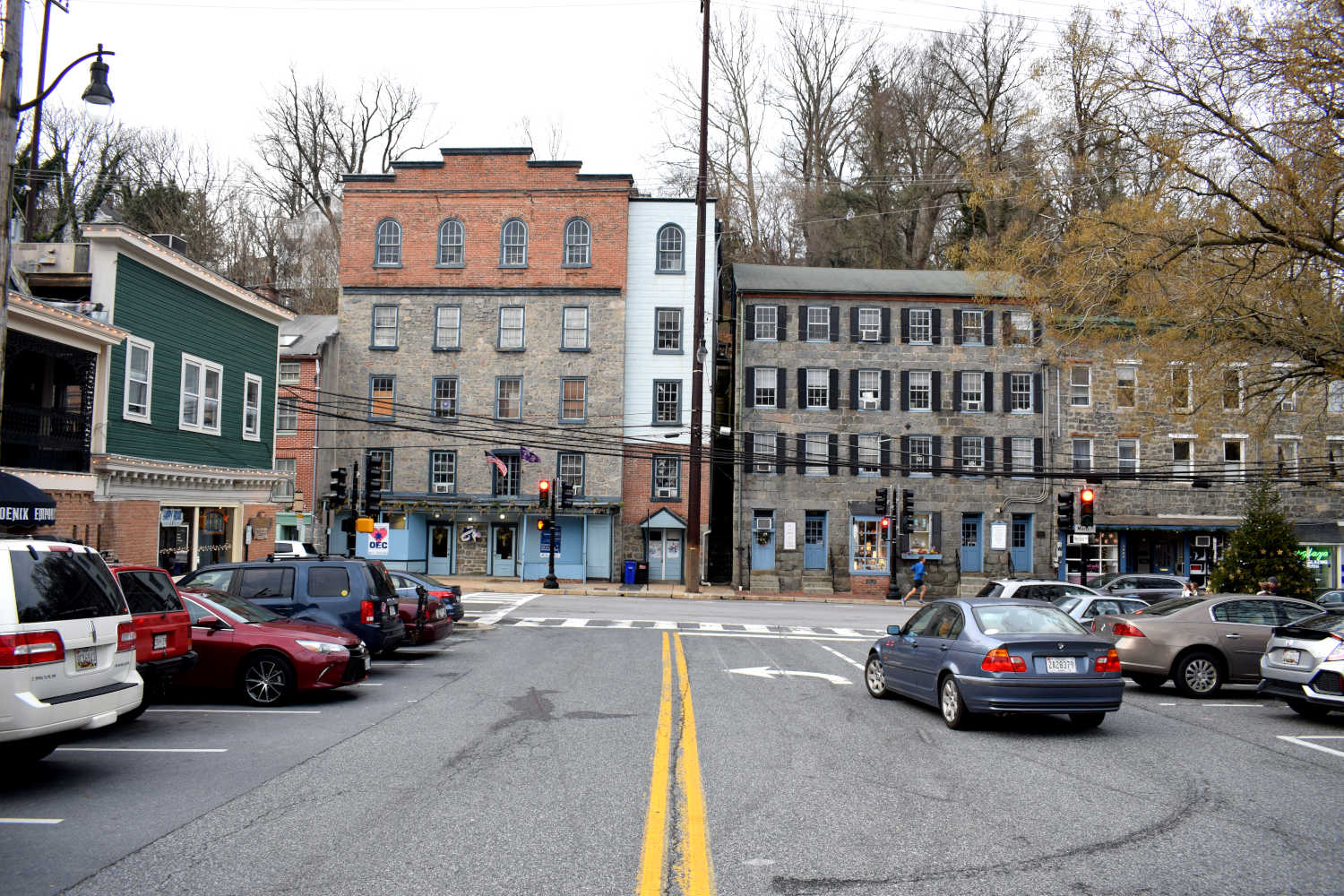
If I were to choose, I would have the pedestrian street start to the left of this intersection.
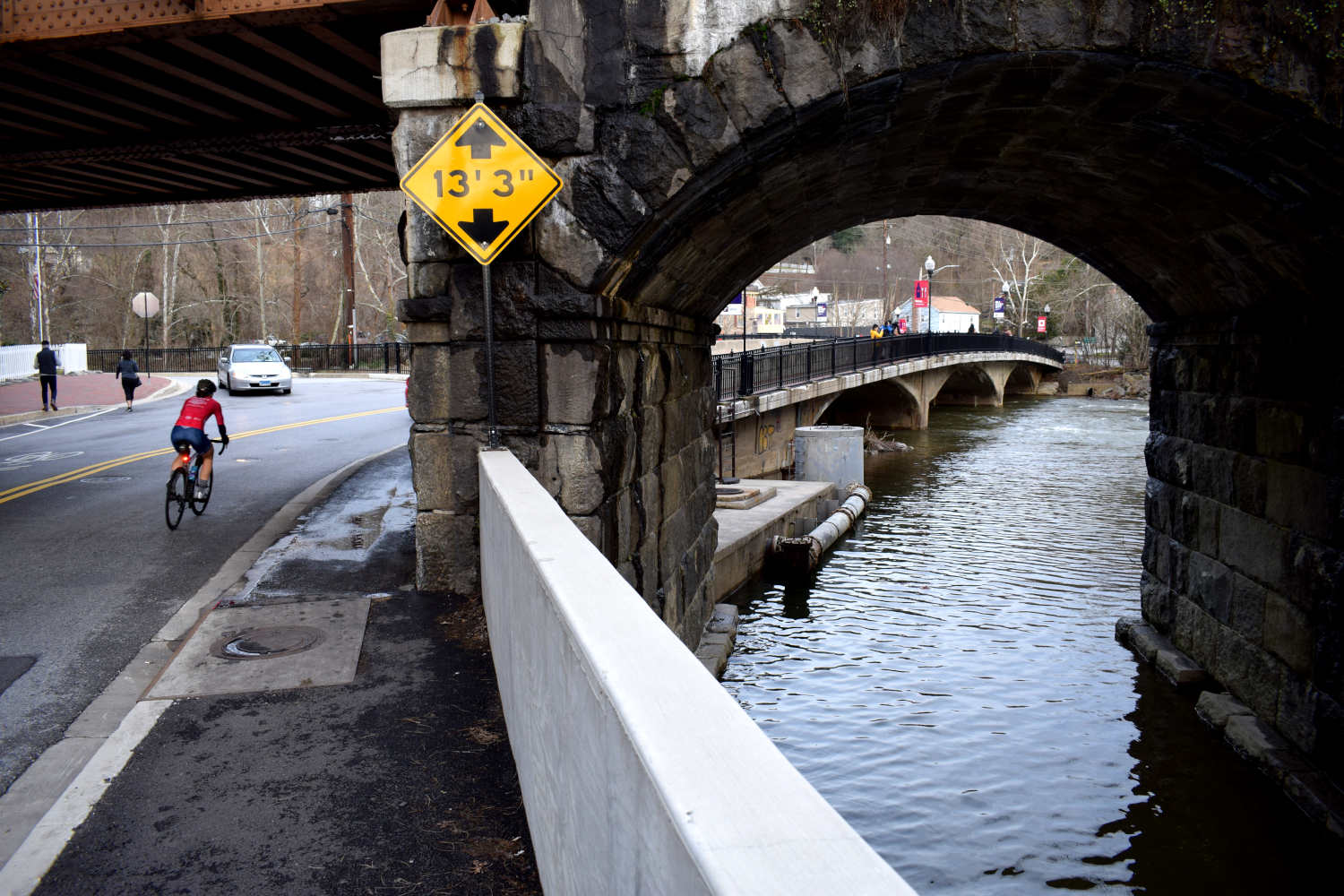 The railroad is located next to the Patapsco River.
The railroad is located next to the Patapsco River.
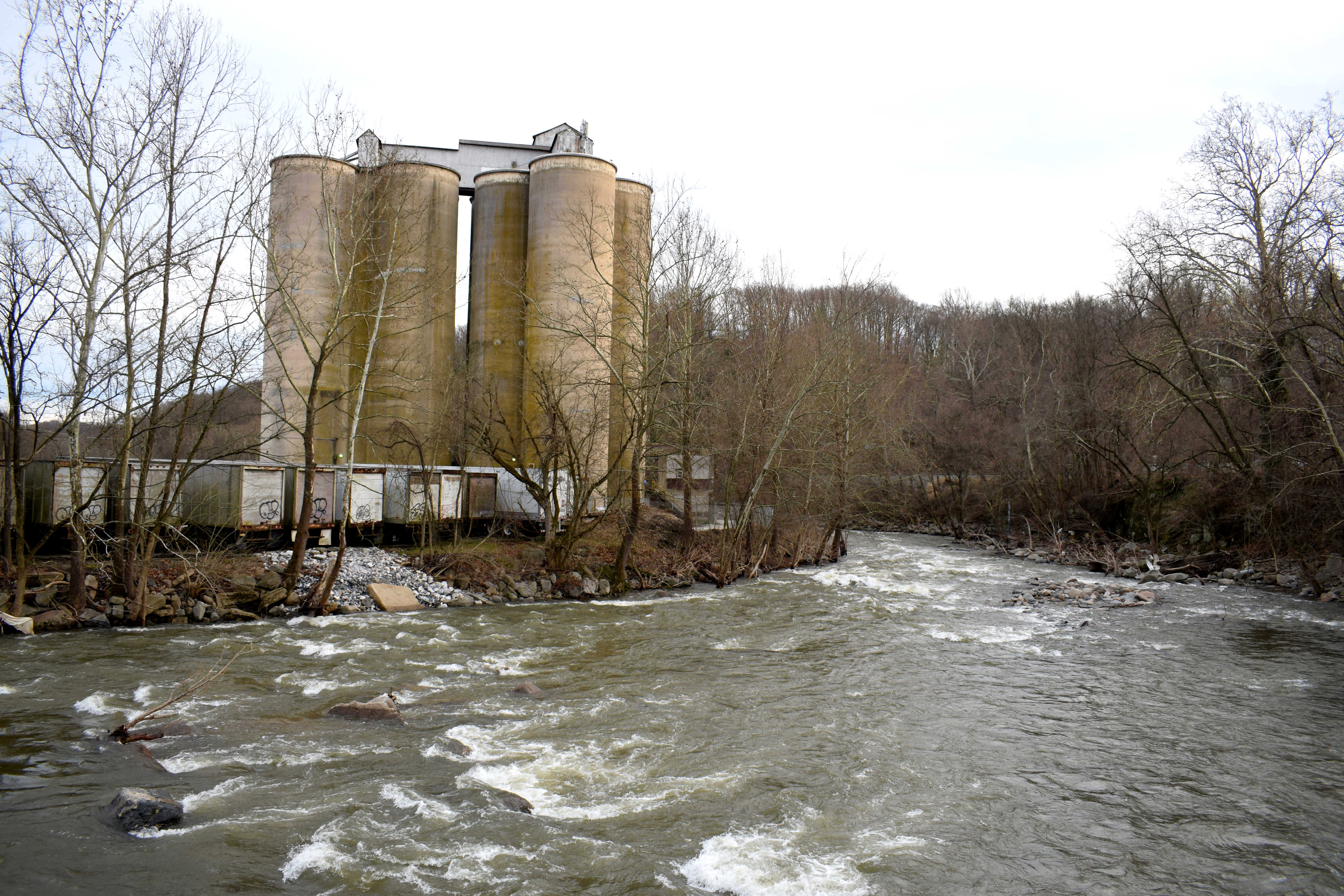 The Patapsco River. On the other side are the Wilkins Rogers Mills, a flour and corn meal milling company first established in 1913 in Washington DC. In the 1960s and 1970s the company moved its headquarters to Ellicott City to this factory.
The Patapsco River. On the other side are the Wilkins Rogers Mills, a flour and corn meal milling company first established in 1913 in Washington DC. In the 1960s and 1970s the company moved its headquarters to Ellicott City to this factory.
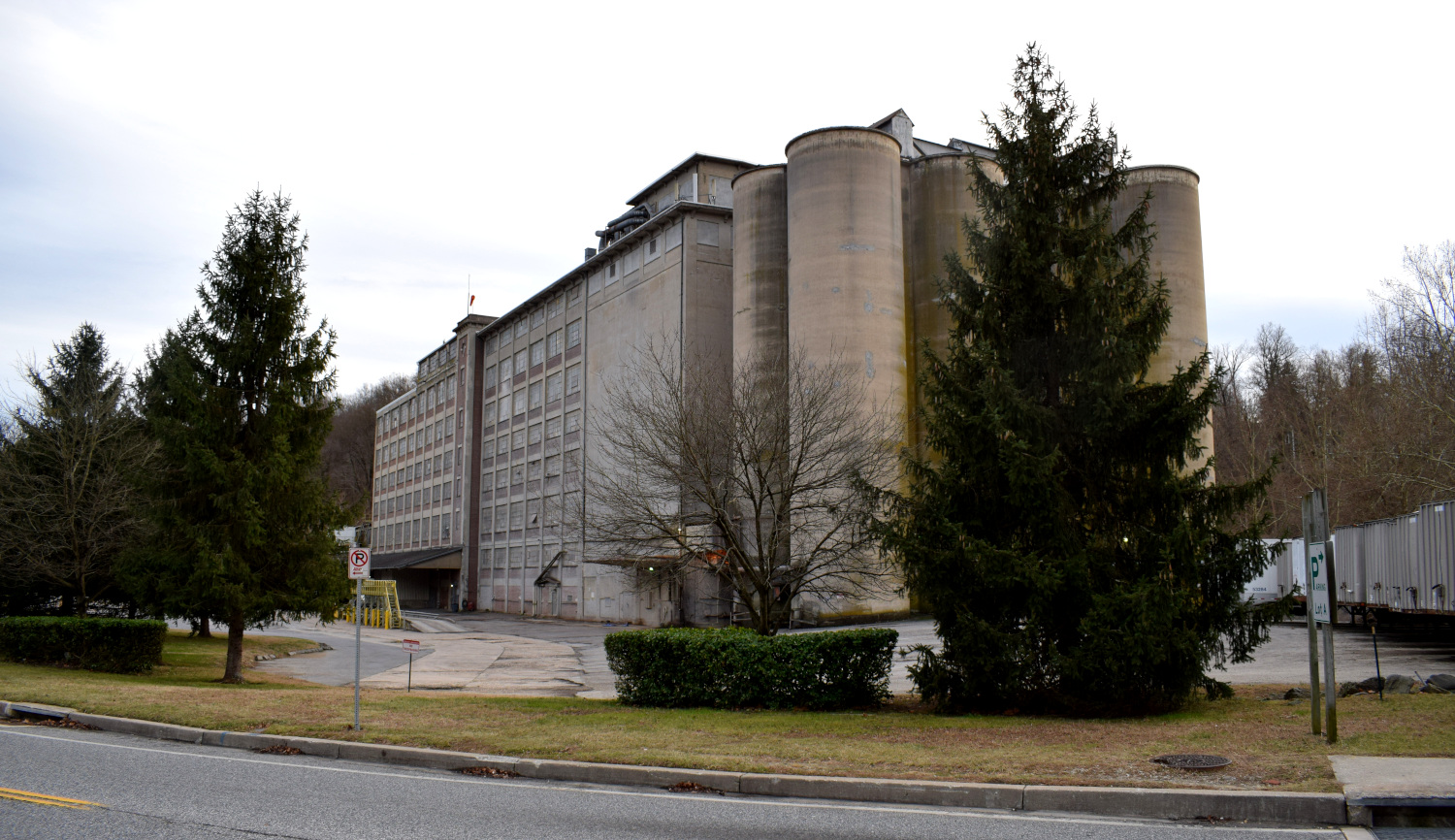 The original factory was built in this location in 1792, but I couldn’t find information as to when the current factory was built.
The original factory was built in this location in 1792, but I couldn’t find information as to when the current factory was built.
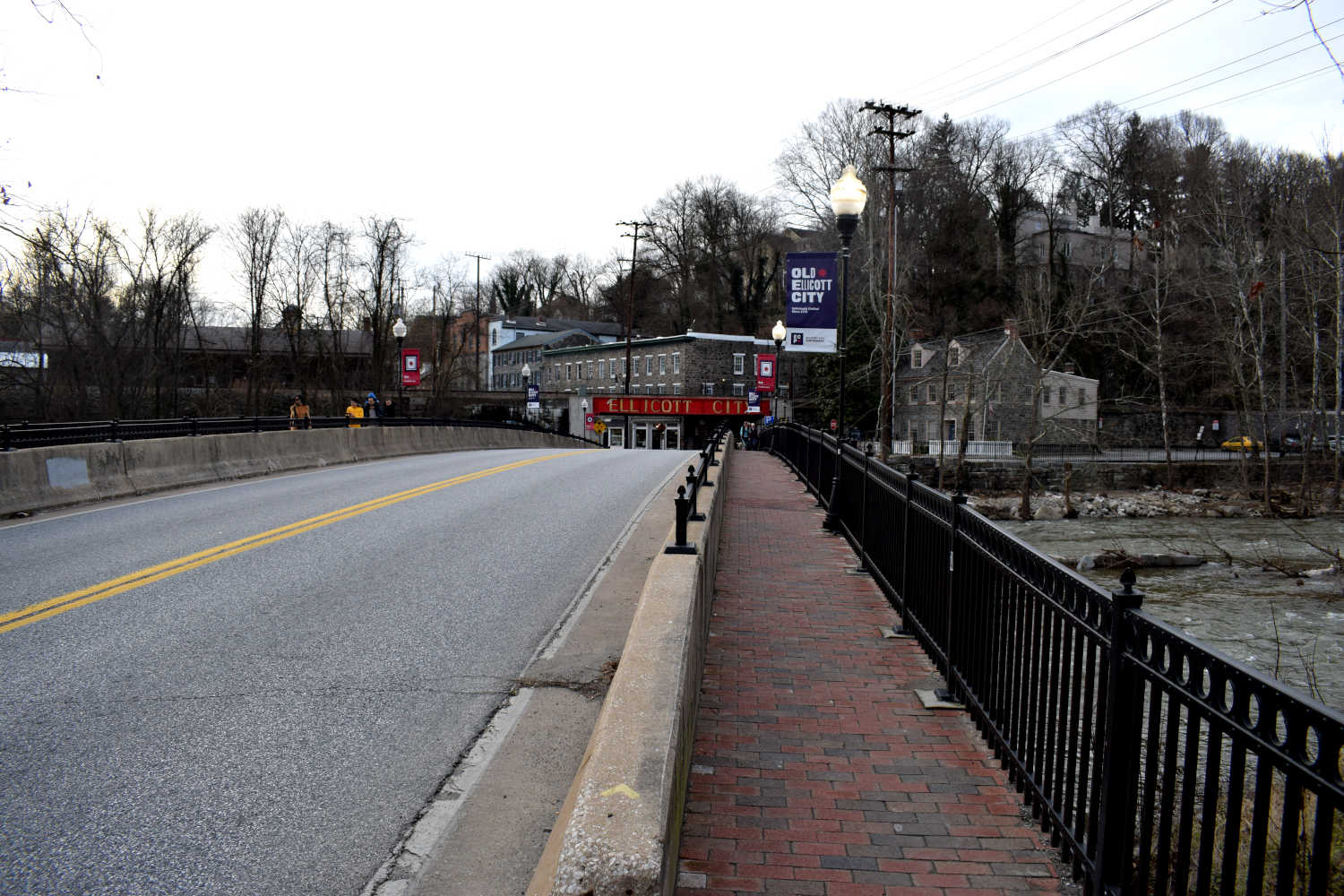 The bridge over the Patapsco River looking toward historic Ellicott City.
The bridge over the Patapsco River looking toward historic Ellicott City.
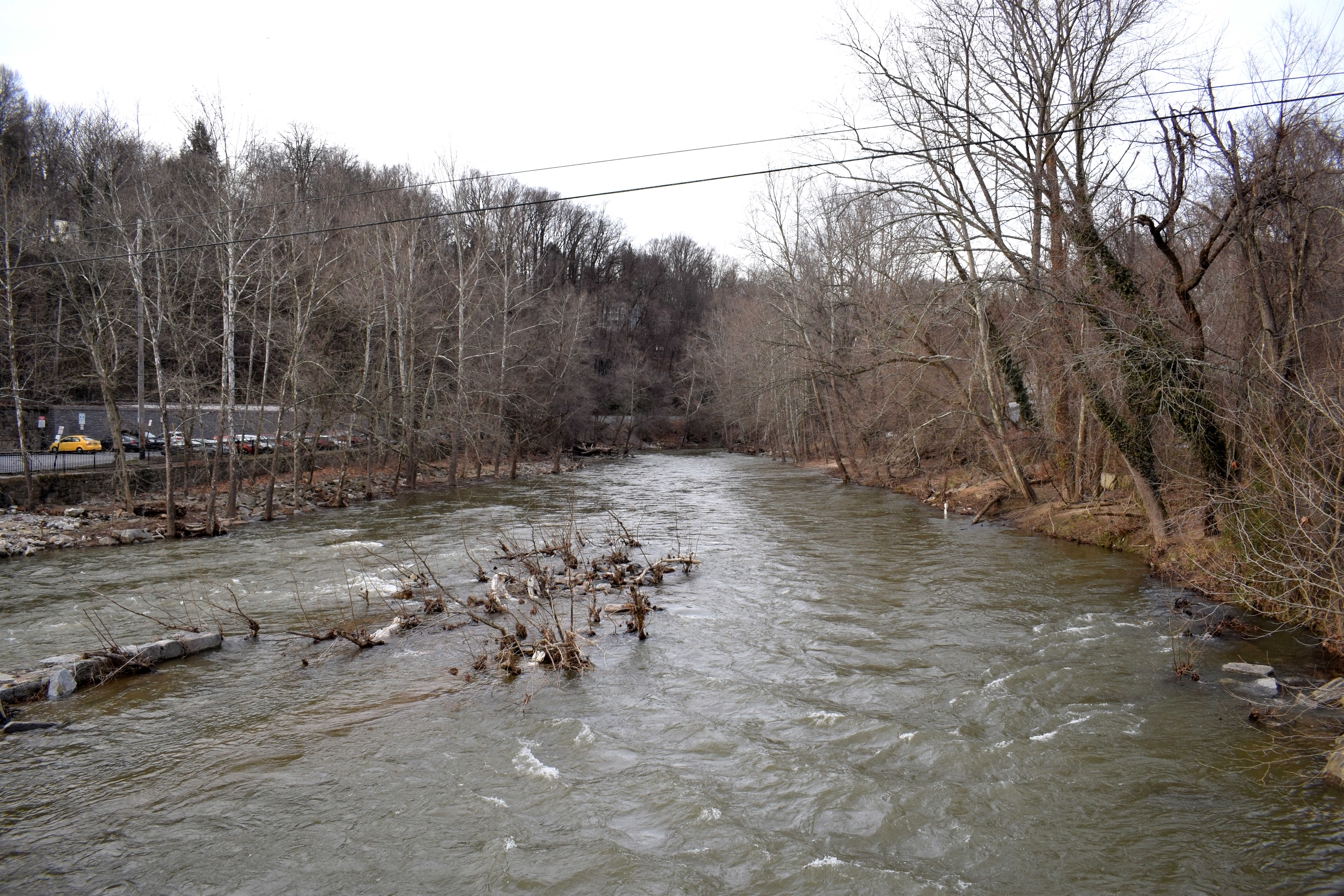
Another view of the river.
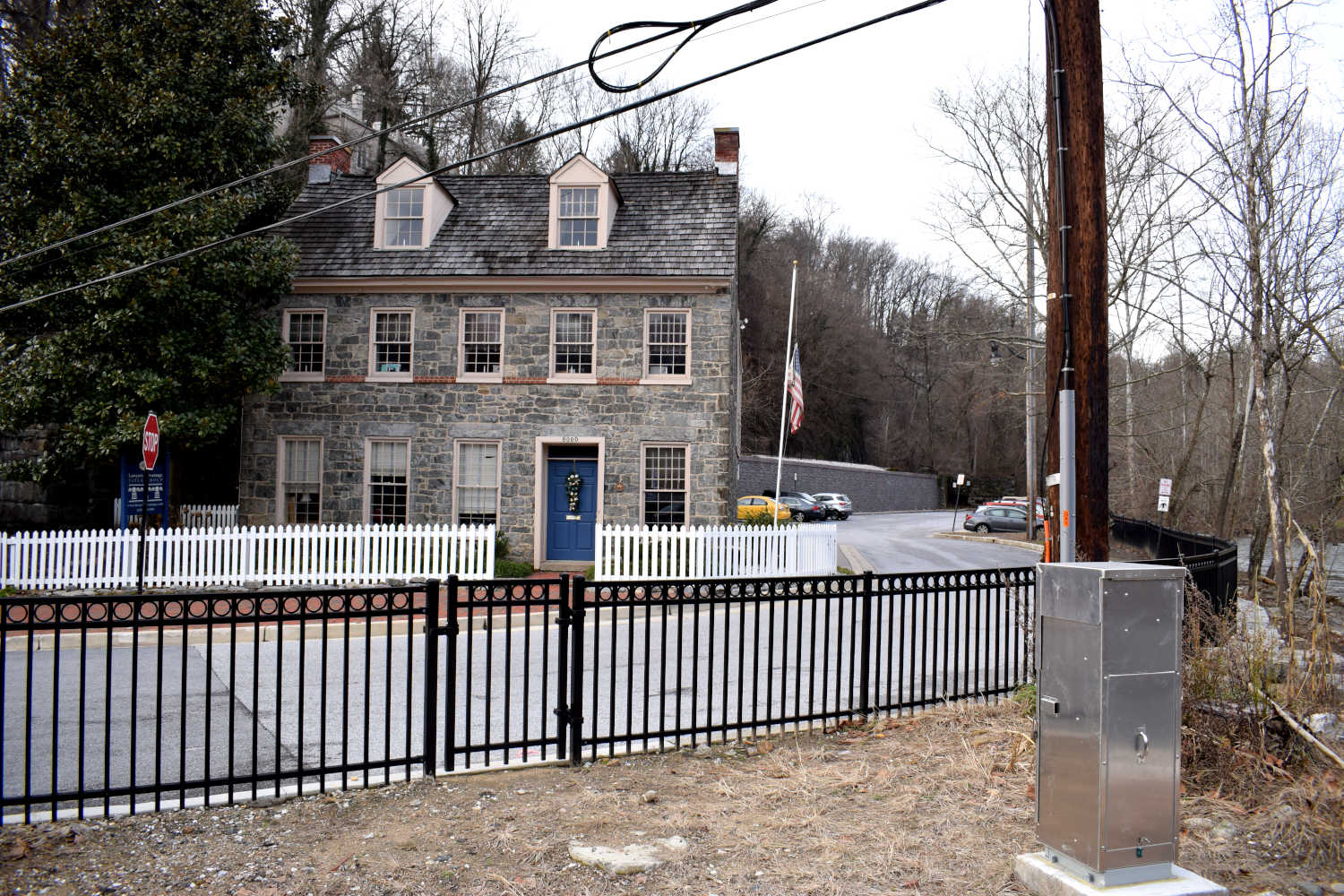
An example of a beautiful historic American home. Houses like these need to be protected by the law. In several parts of Washington DC, developers have been tearing down historic examples of American architecture to build huge cheap versions of houses that are destroying America’s neighborhoods.
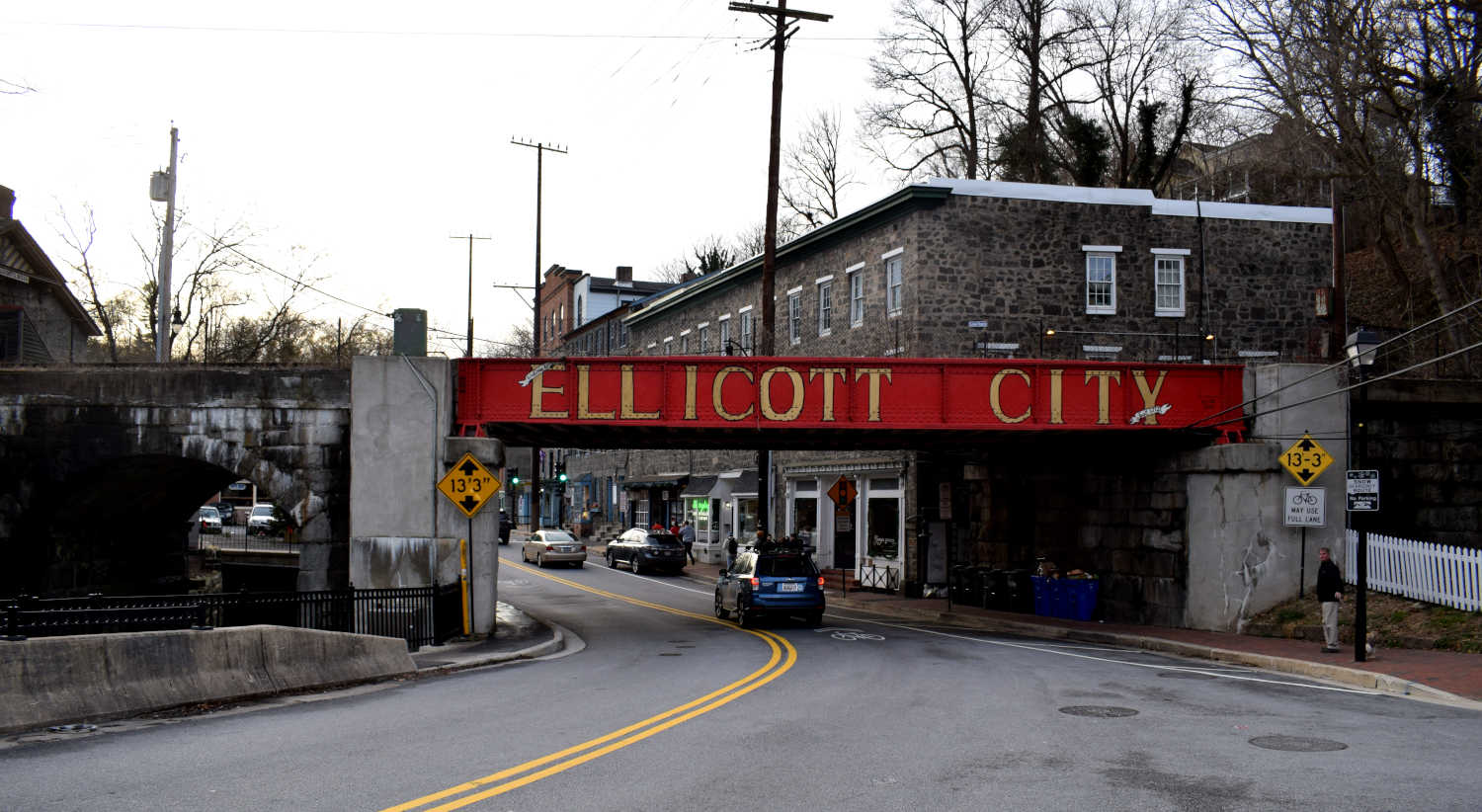
The entrance into Ellicott City.
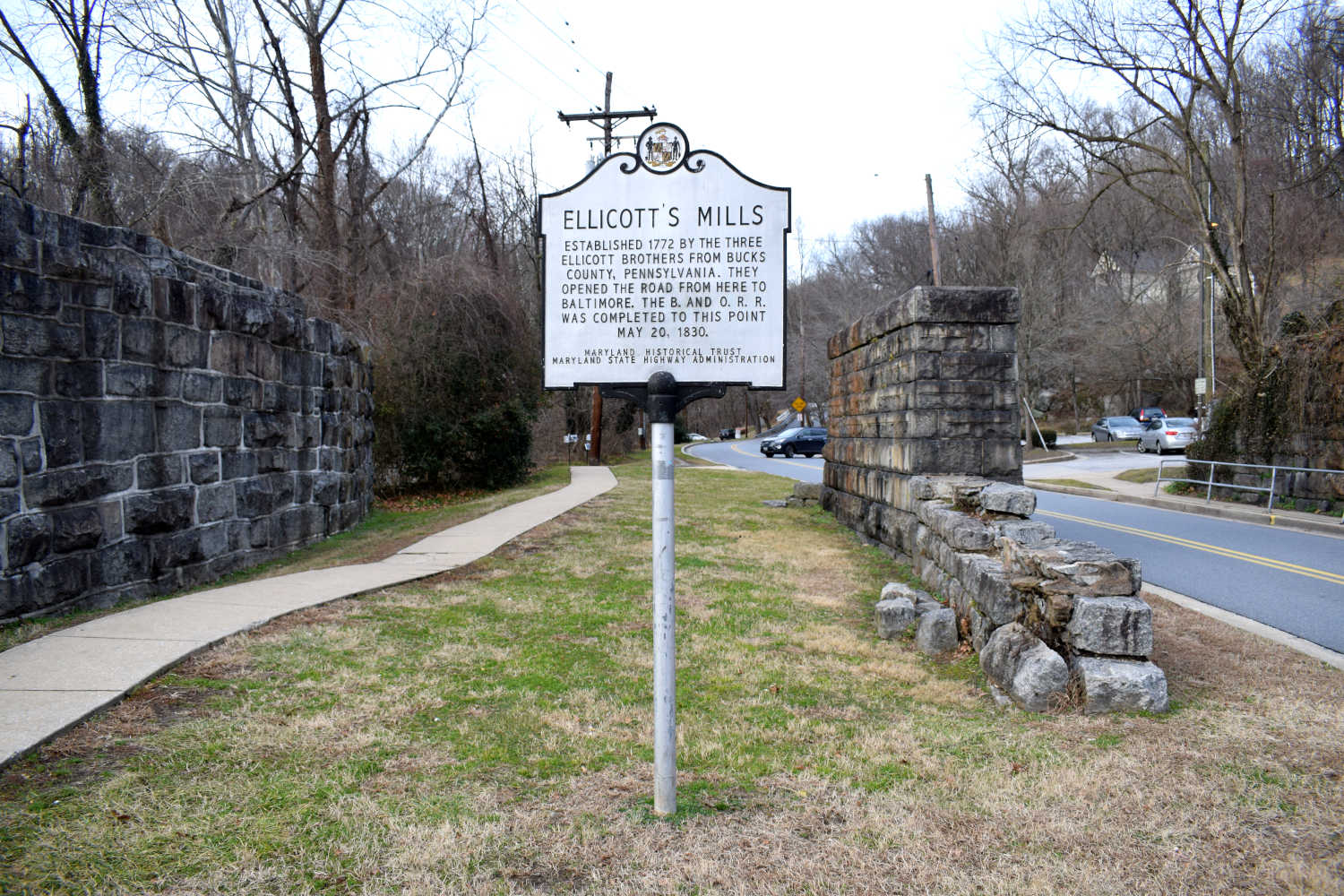
Ellicott’s Mills: Established 1772 by the three Ellicott brothers from Bucks County, Pennsylvania. They opened the road from here to Baltimore. The B. and O. R. R. was completed to this point on May 20, 1830.
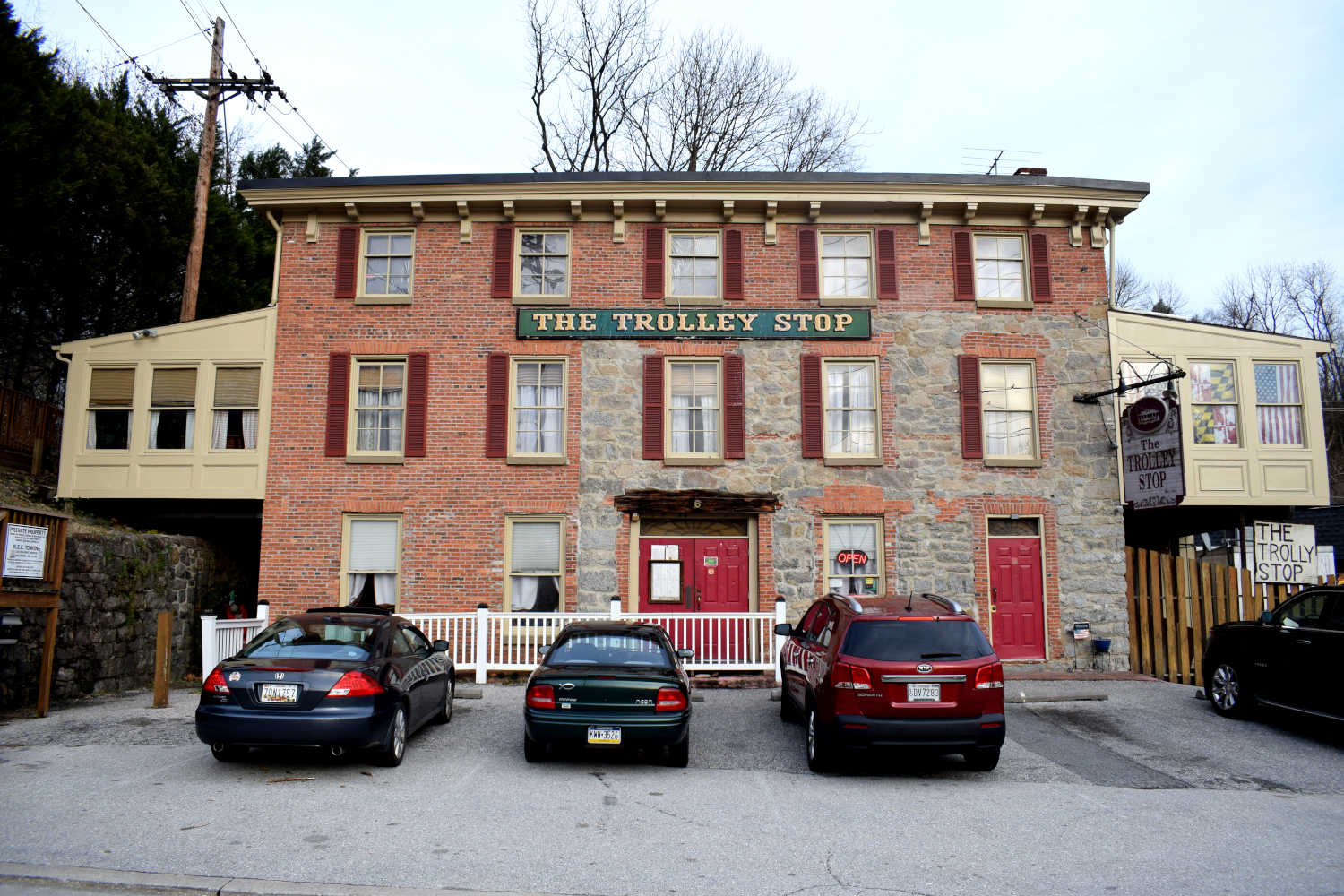
The Trolley Stop. I wonder what was inside this building.
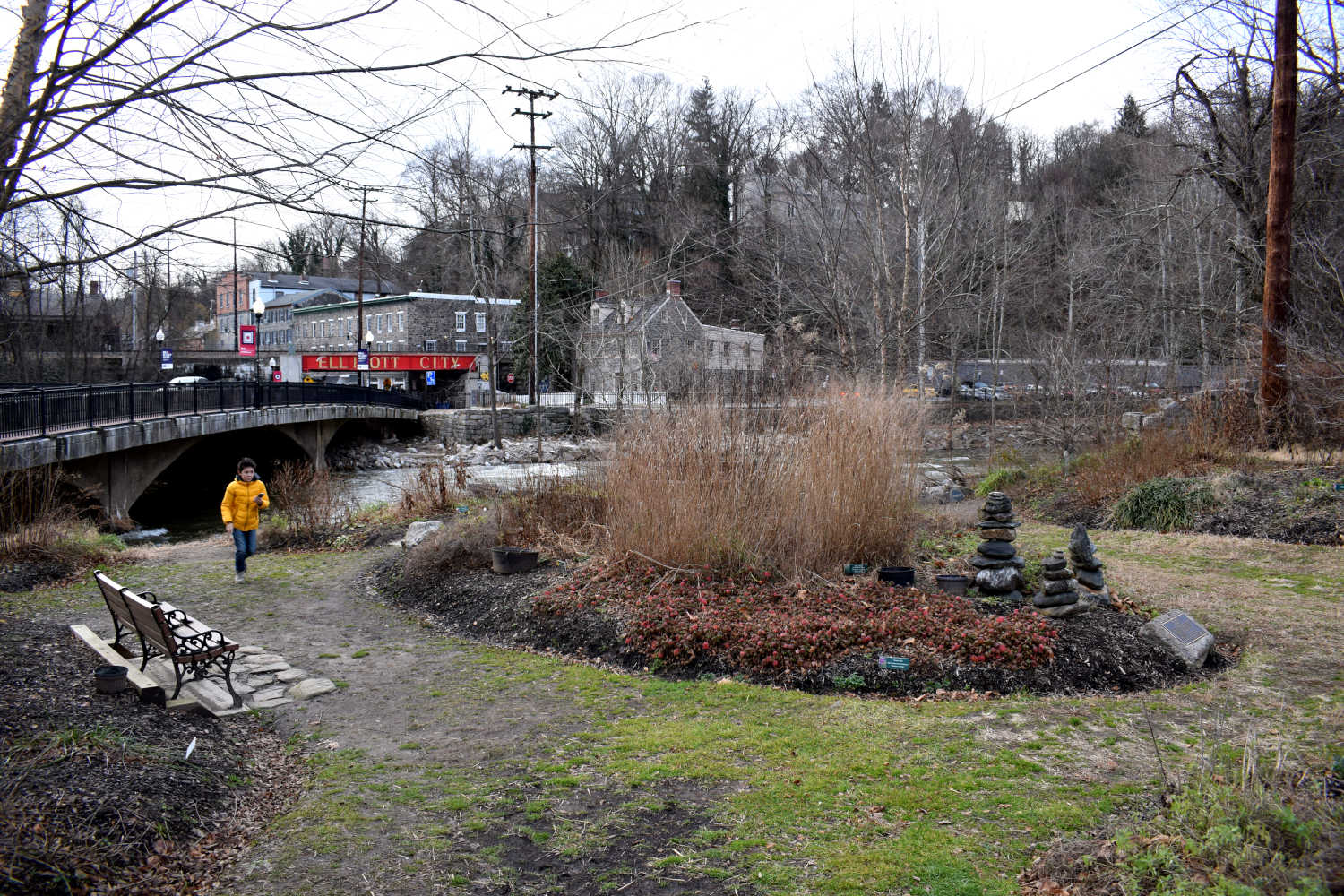
A nice little bench to sit on and read a book on the other side of the river.
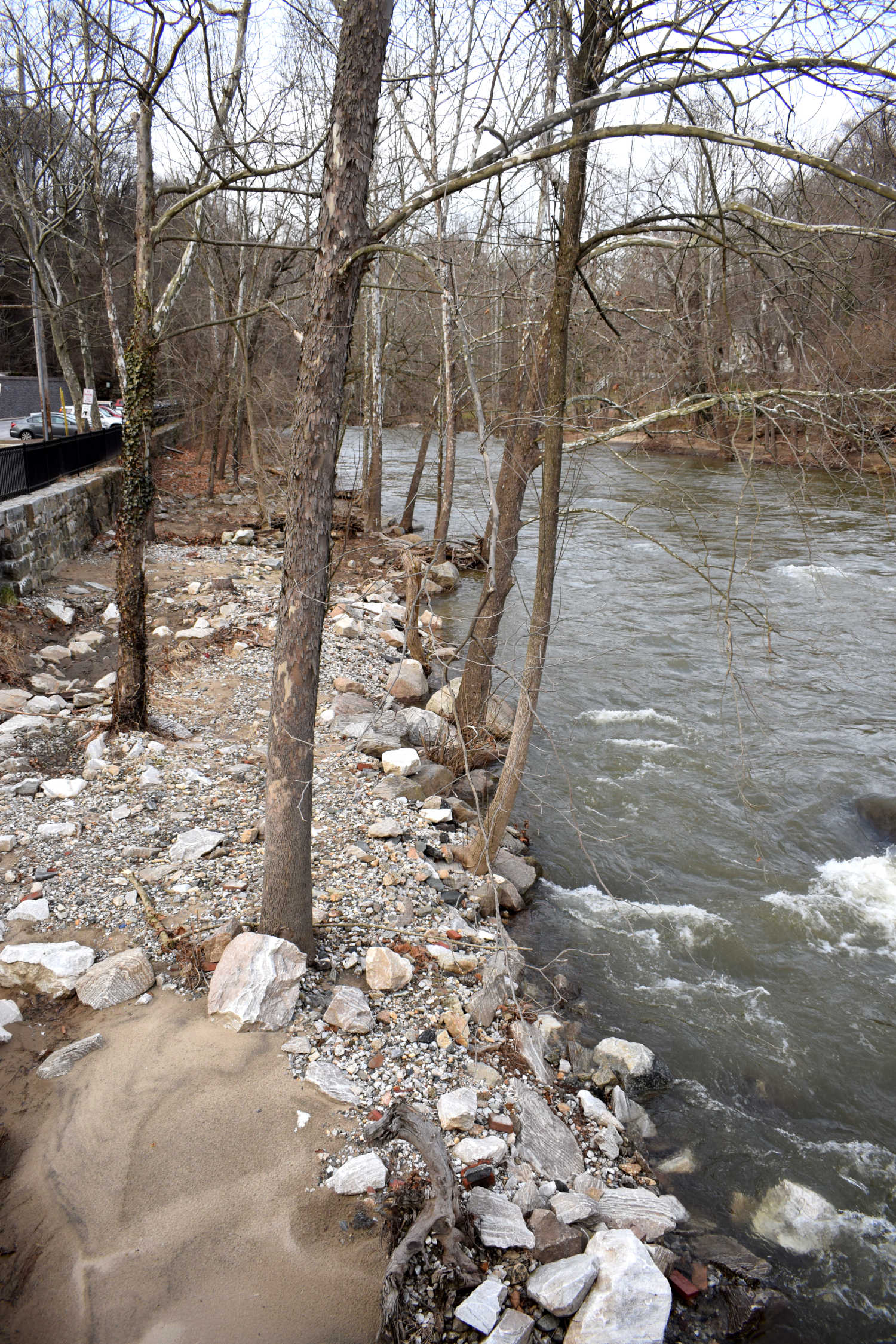
The river bank.
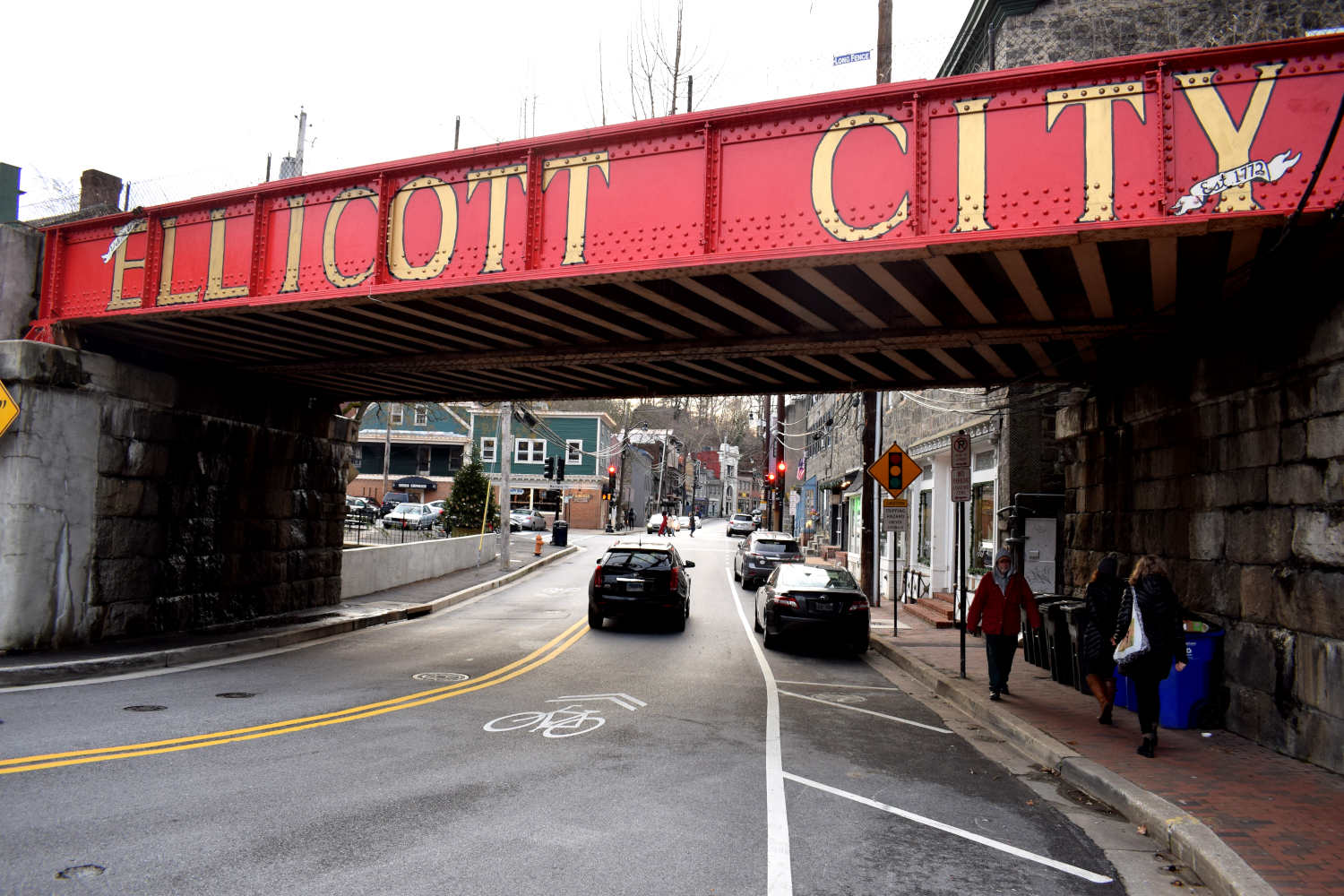
Entering into the city.
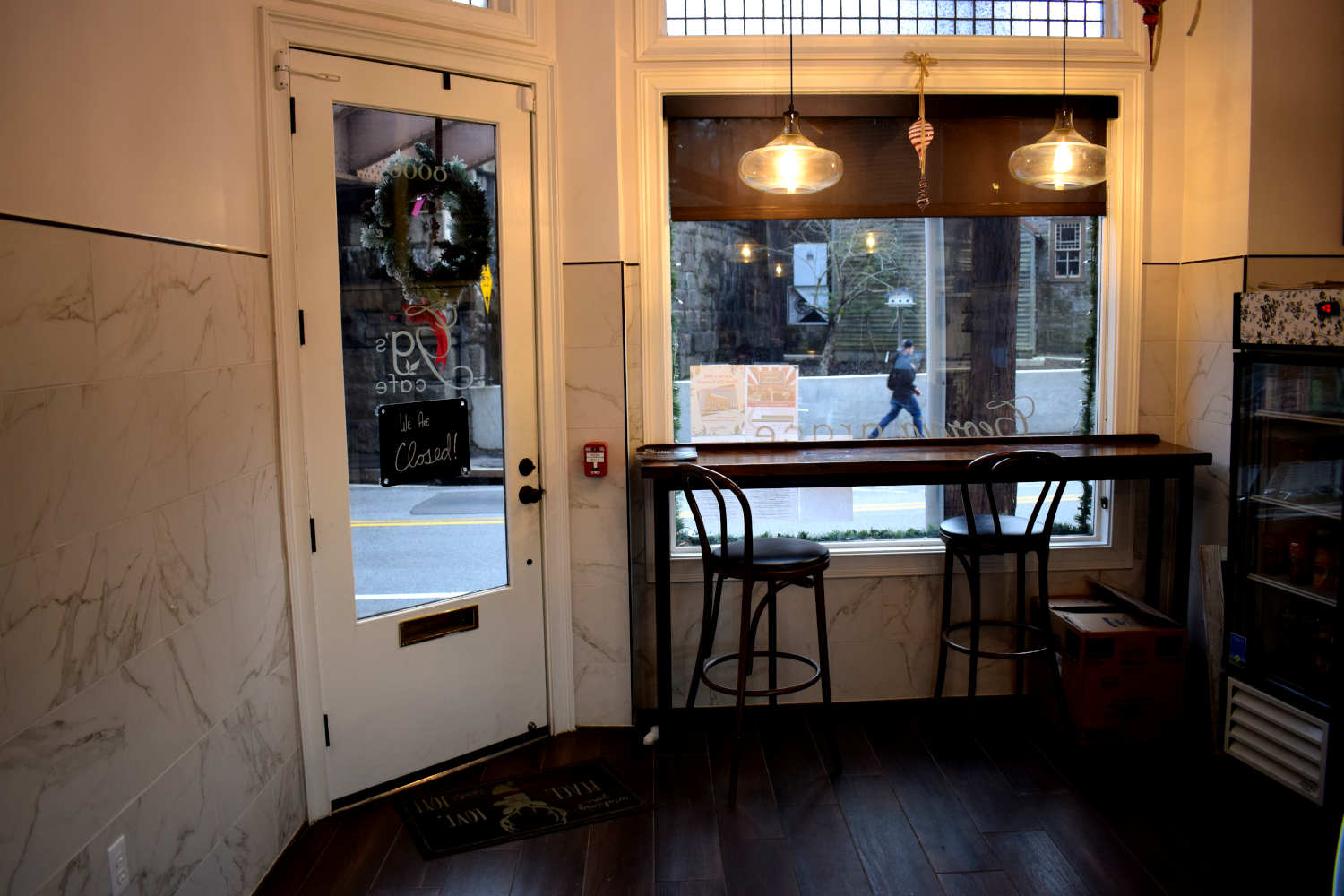
We went into one of the cafes to drink some coffee and warm up.
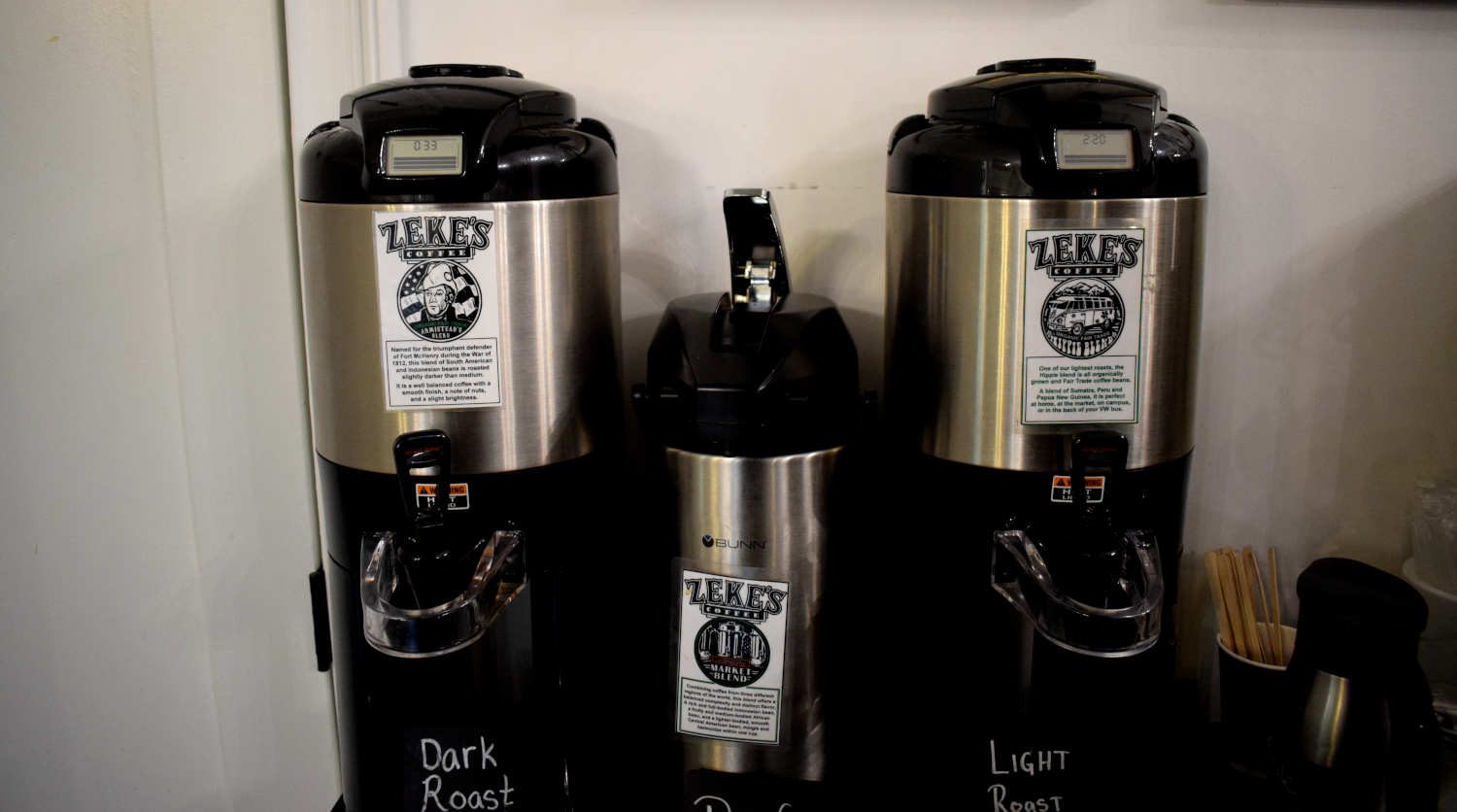
Dark roast or light roast?
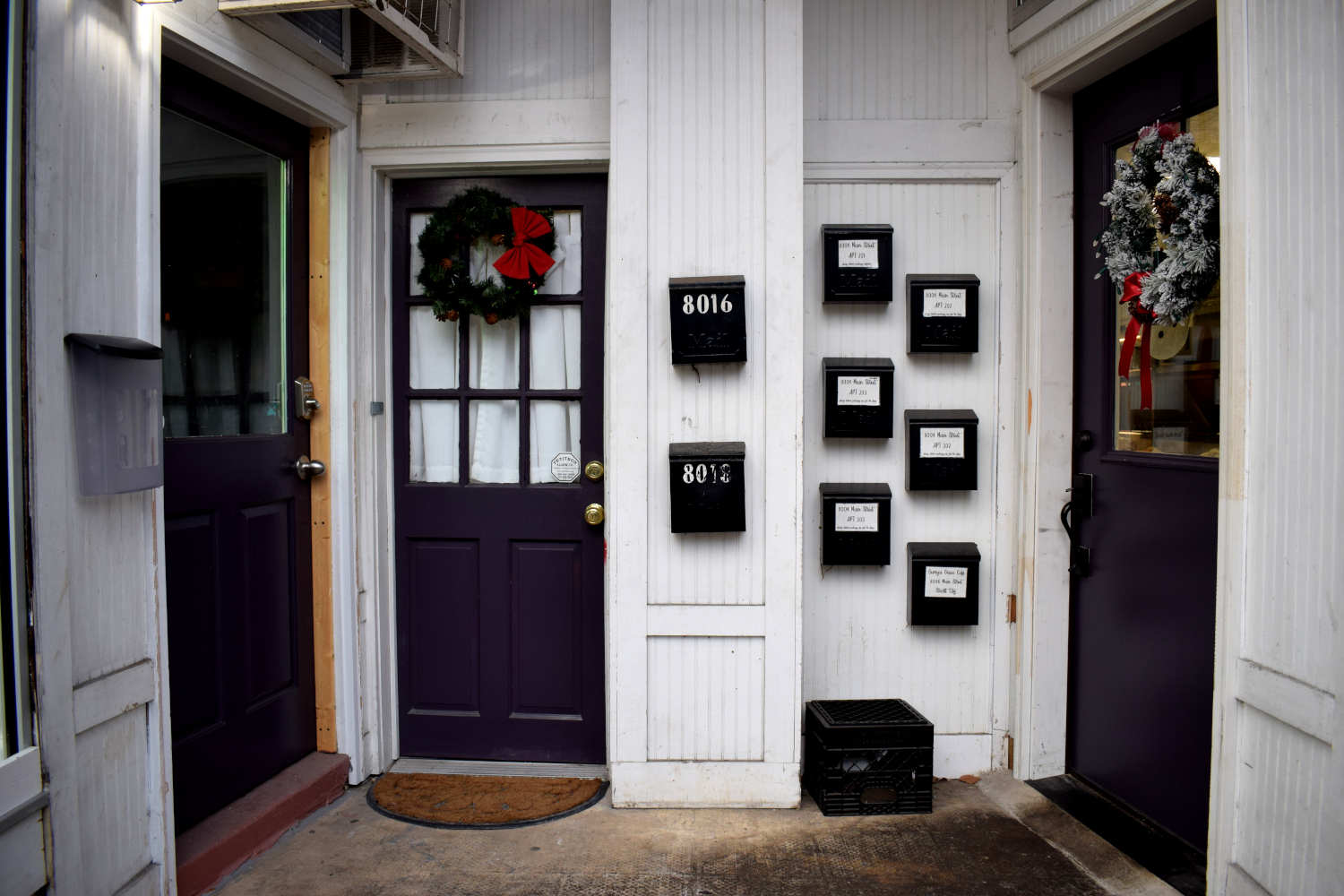
Here is how the entrance into the café looked from the street. Note how the doors are old and historic instead of modern. All of this adds to the beauty and authenticity of a place.
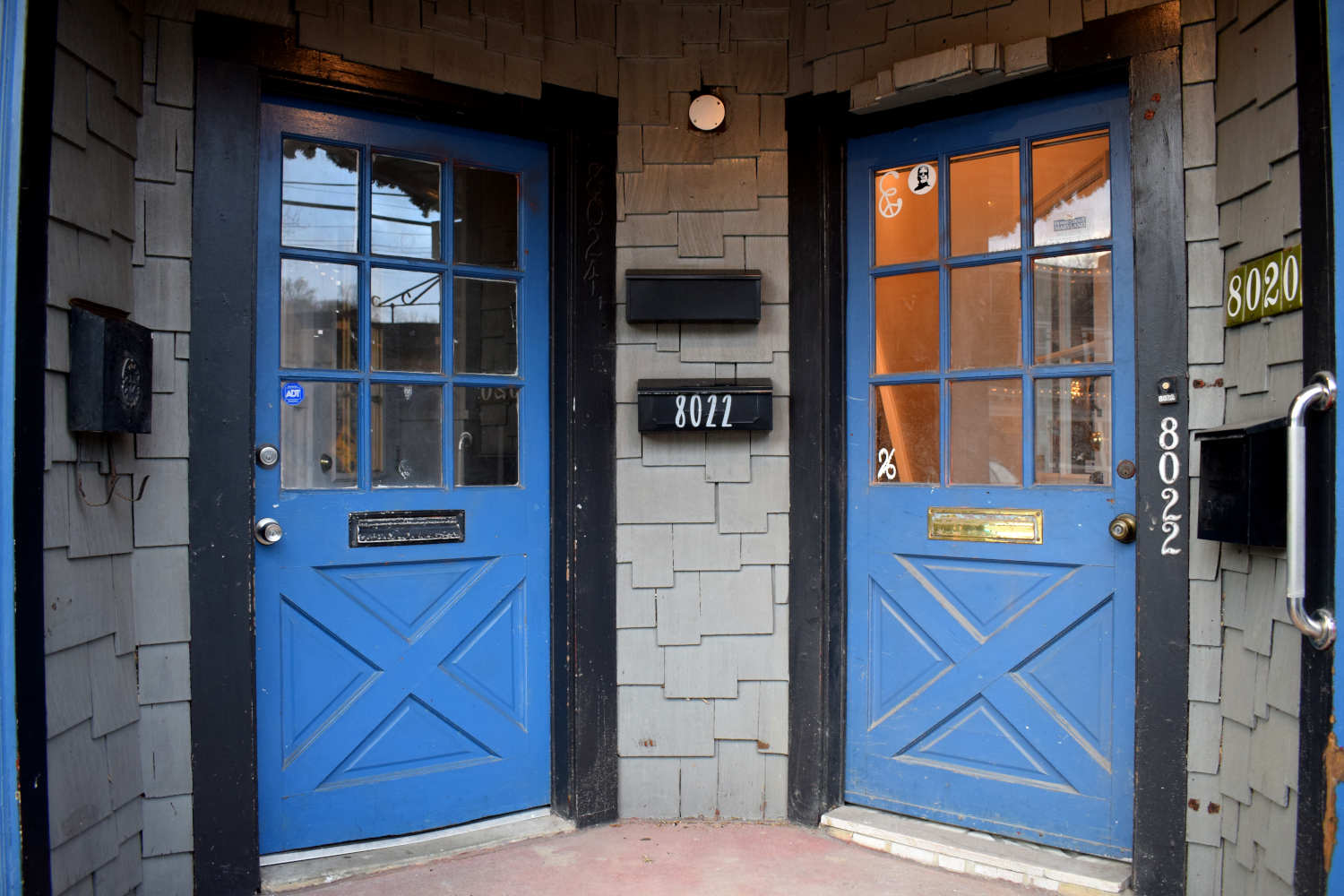
More store entrances.
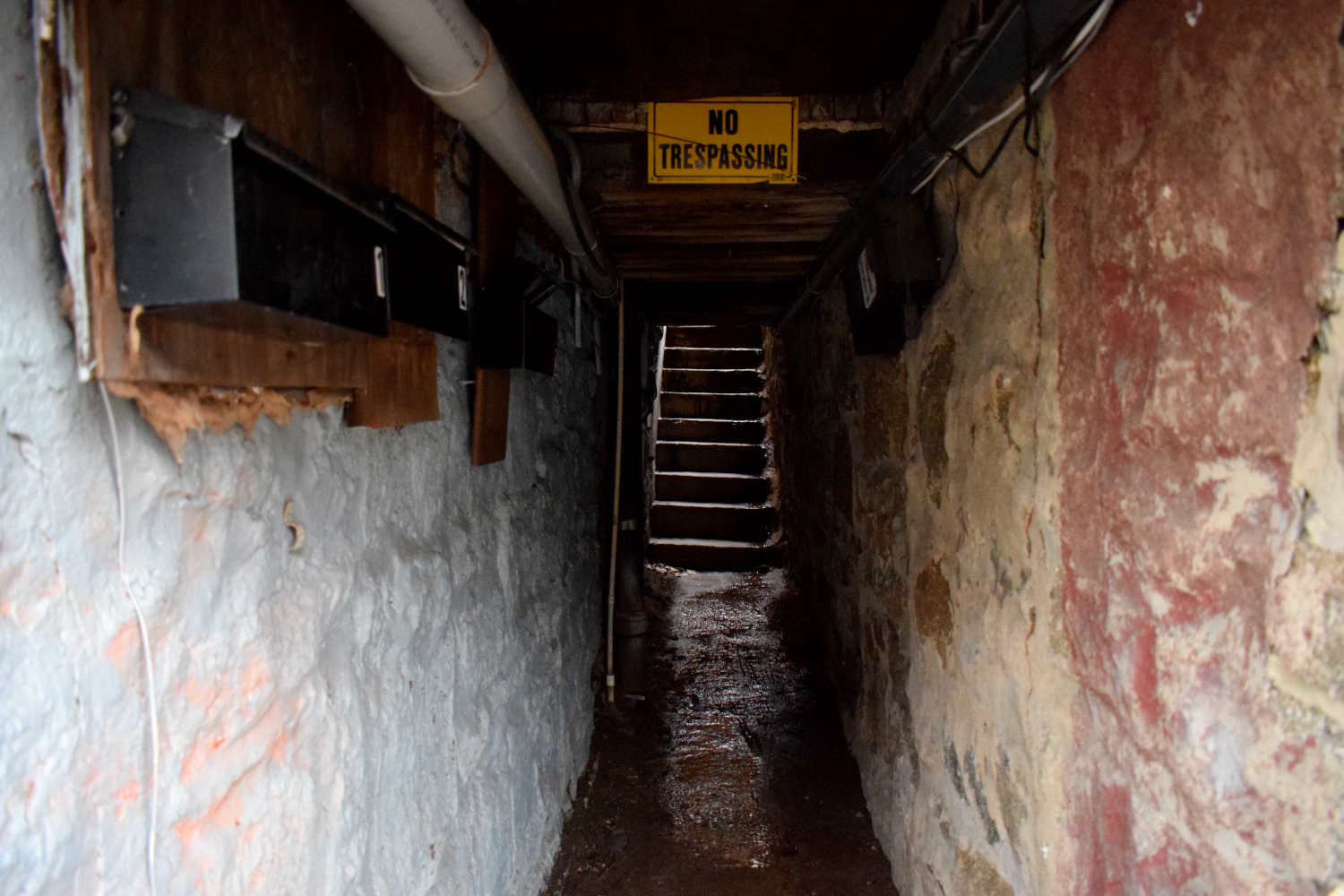
A really narrow entrance into someone’s house.
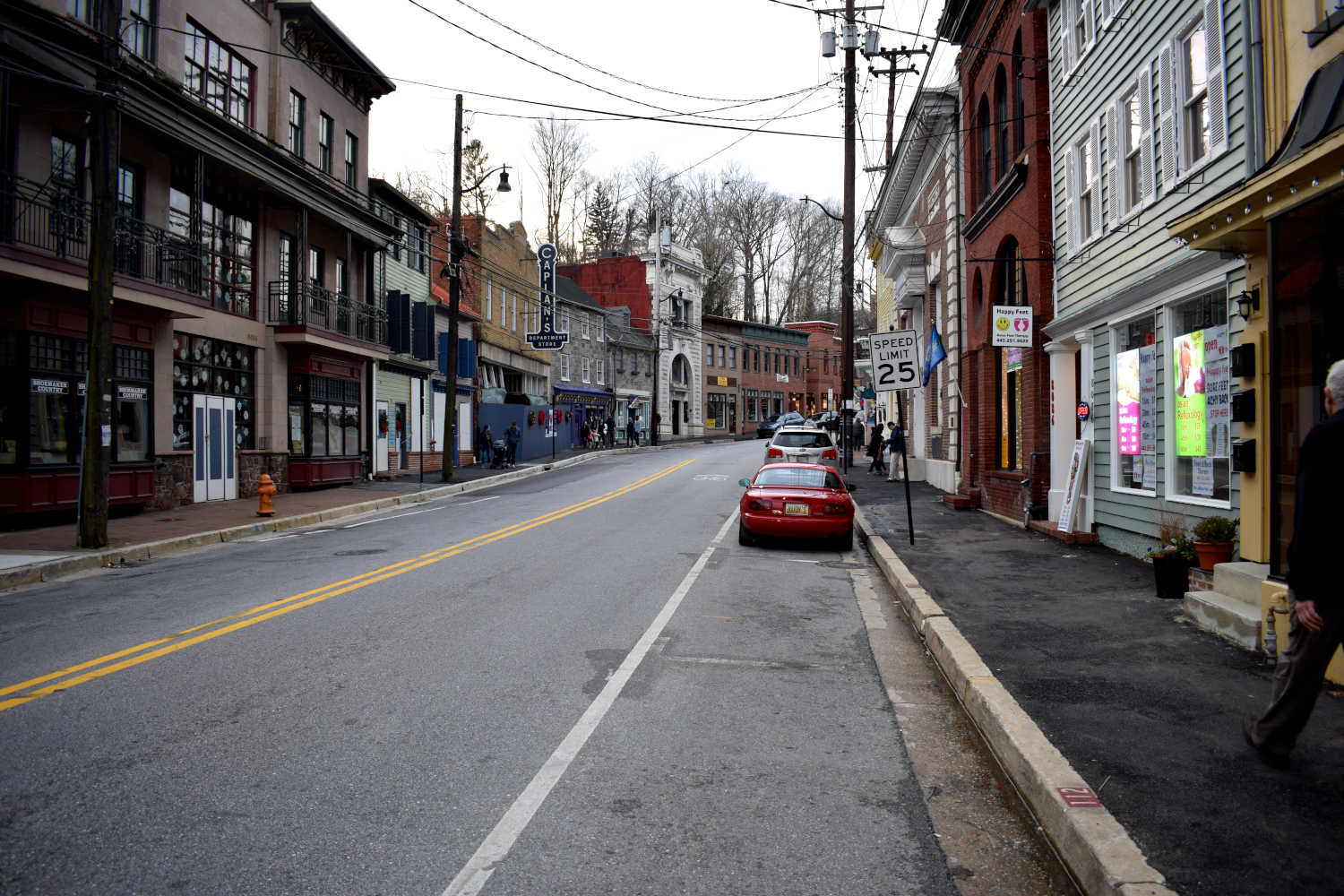
Back out onto main street. It really is a beautiful street.
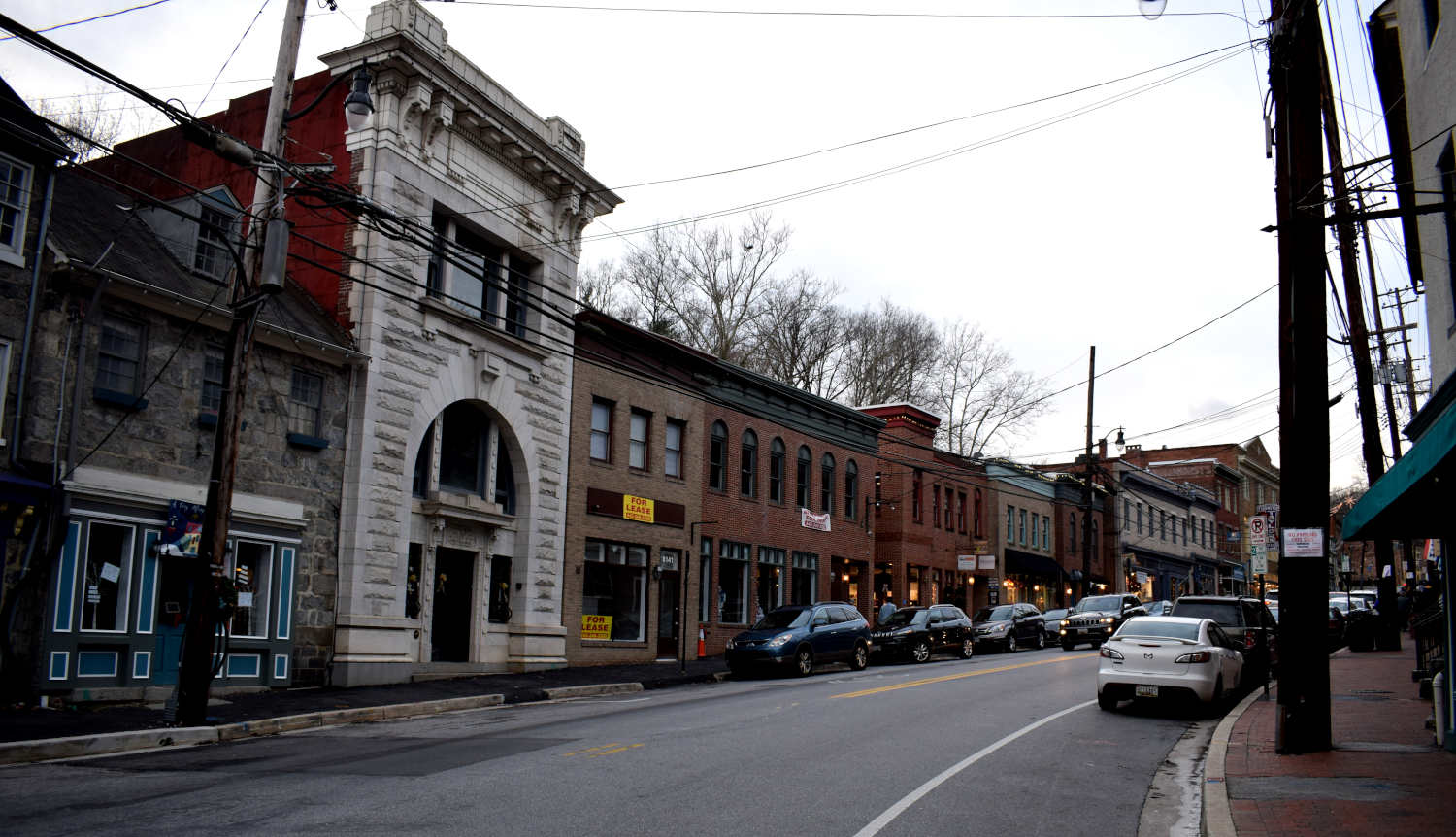
Just take away the cars, add a tram and bike lanes and this would be a stunning place to live.
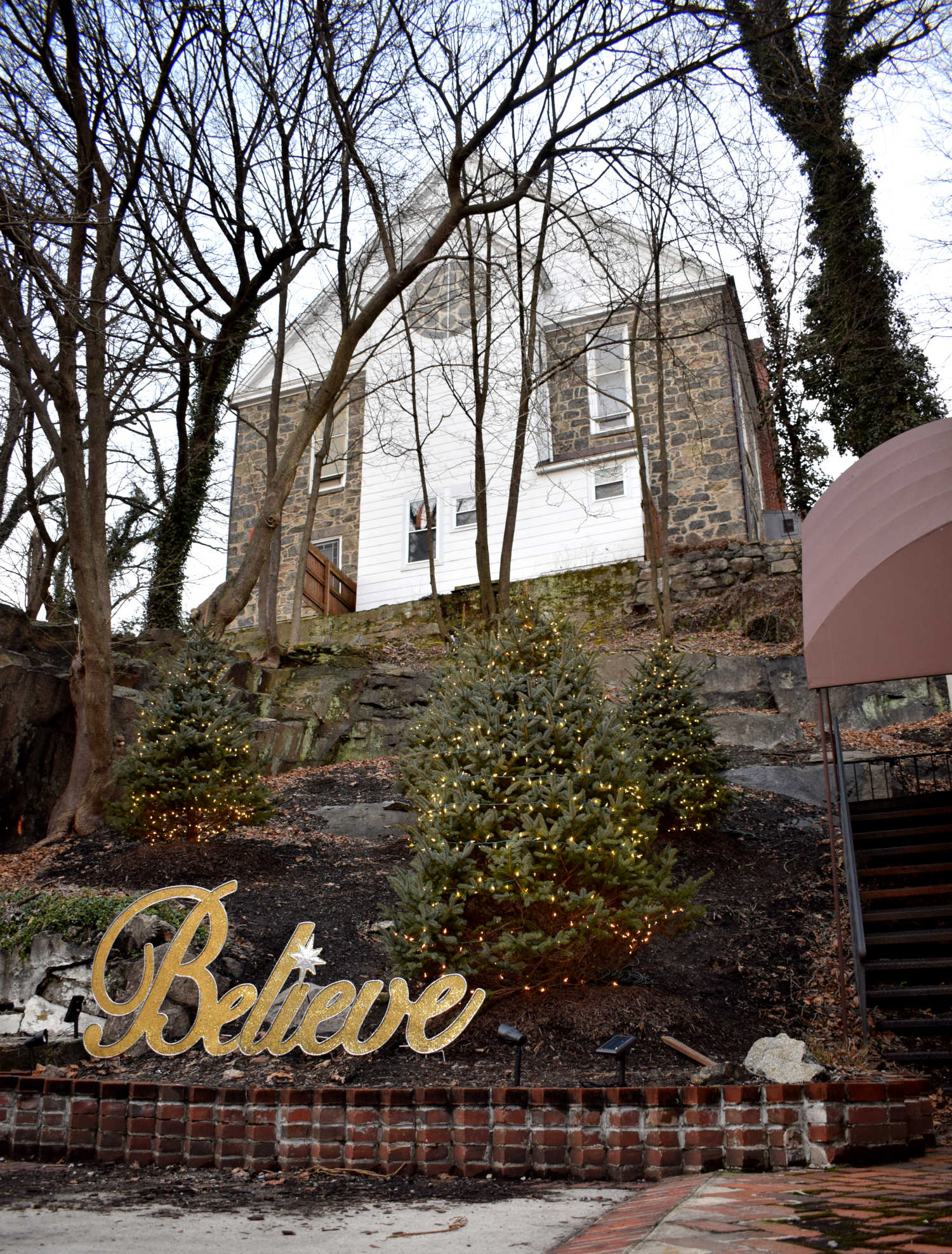
A church on a hill. Not sure what it is called.
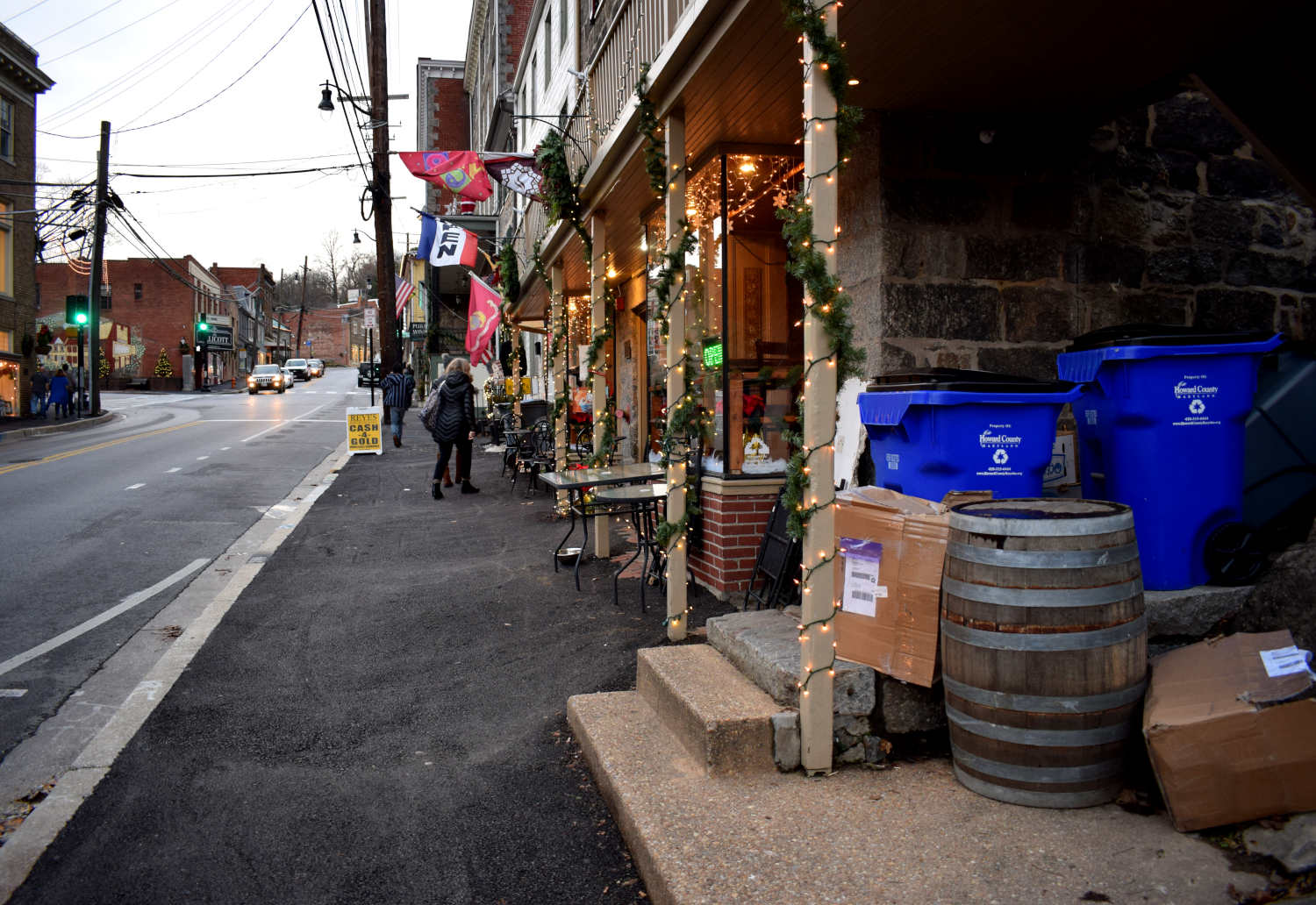
More window shopping and store front cafes. I love the wheel barrel.
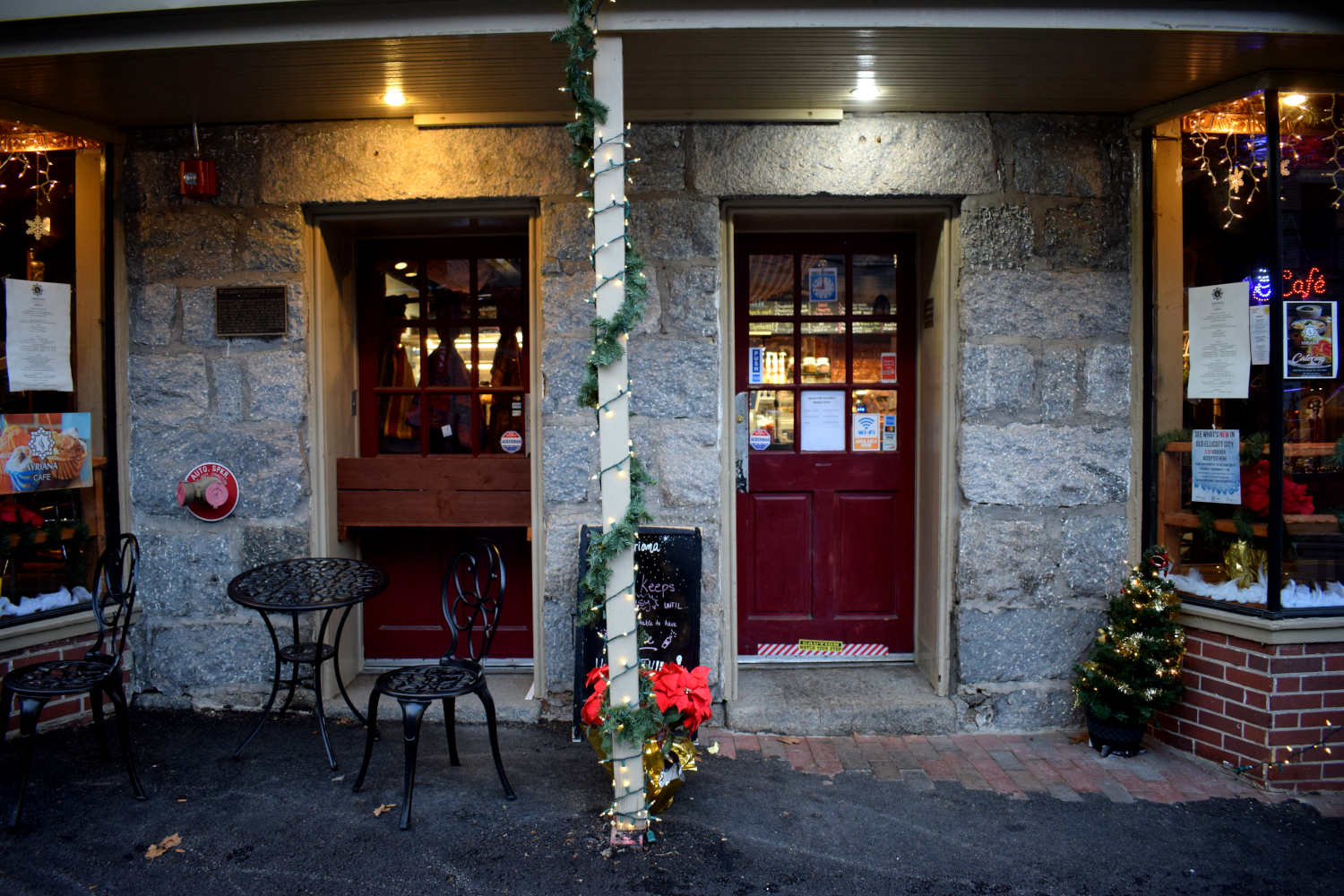
The entrance to a café.
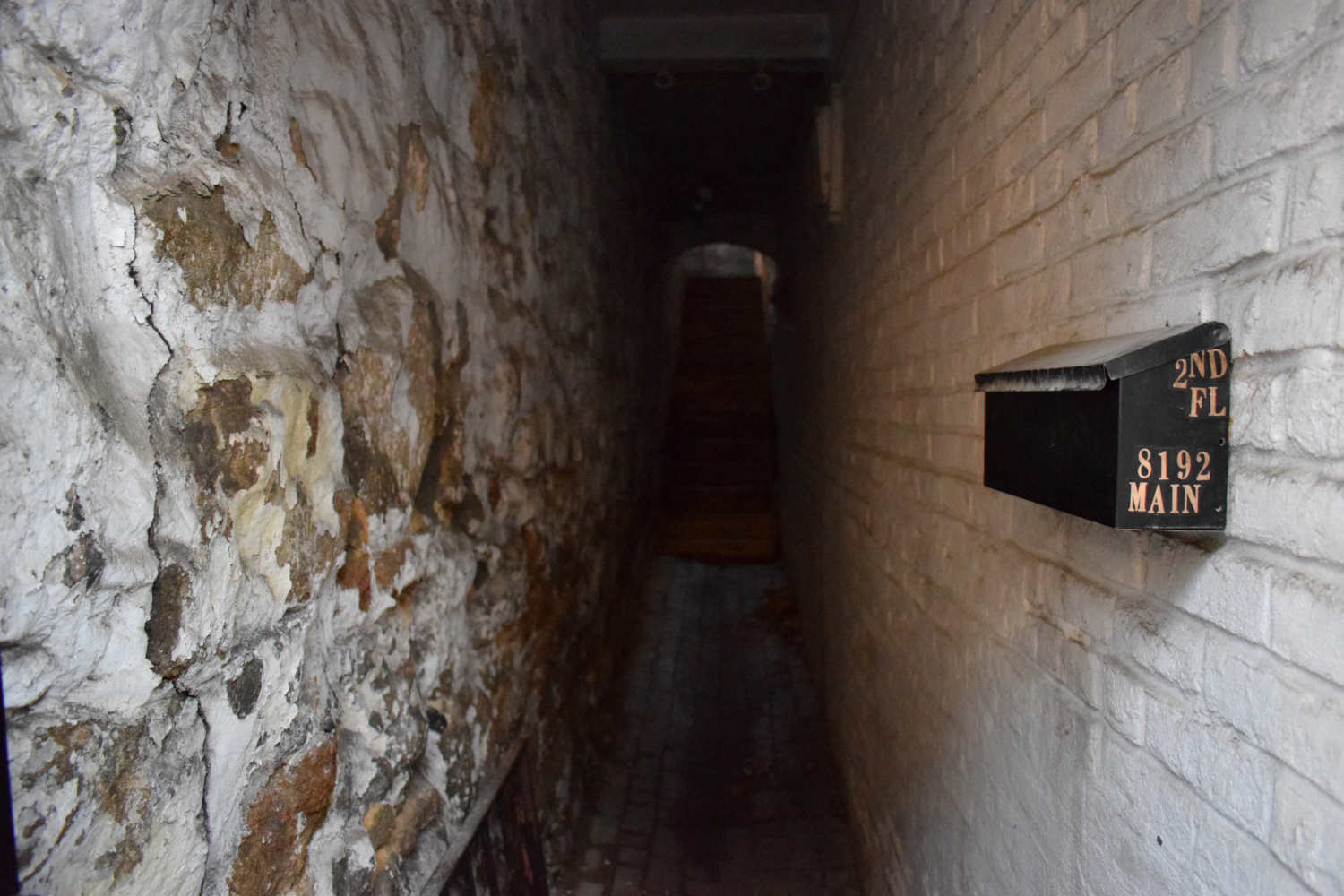 Another spooky entrance into someone’s home. Imagine if you lived here.
Another spooky entrance into someone’s home. Imagine if you lived here.
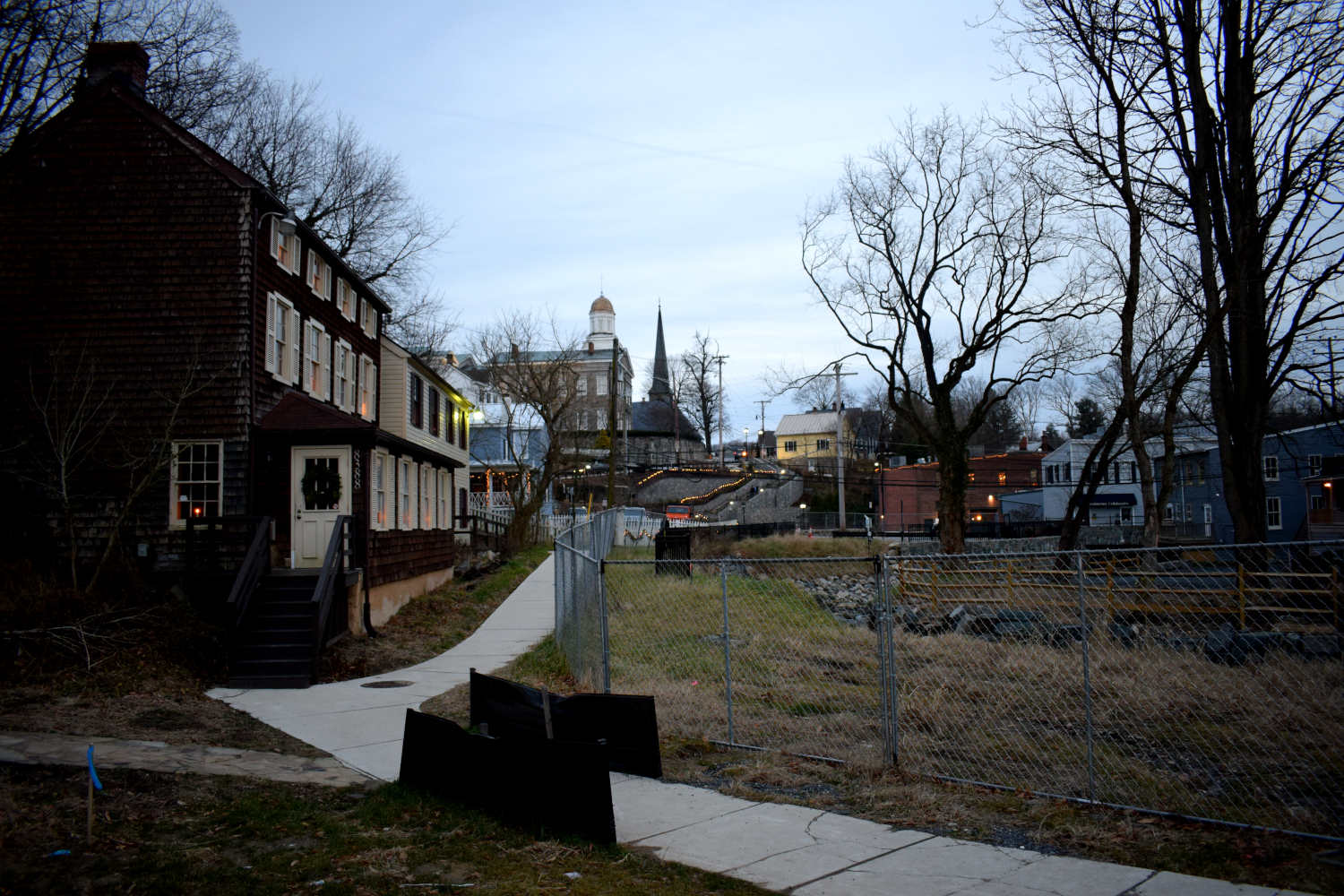
Looking back at Ellicott City as it begins to get dark.
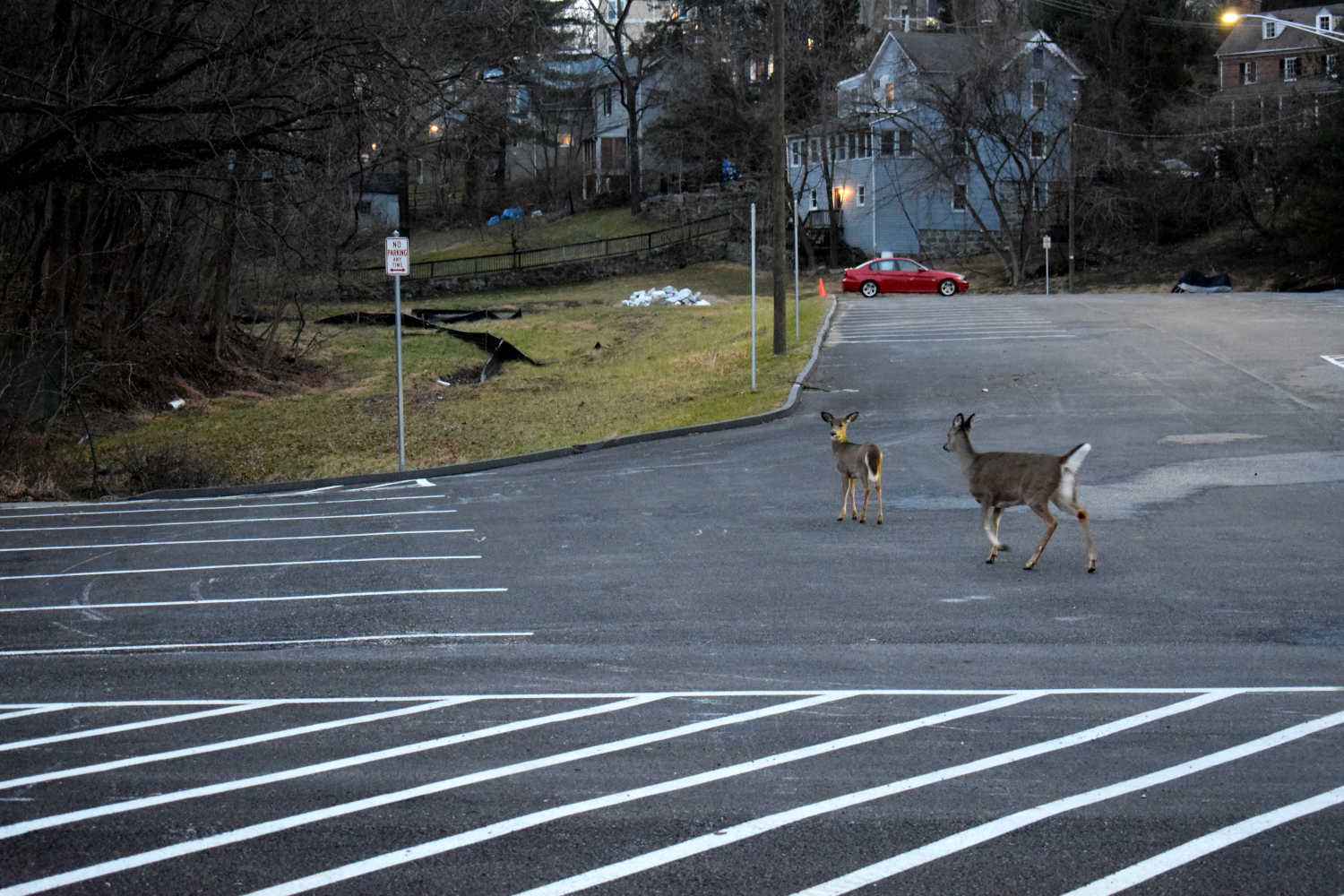
And the last one for the road. We saw some deer in the parking lot. It looks like we weren’t the only ones leaving the city for the night.
Overall, I was really impressed with Ellicott City. It is a historic town located outside of Baltimore that has preserved has preserved what American towns used to look like before WWII. Despite suffering damage in 2016 and 2018 from flooding, I didn’t see much damage in the historic center.
My recipe for Ellicott City is the same as for all American cities. It’s a beautiful historic town, but it lacks a pedestrianized center that could serve as a symbol of the city to attract even more tourists.
In case you haven’t gotten the memo yet, younger generations are giving up buying houses, owning cars or living far from city centers. People now want to walk and bike to work, they want cafes nearby and they want good public transportation. In order for Ellicott City to attract this type of crowd, it needs to do more to make the city more pedestrian friendly.
It could start by turning at least a part of Main Street into a pedestrian only zone. Eventually it would be nice to see a tram return to the street, the same way a streetcar once served the area until the 1950’s.
Overall though, Ellicott City would be a perfect small town for someone to live in who doesn’t want to live exactly in the center of Baltimore, but still be located close enough to commute relatively easily to the city. In fact, a really good project the city could implement is a bike trail from Ellicott City directly to Baltimore. This would get a lot of people to come to the city and increase tourism.
